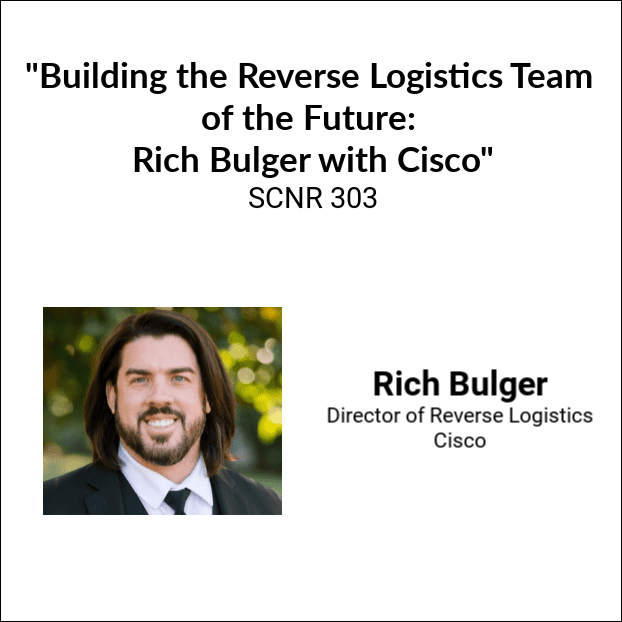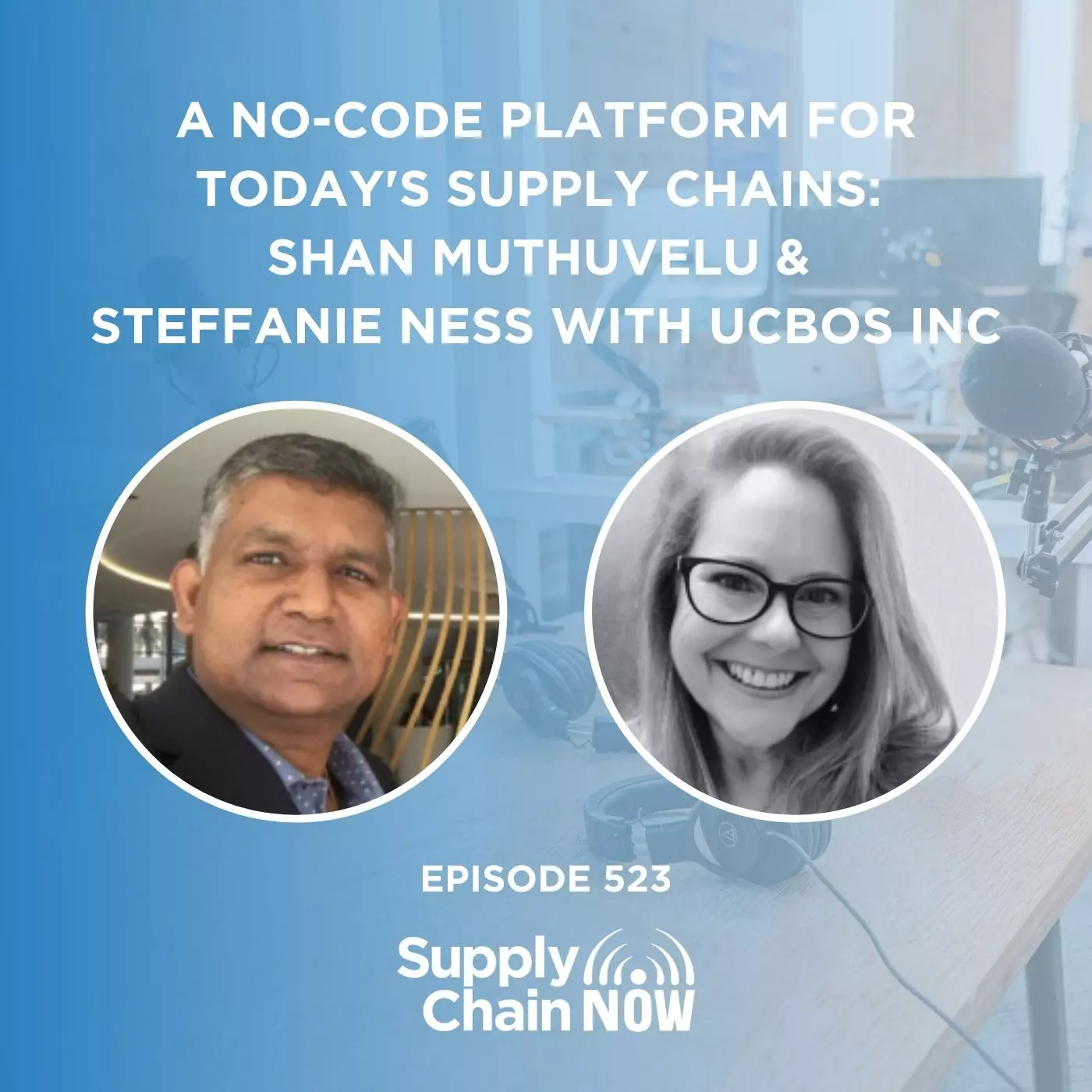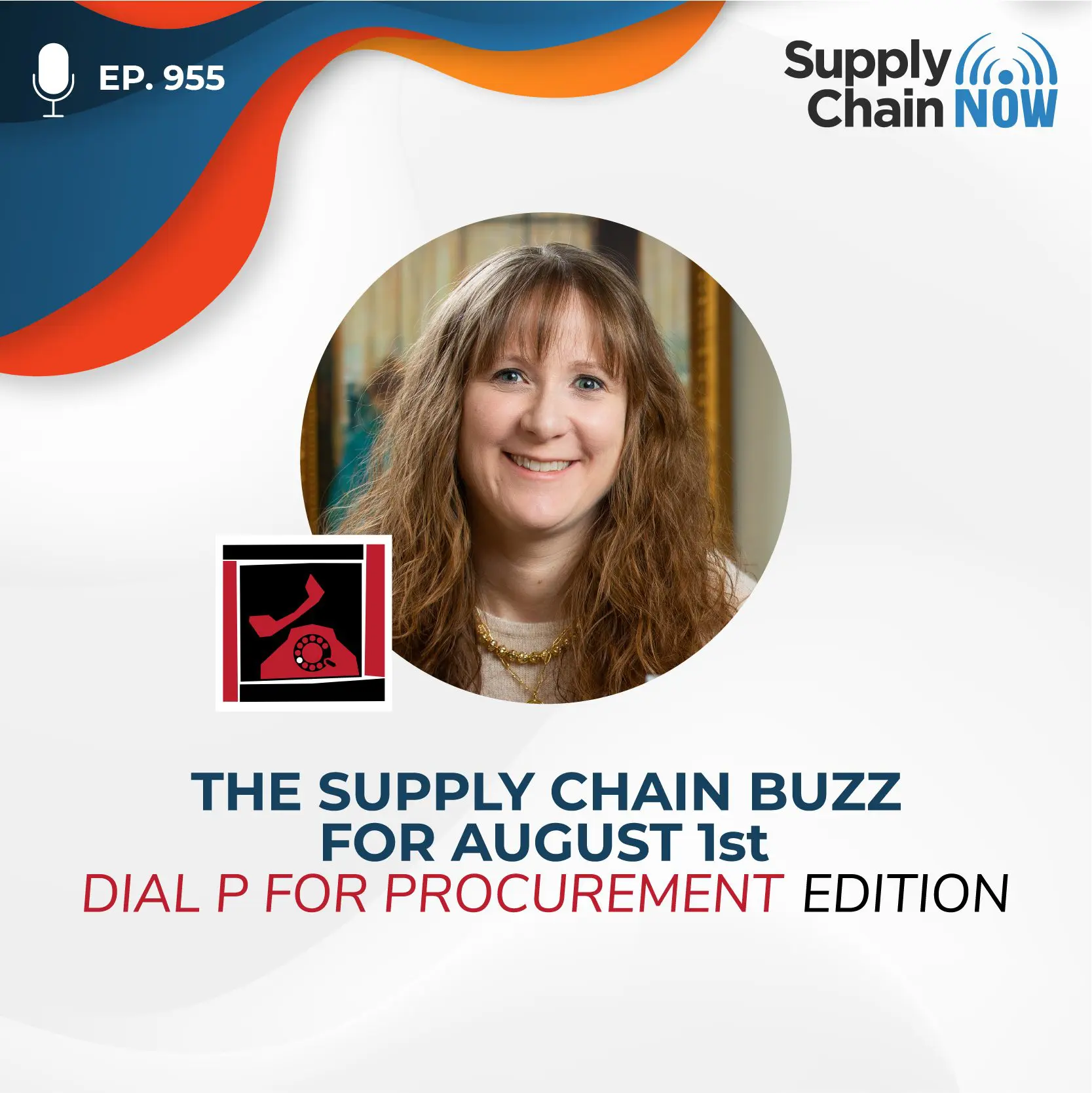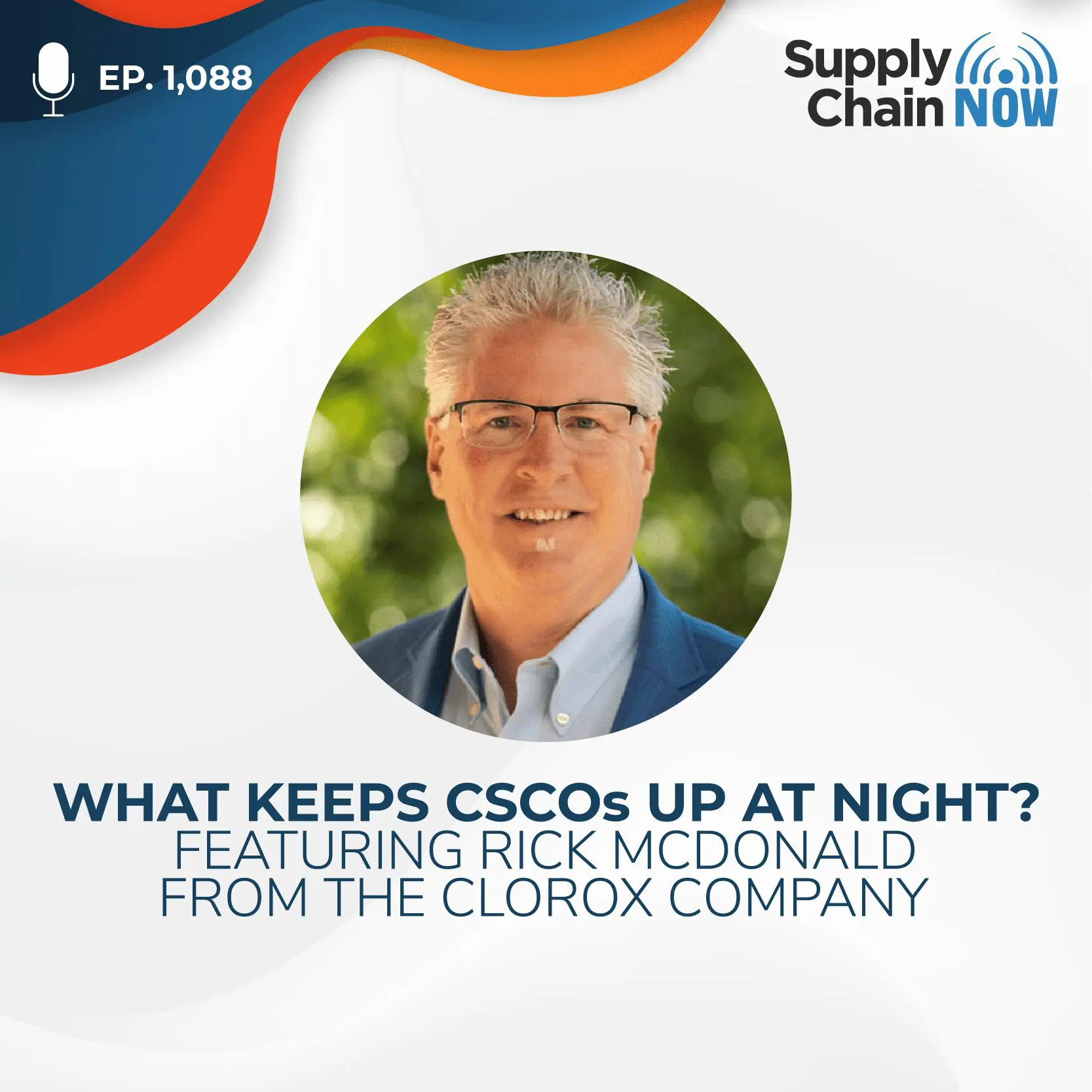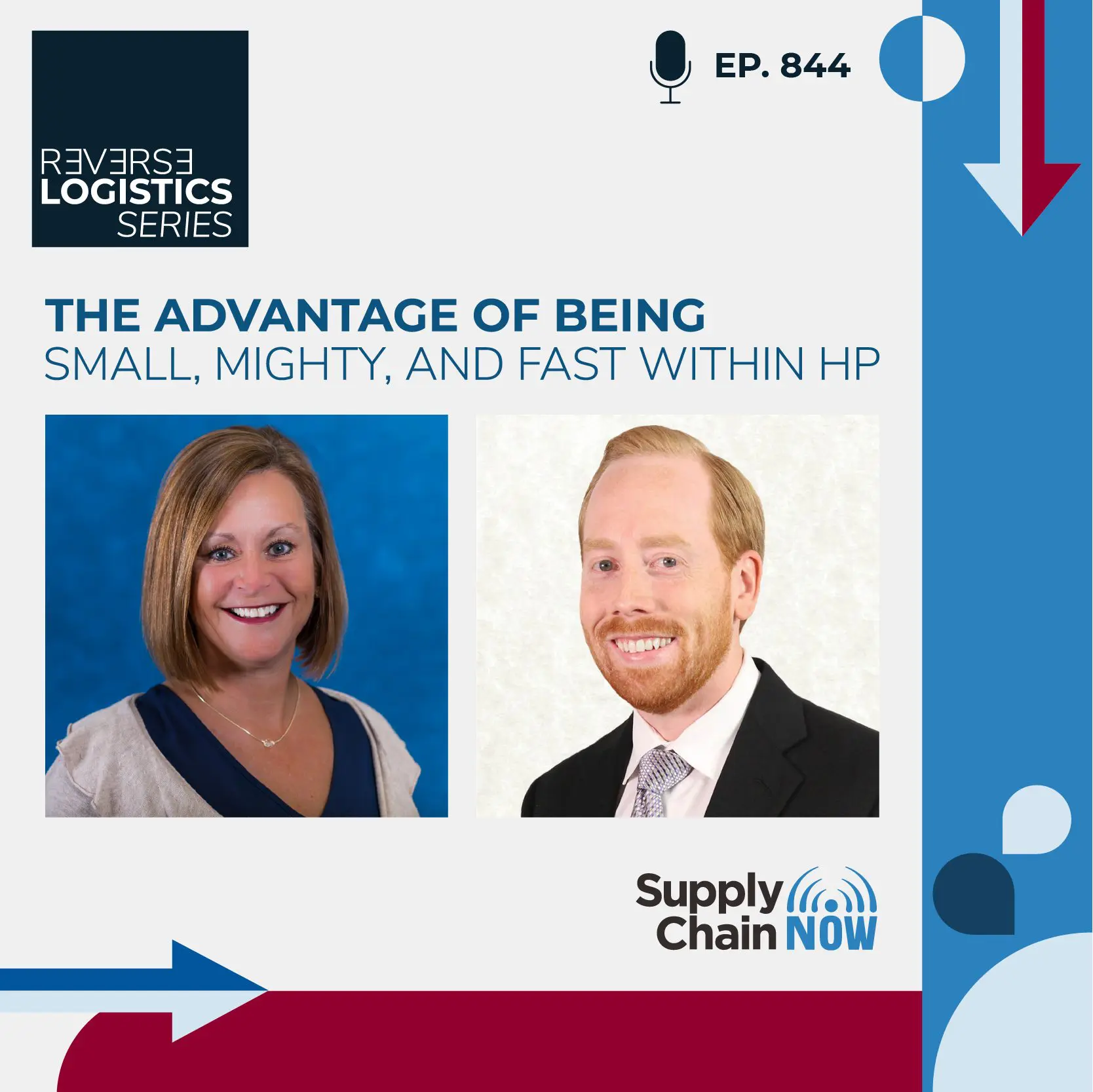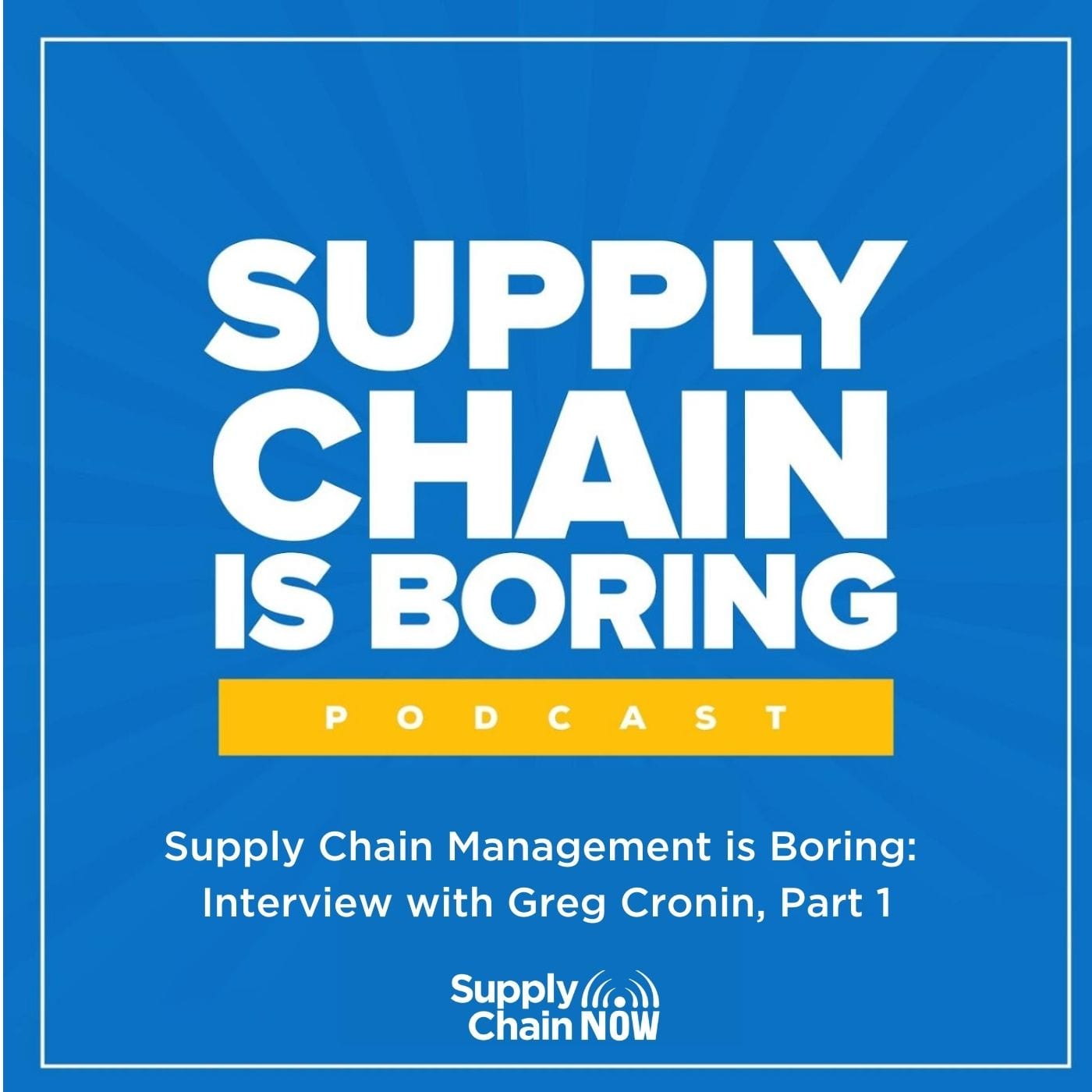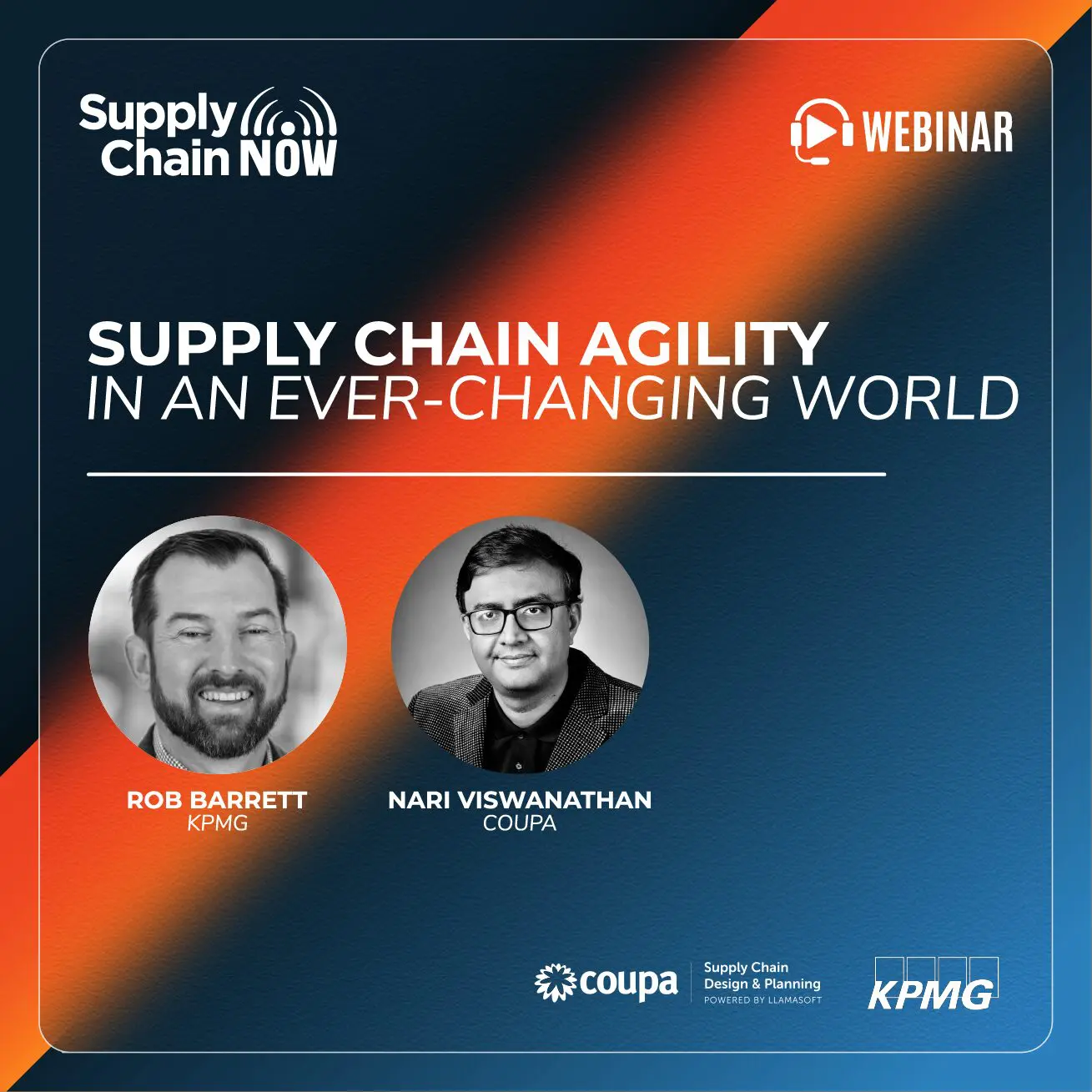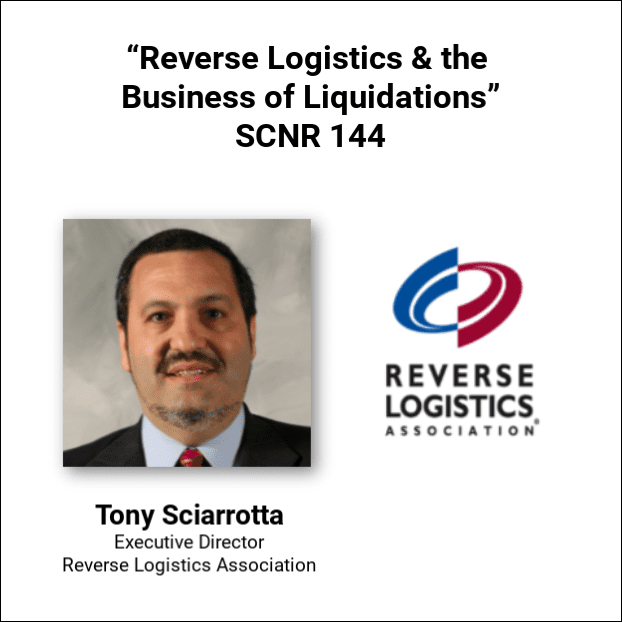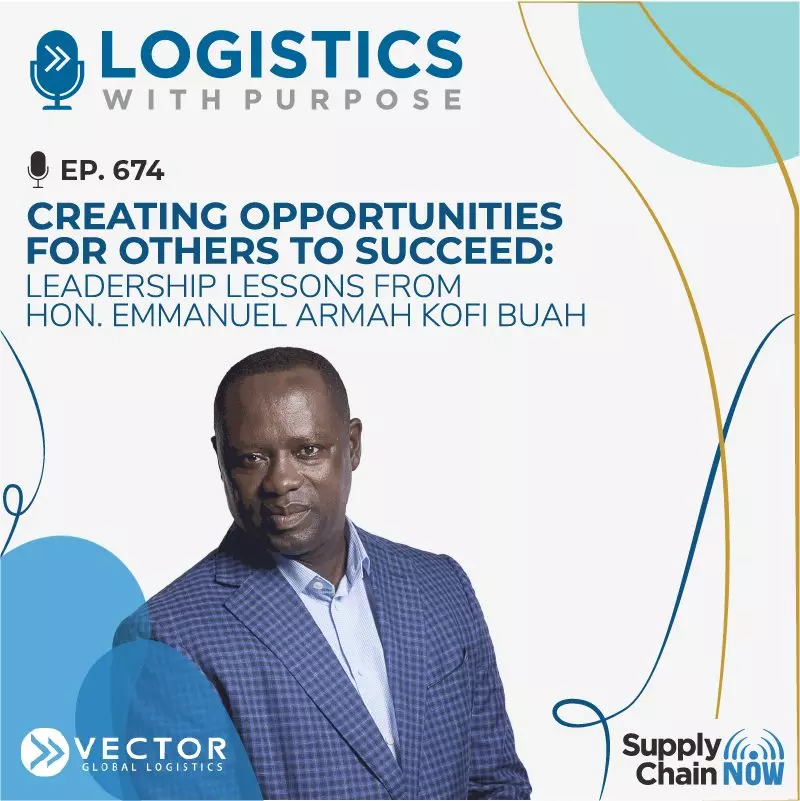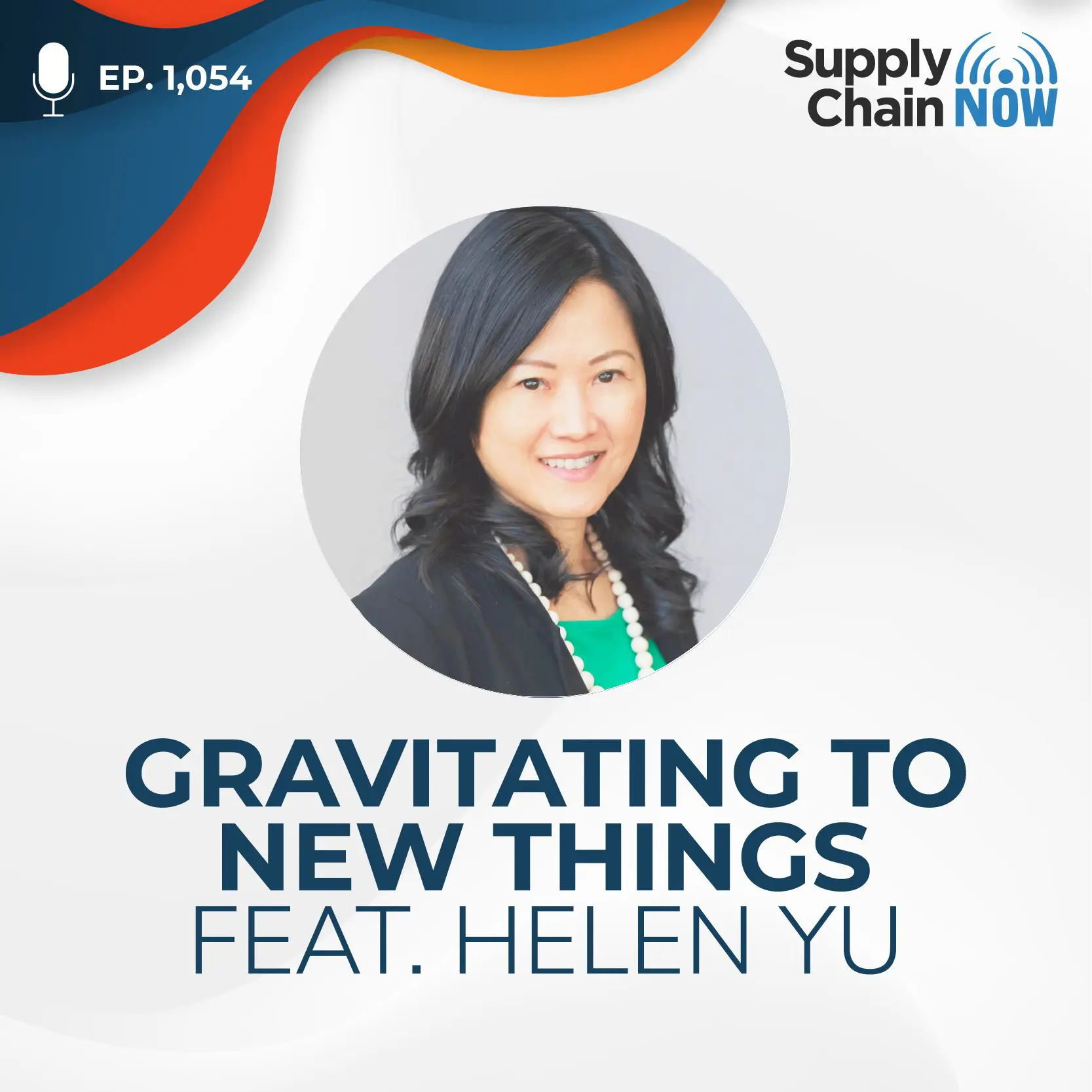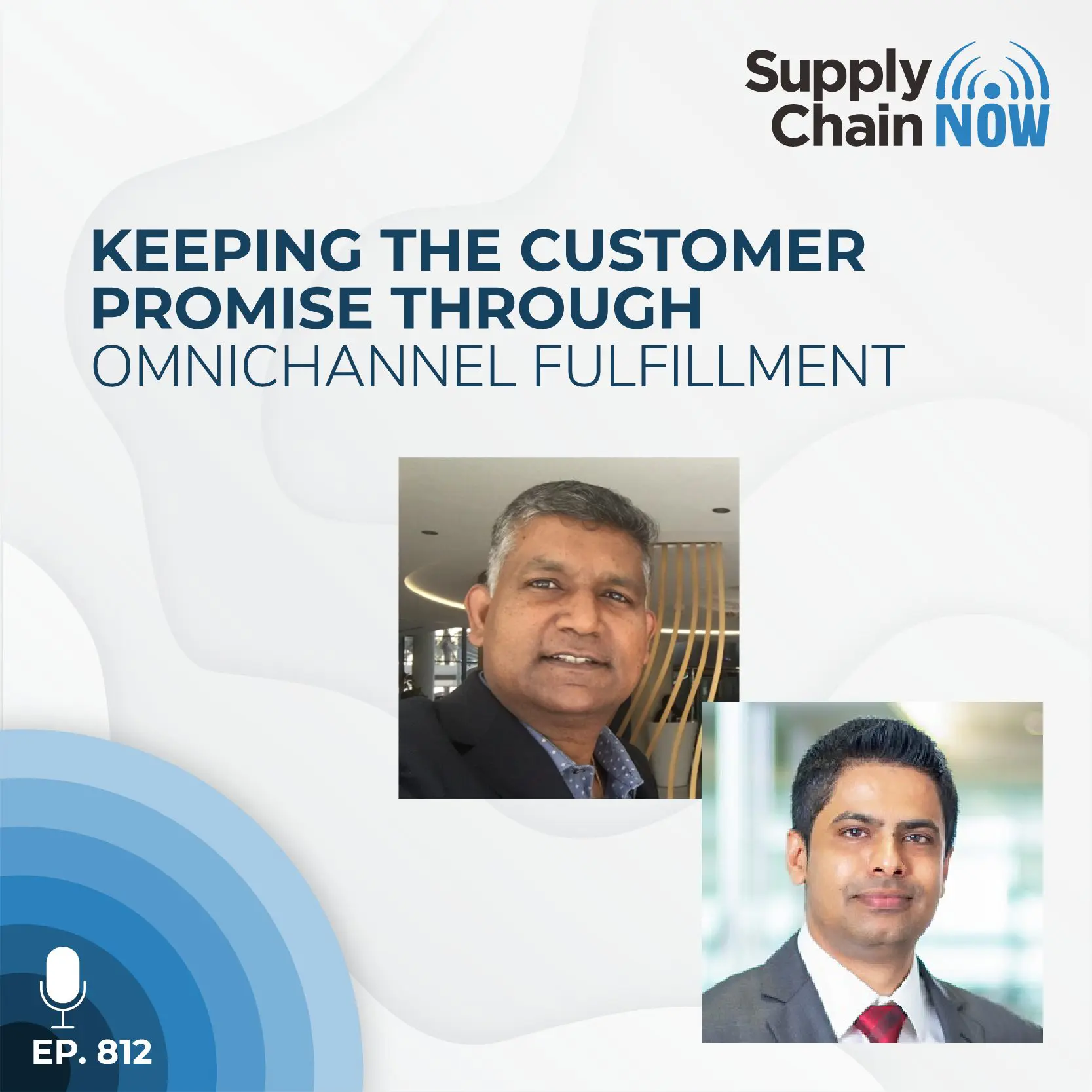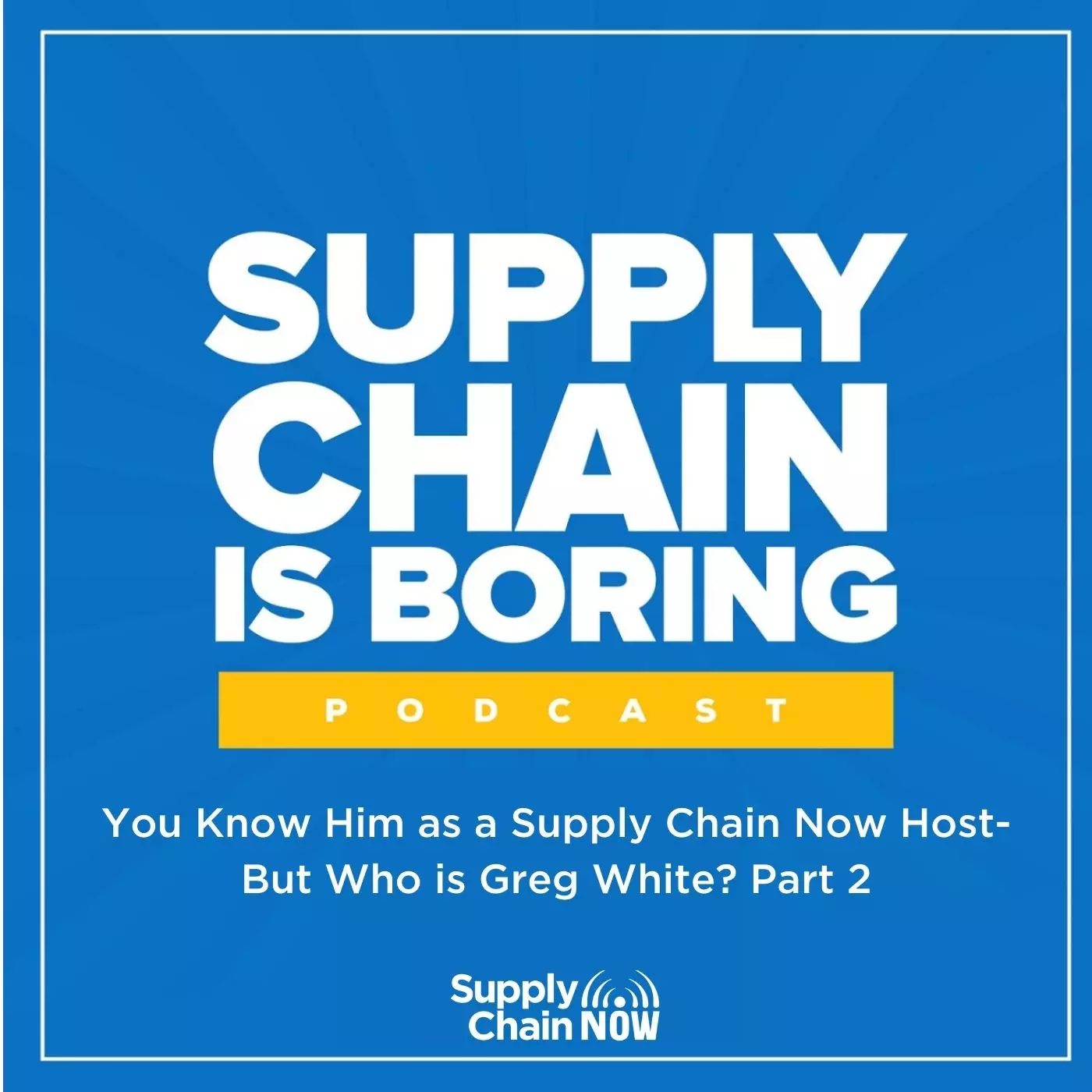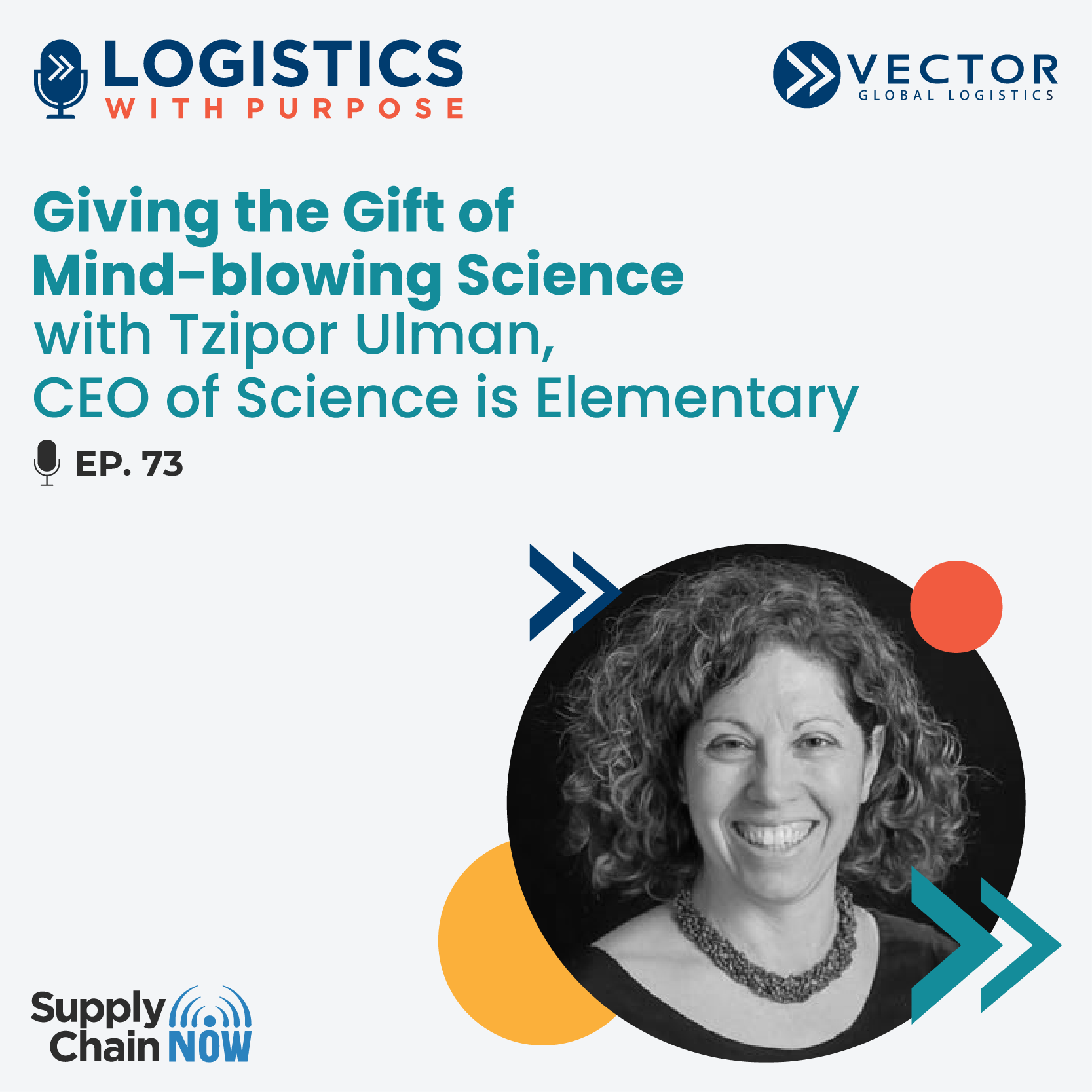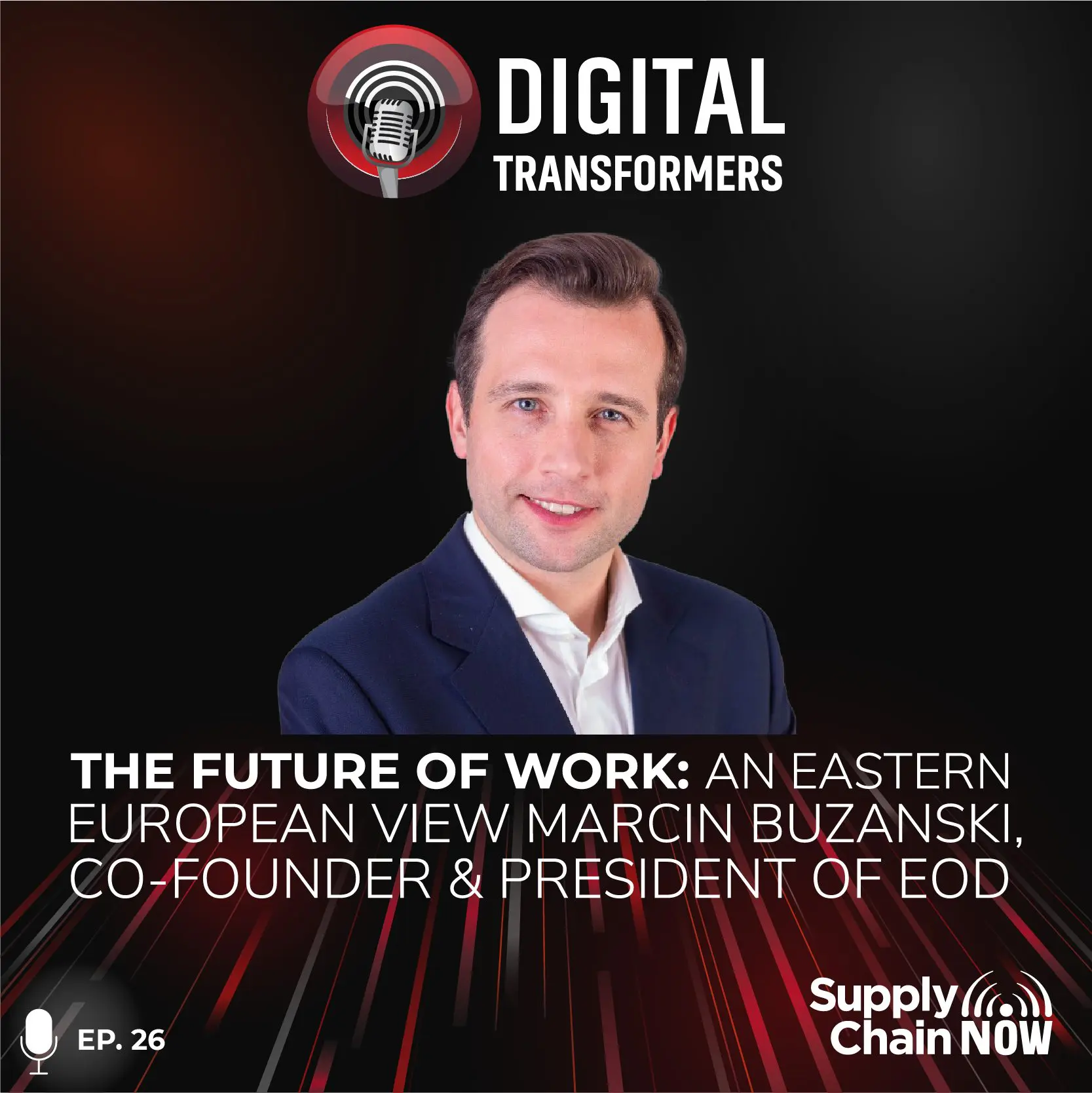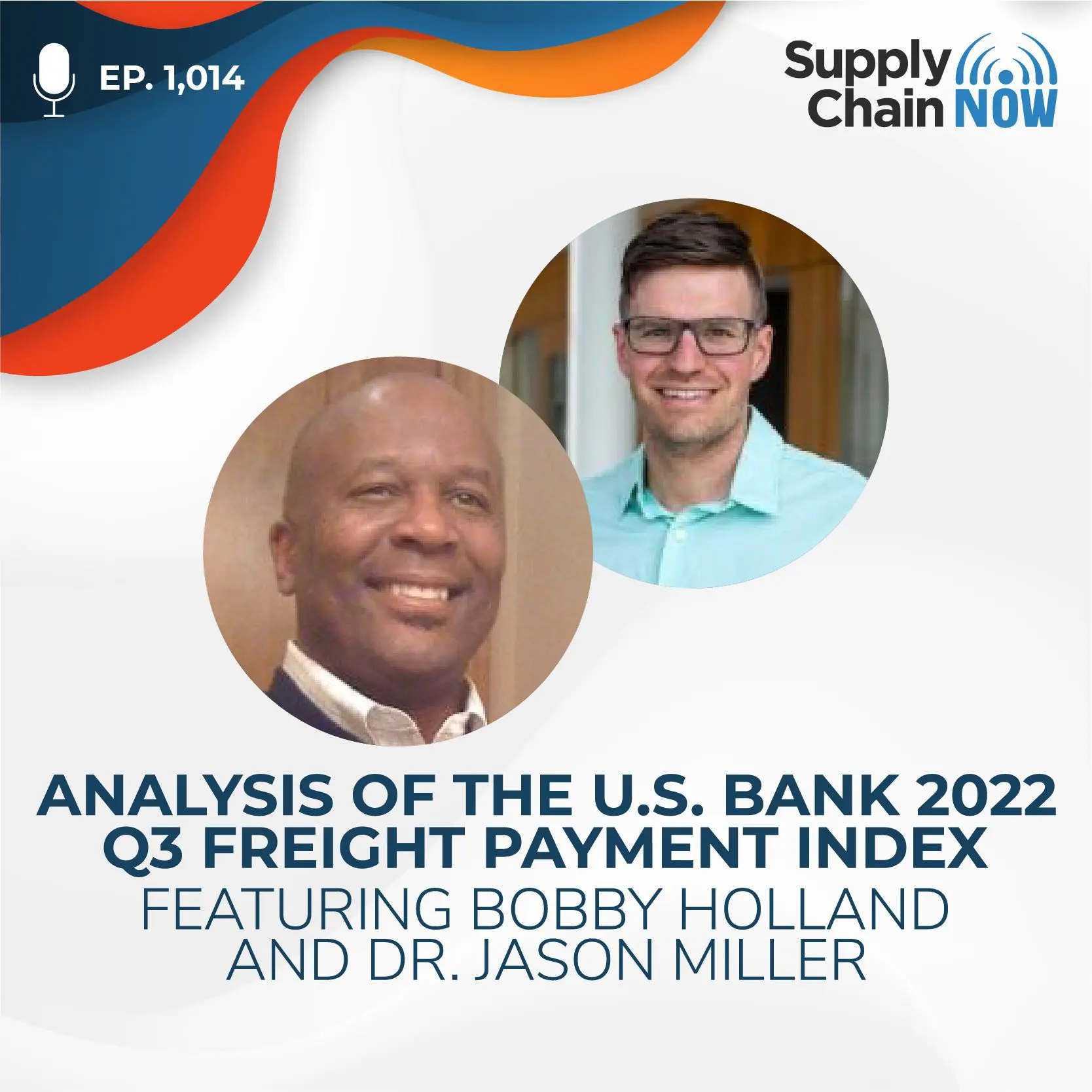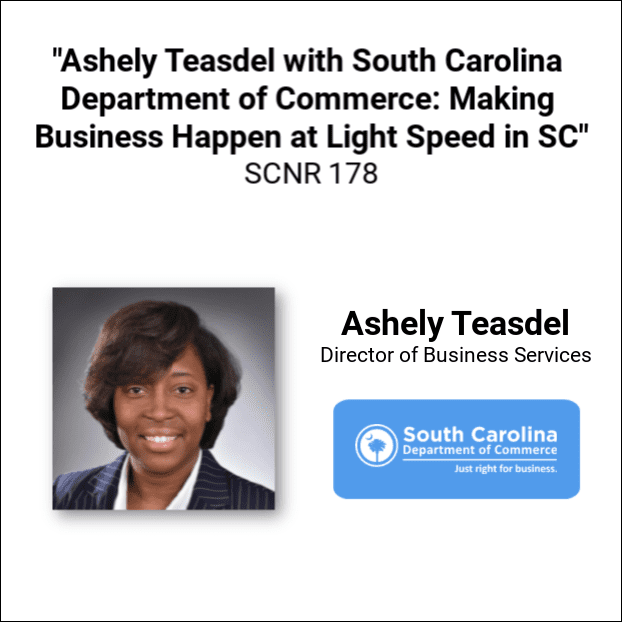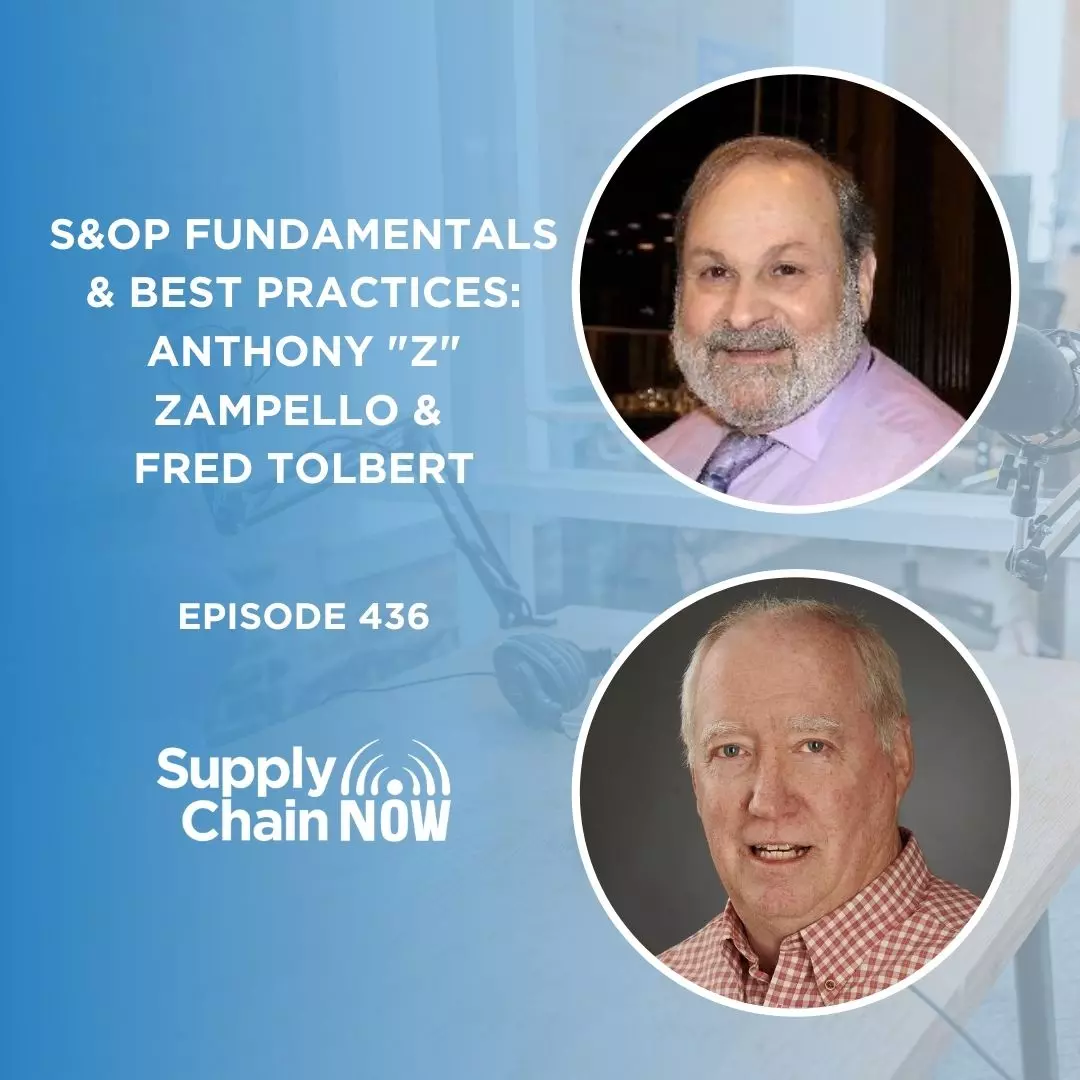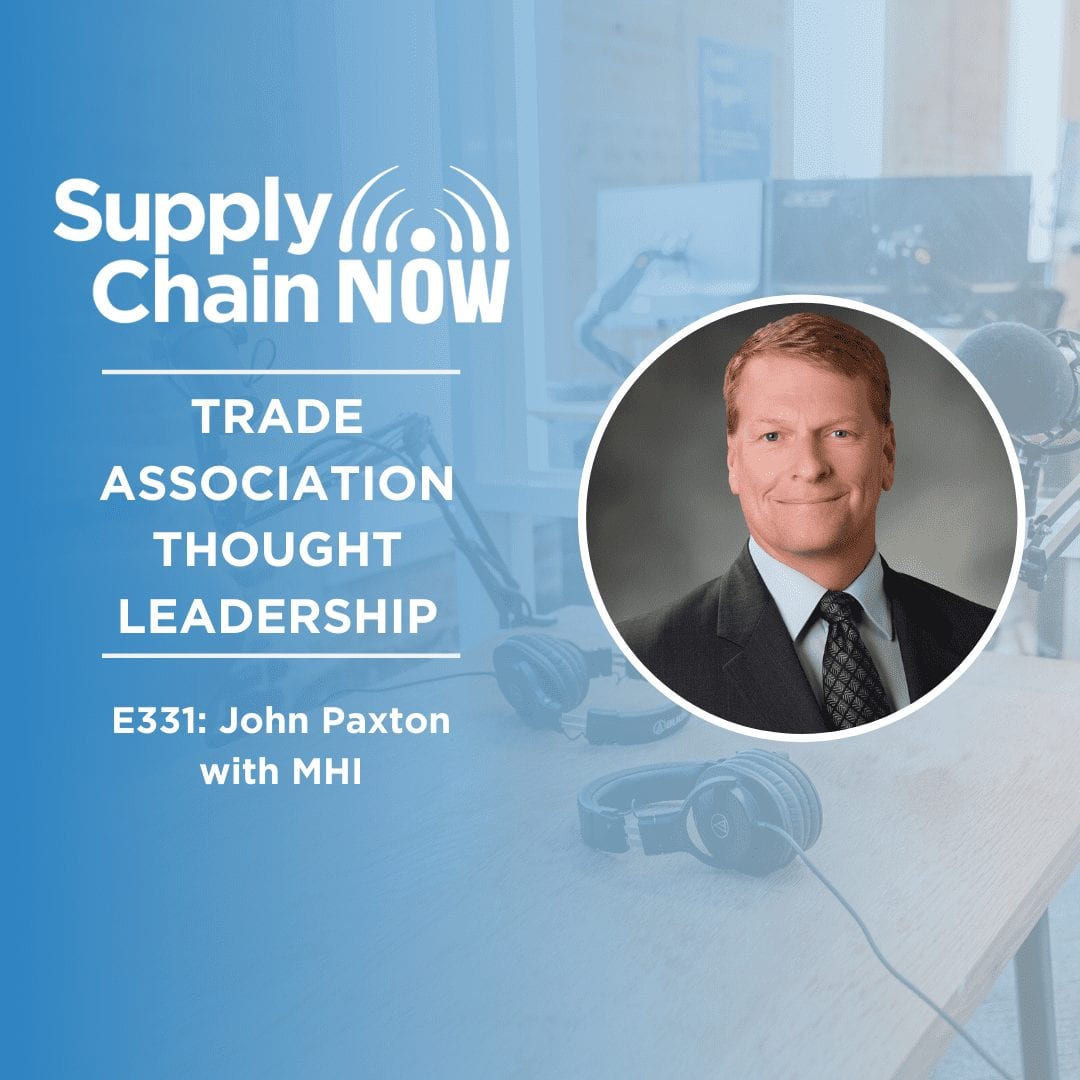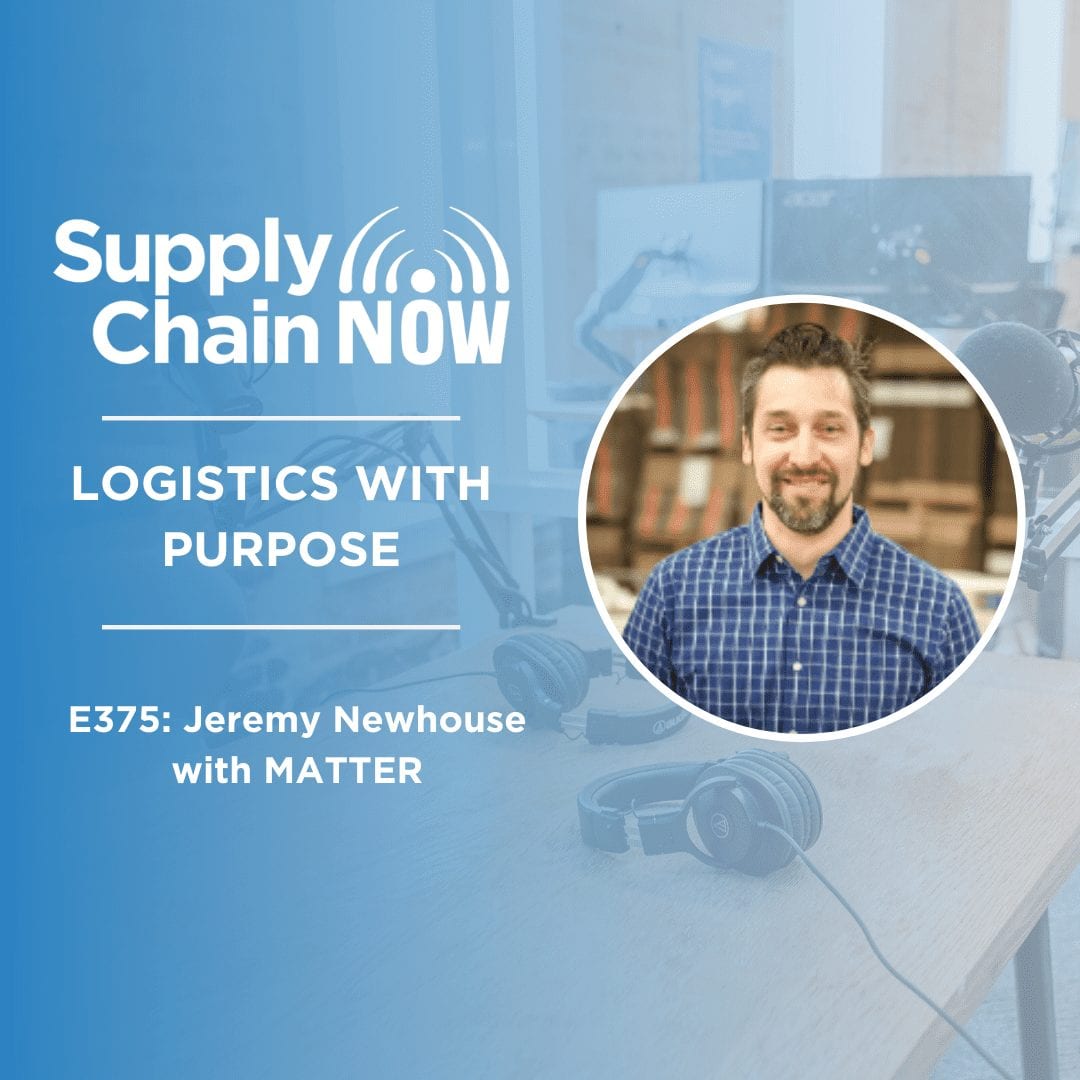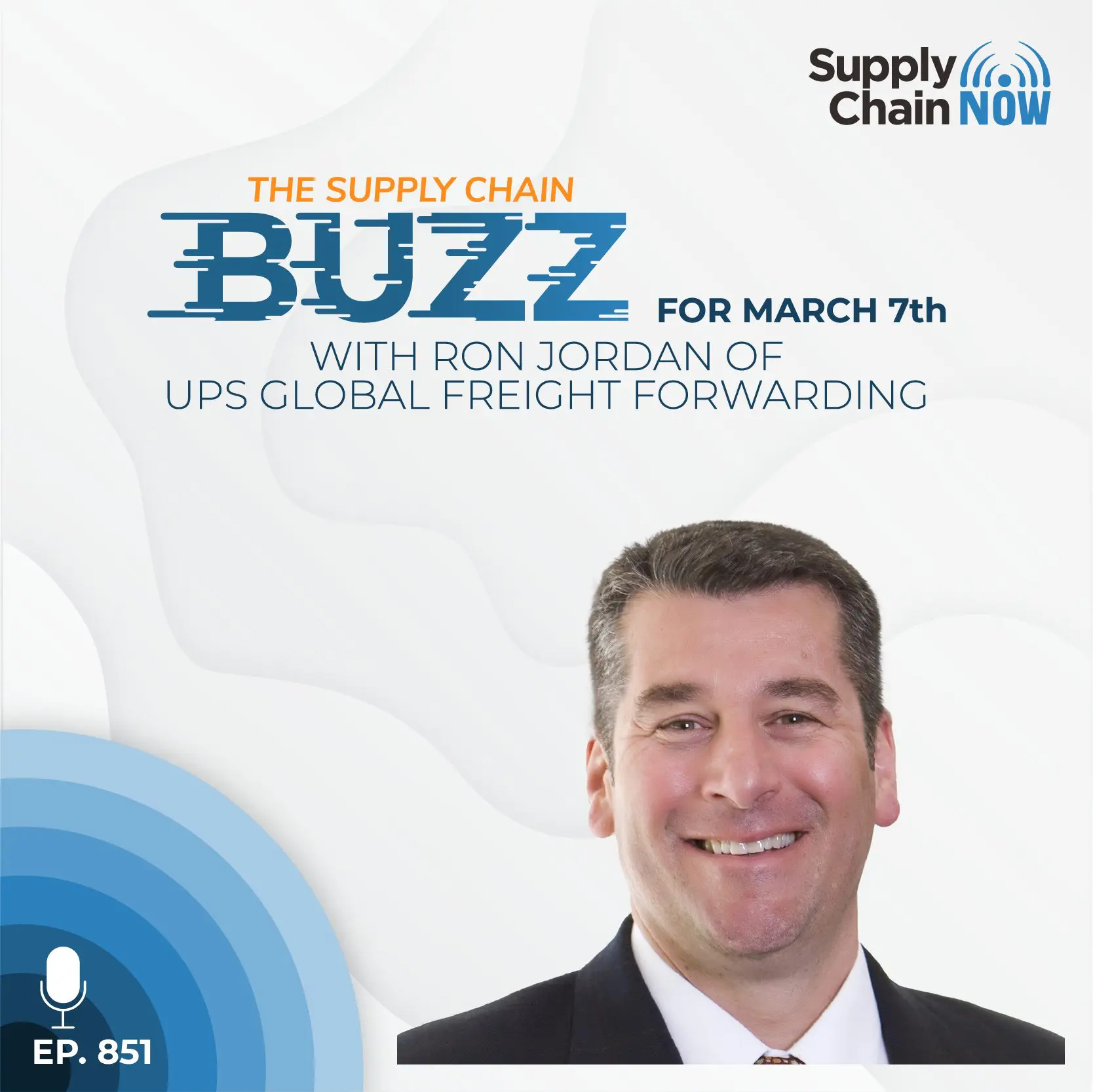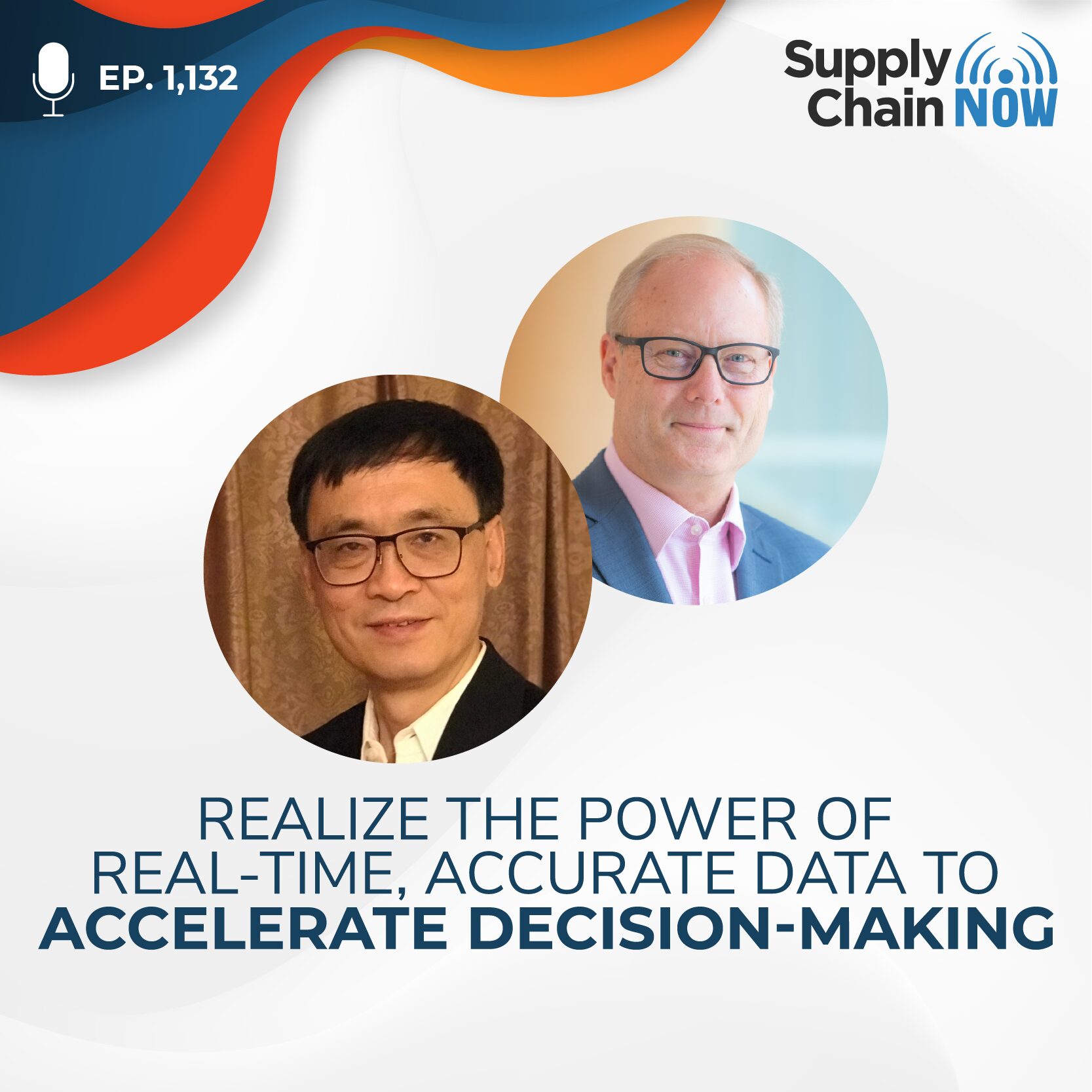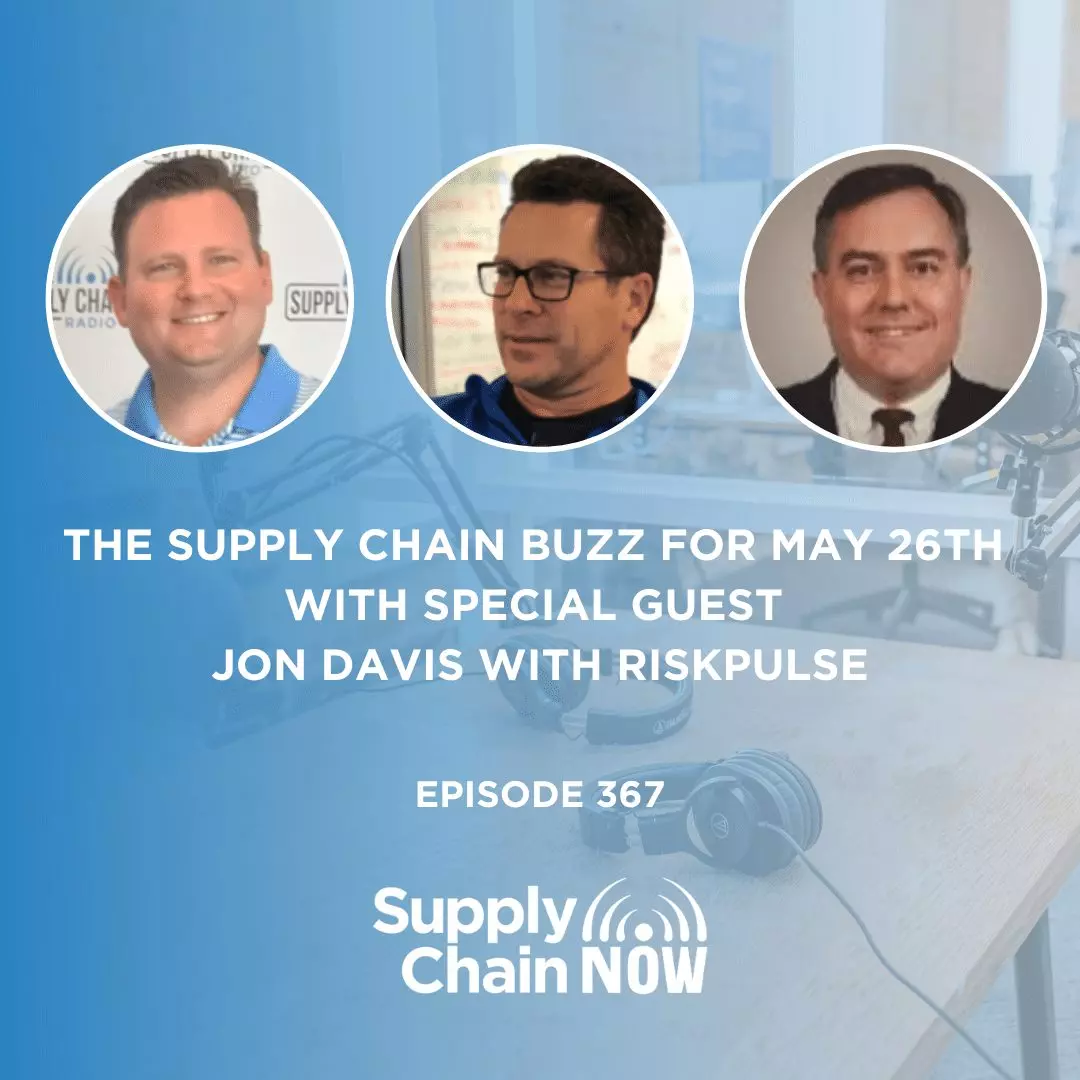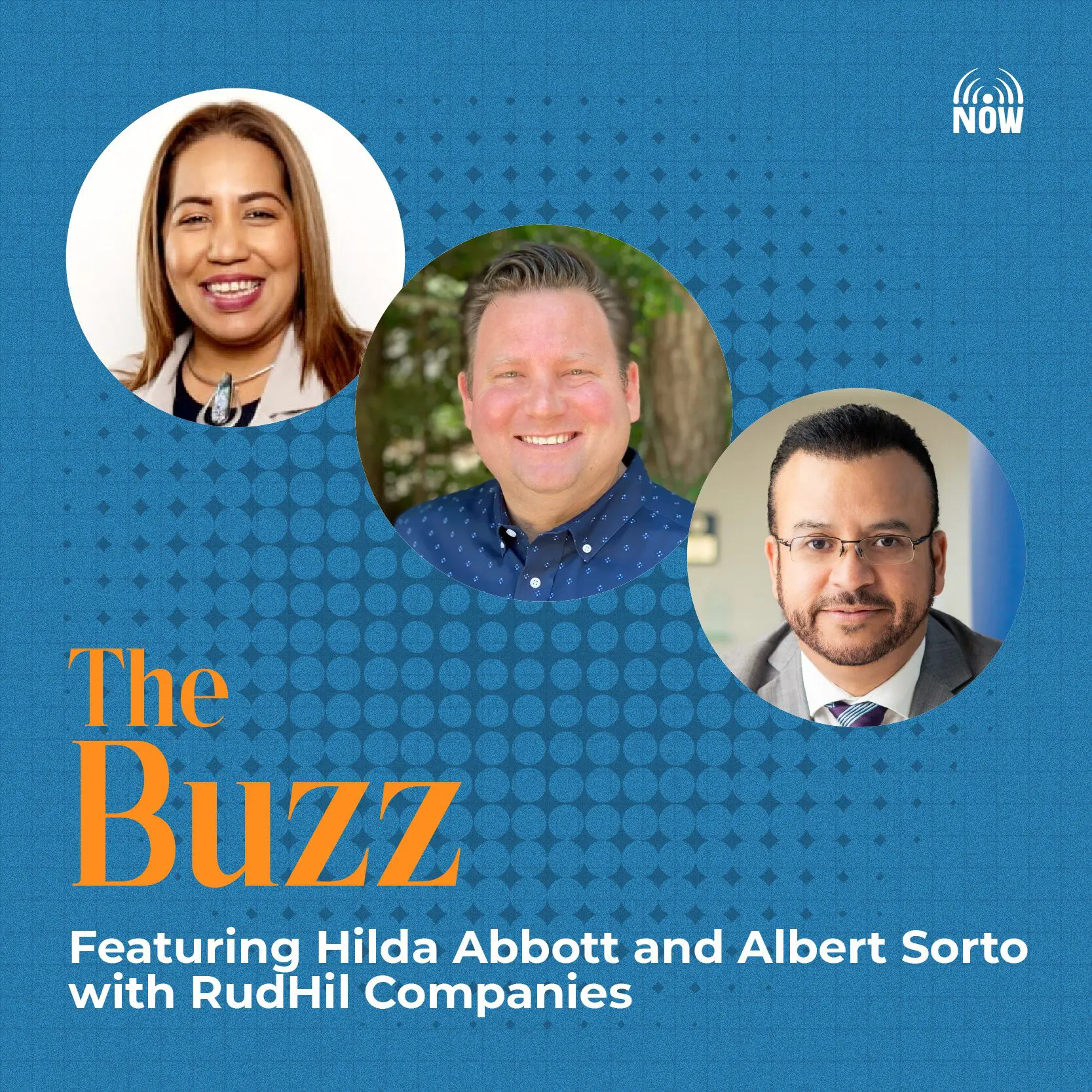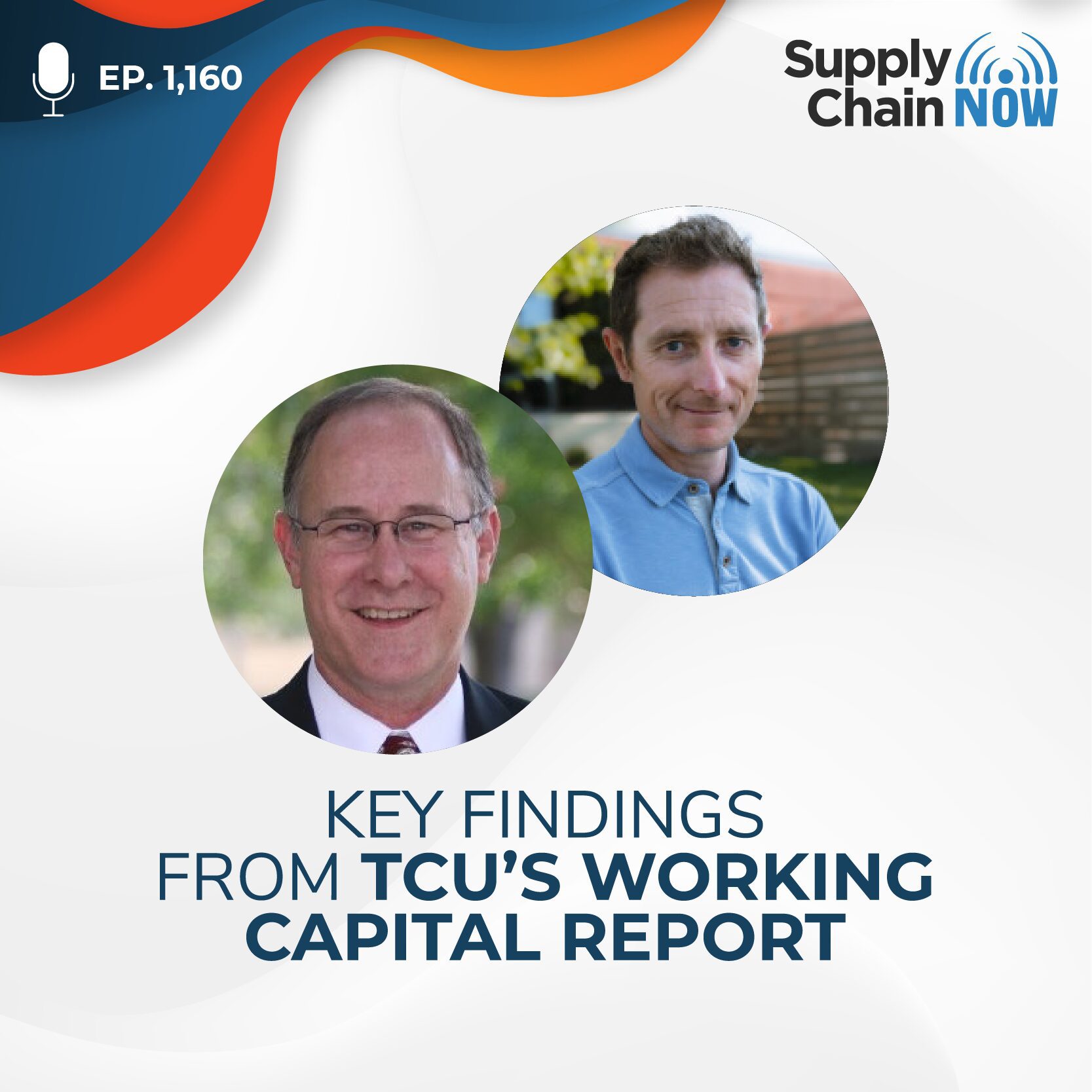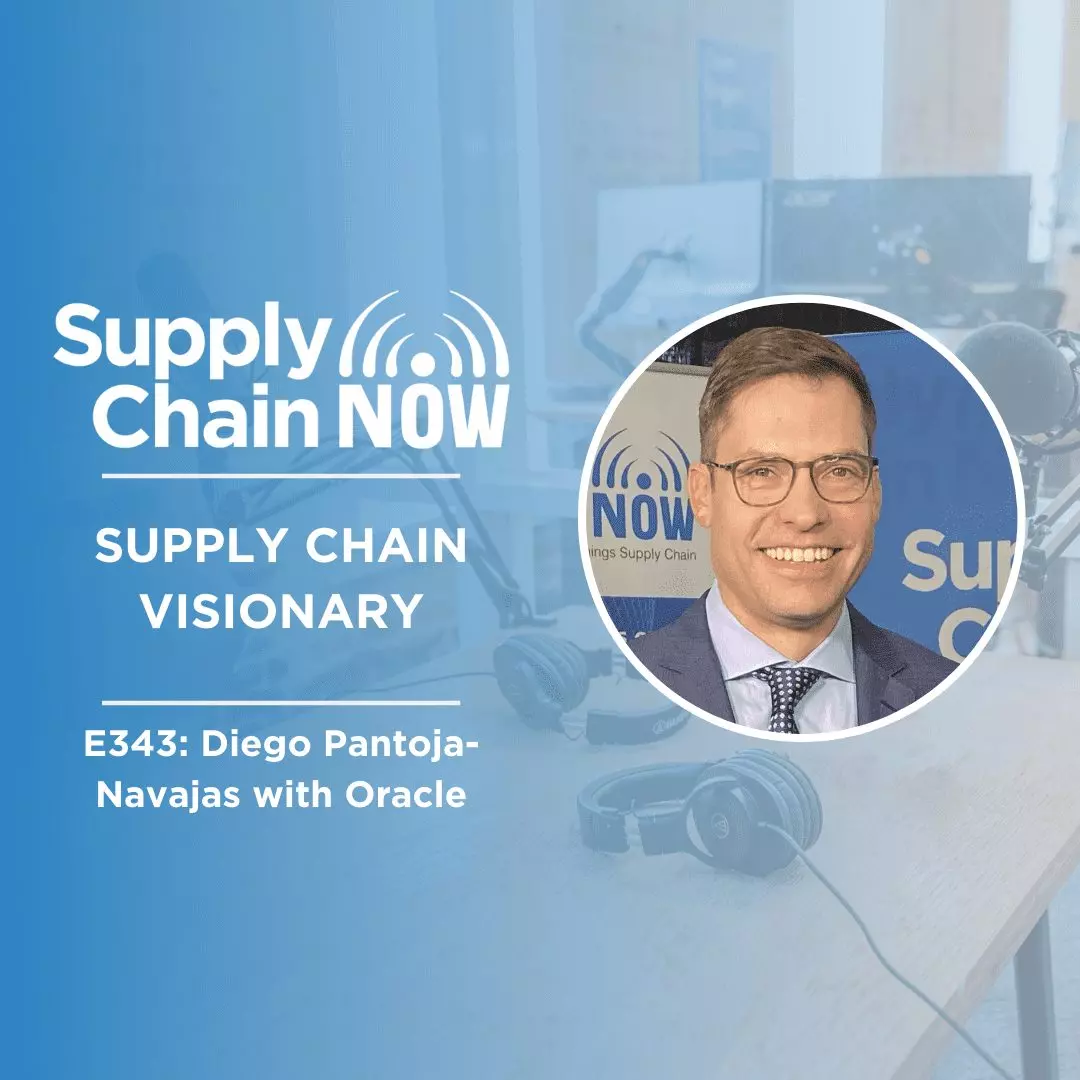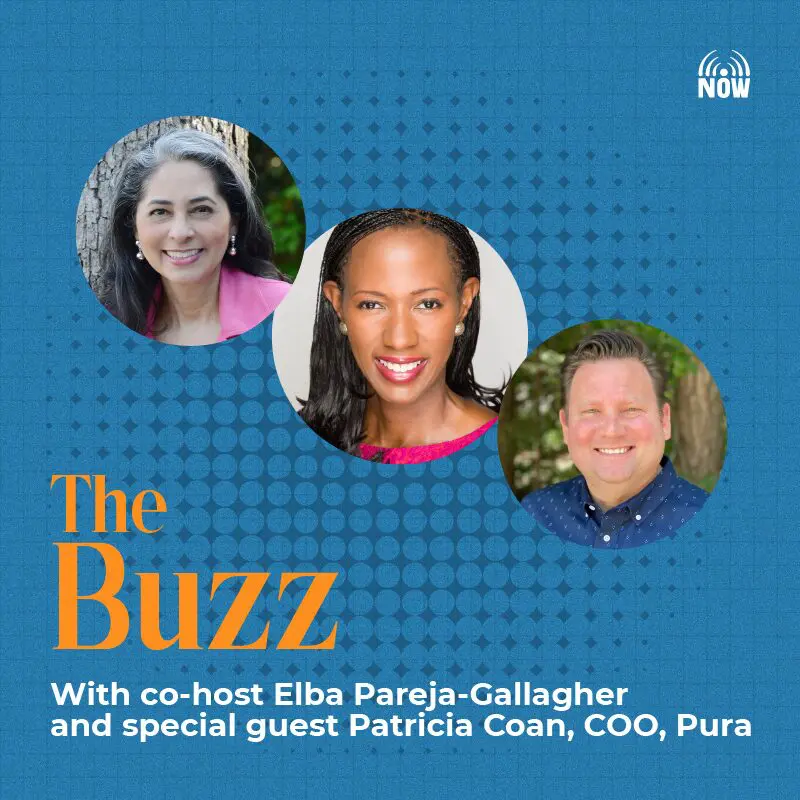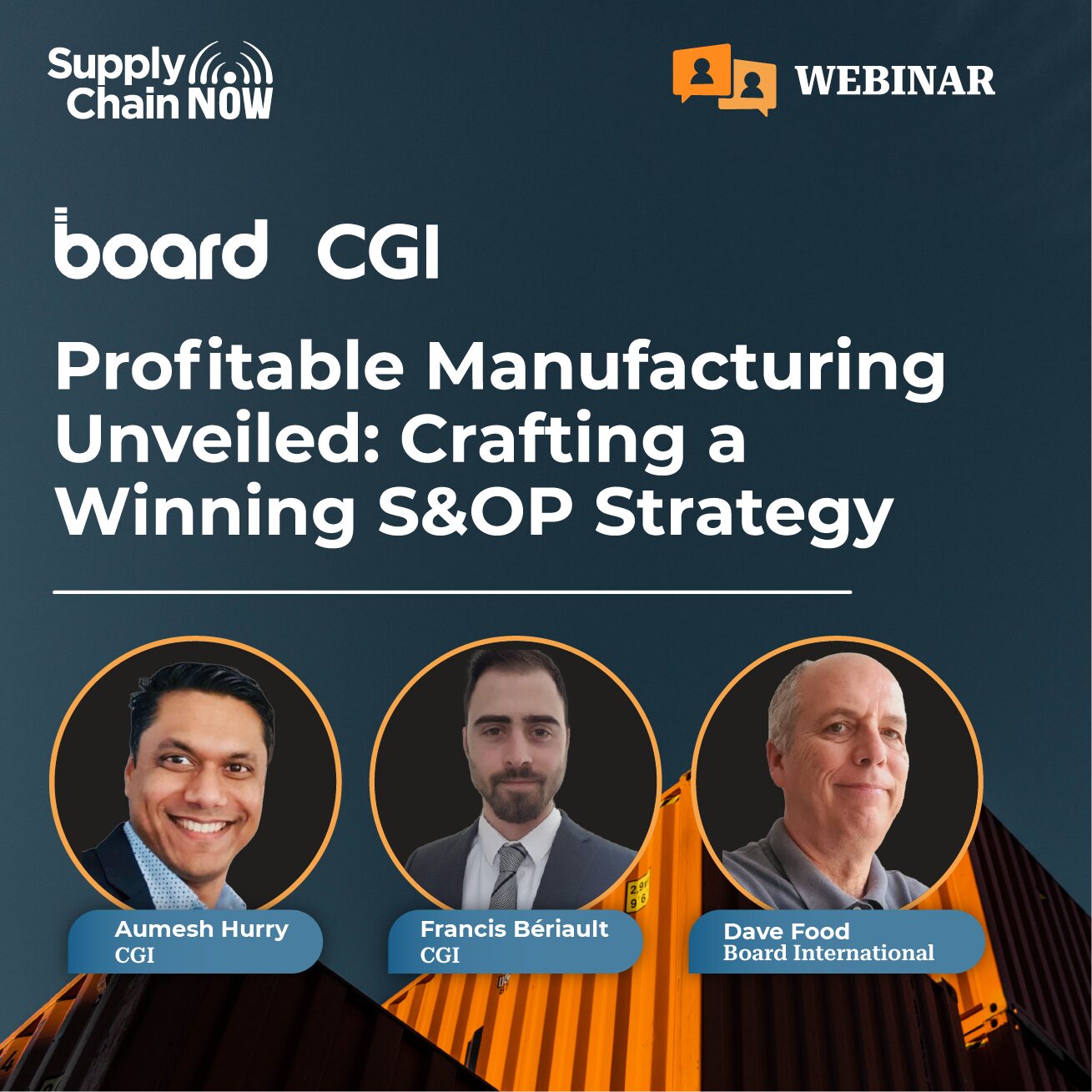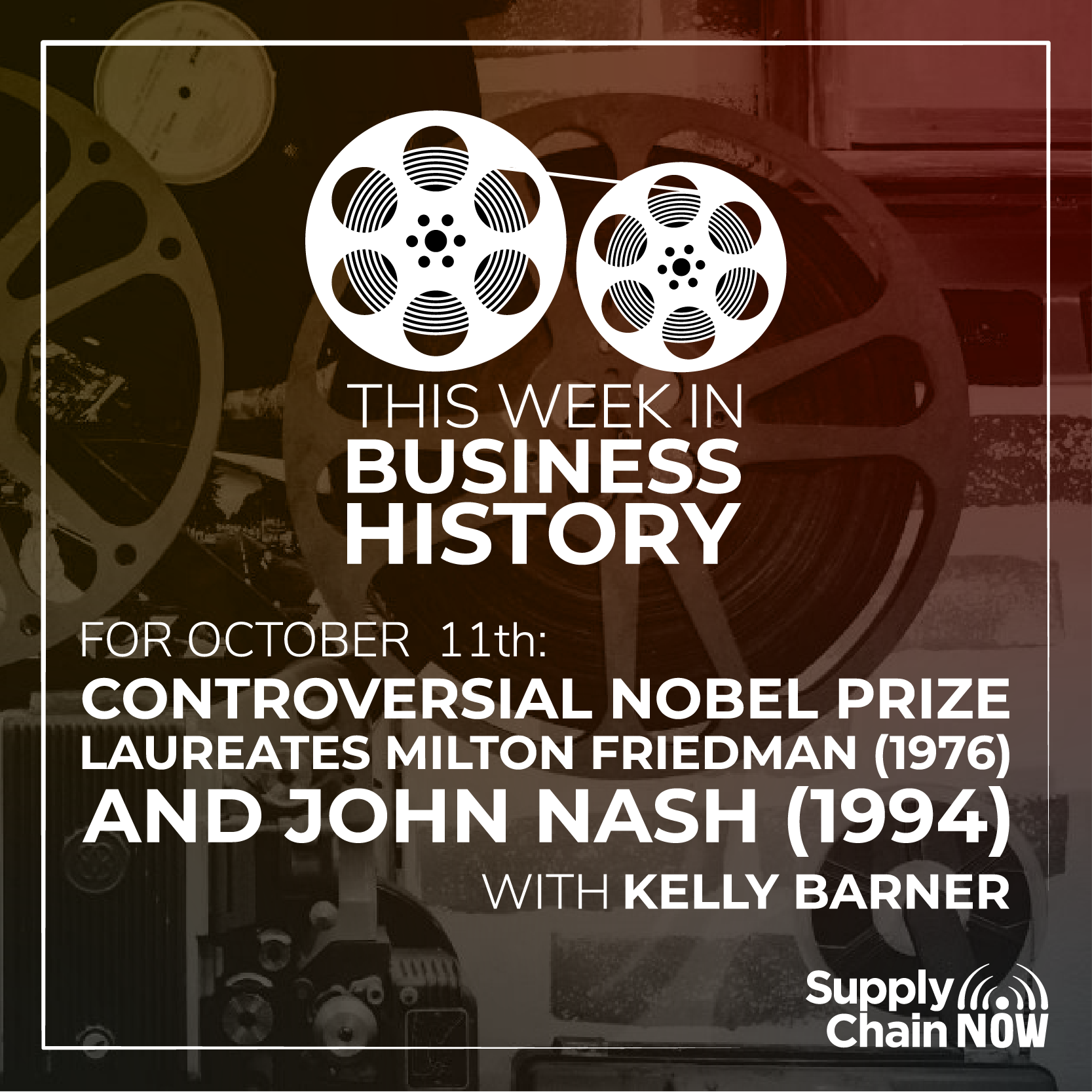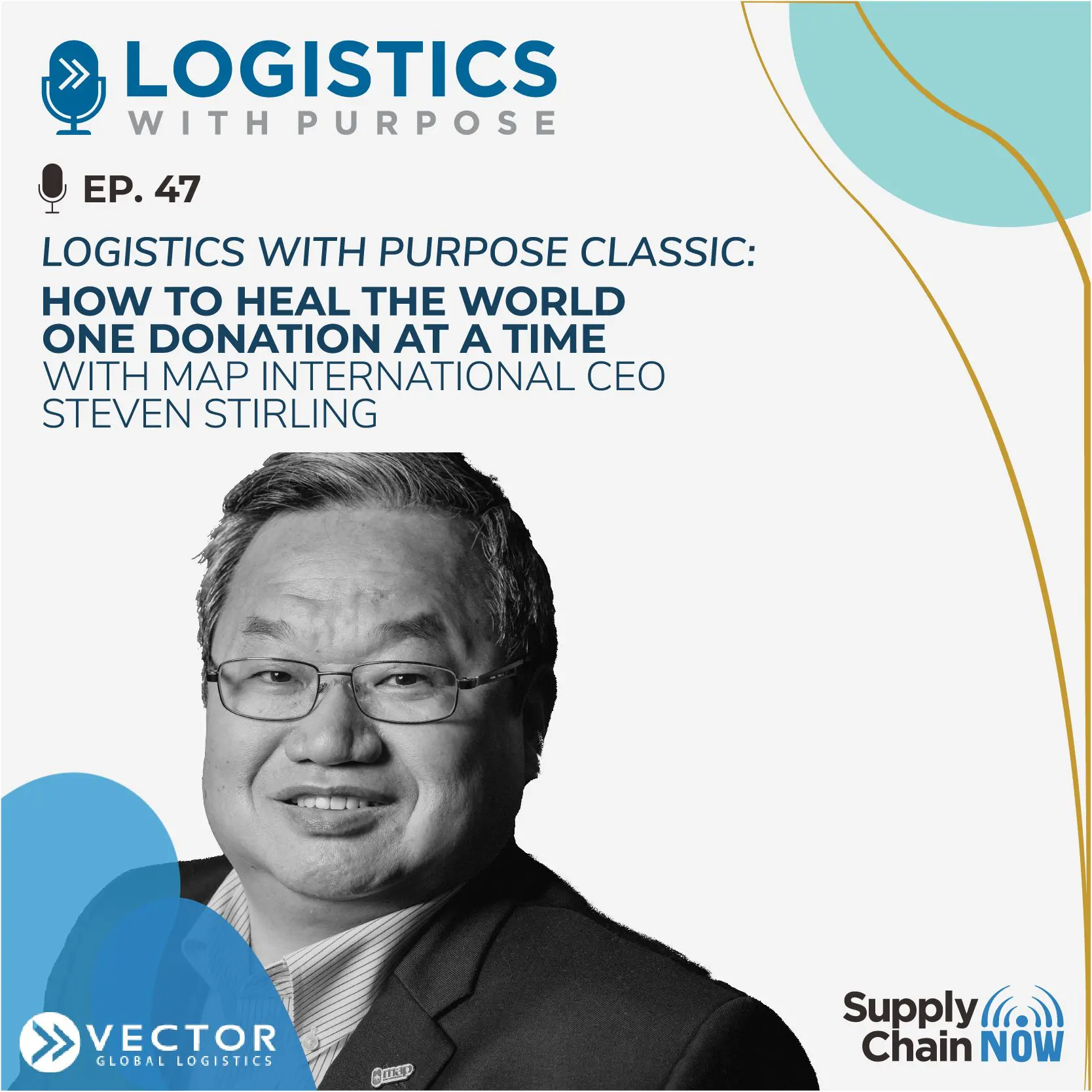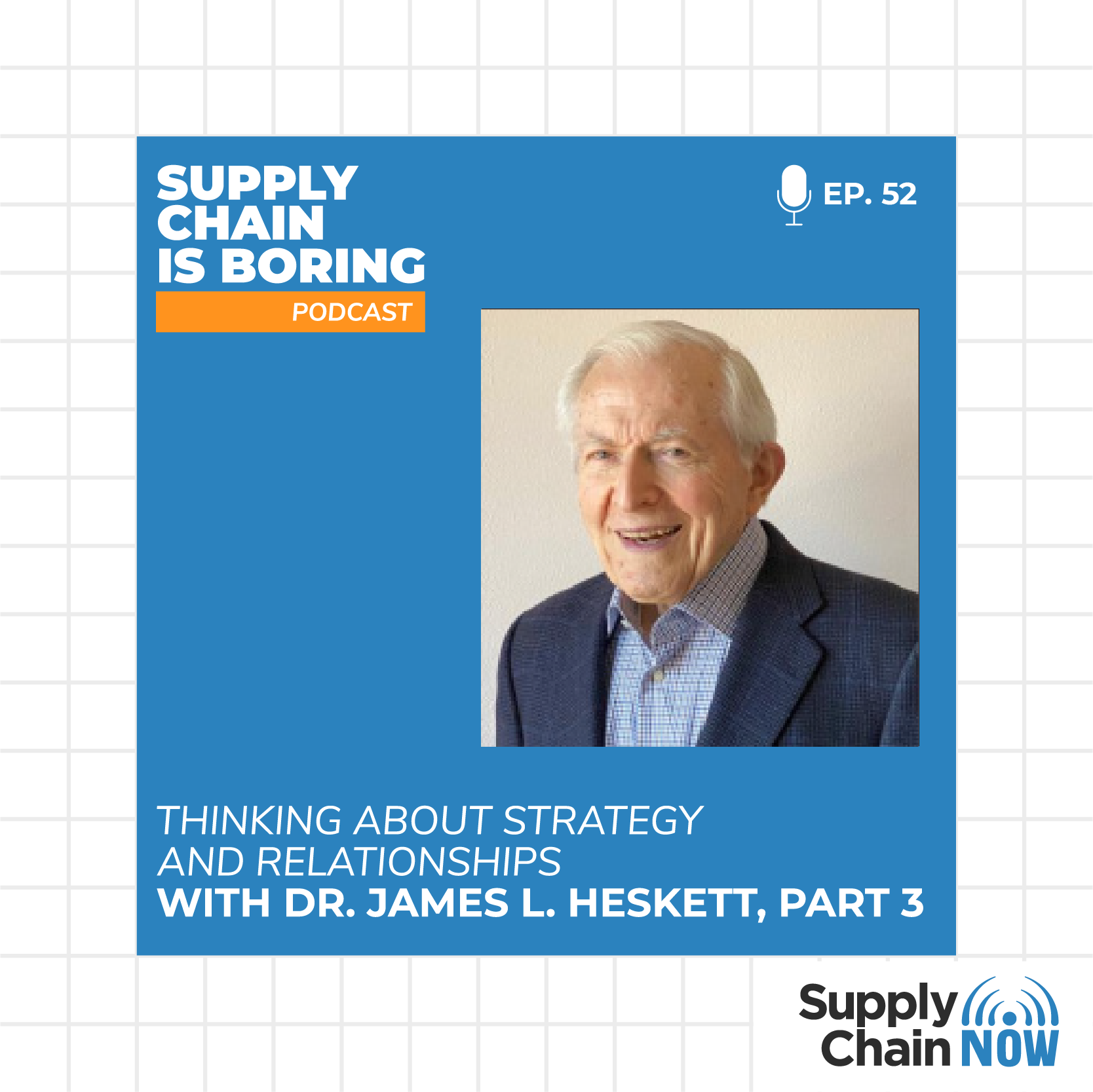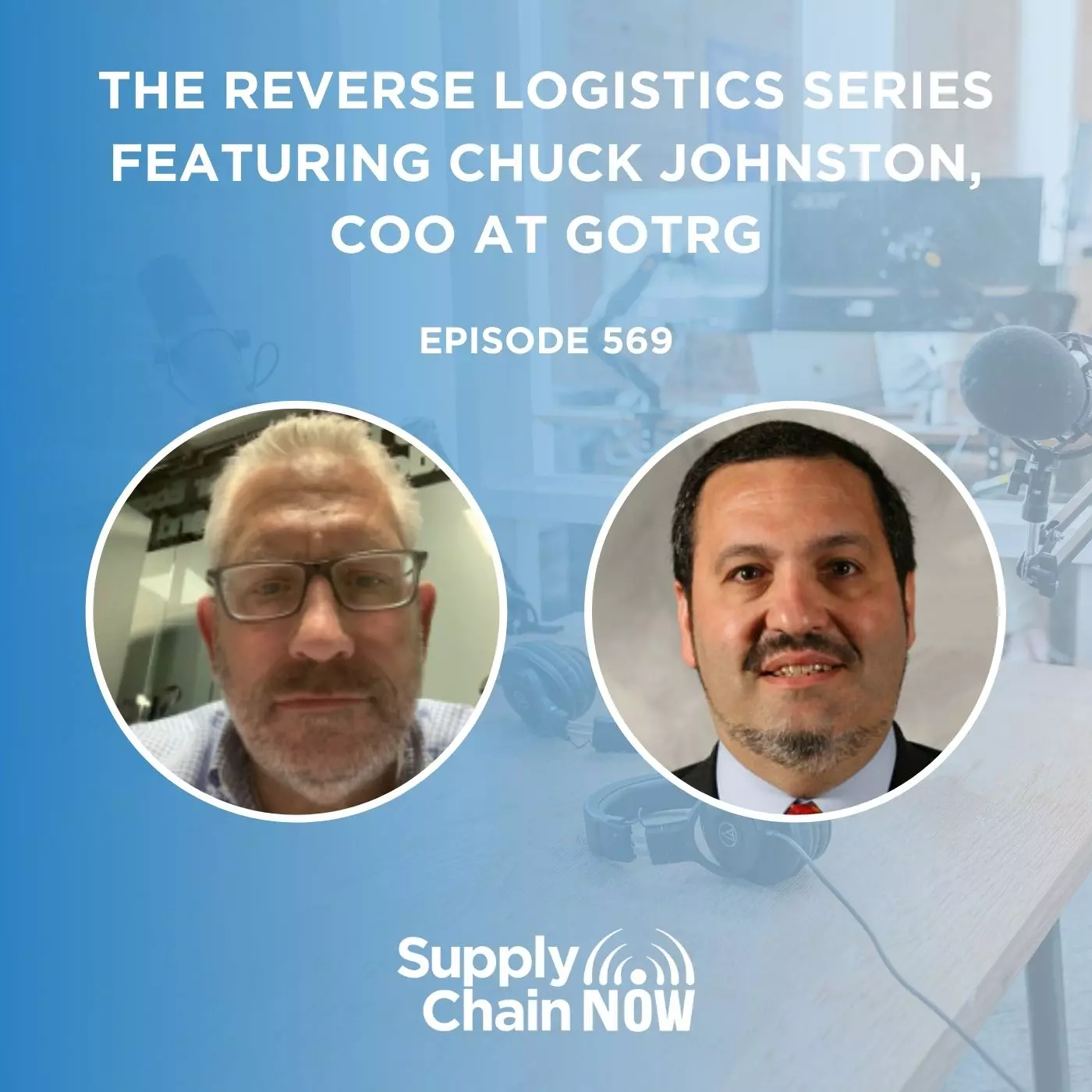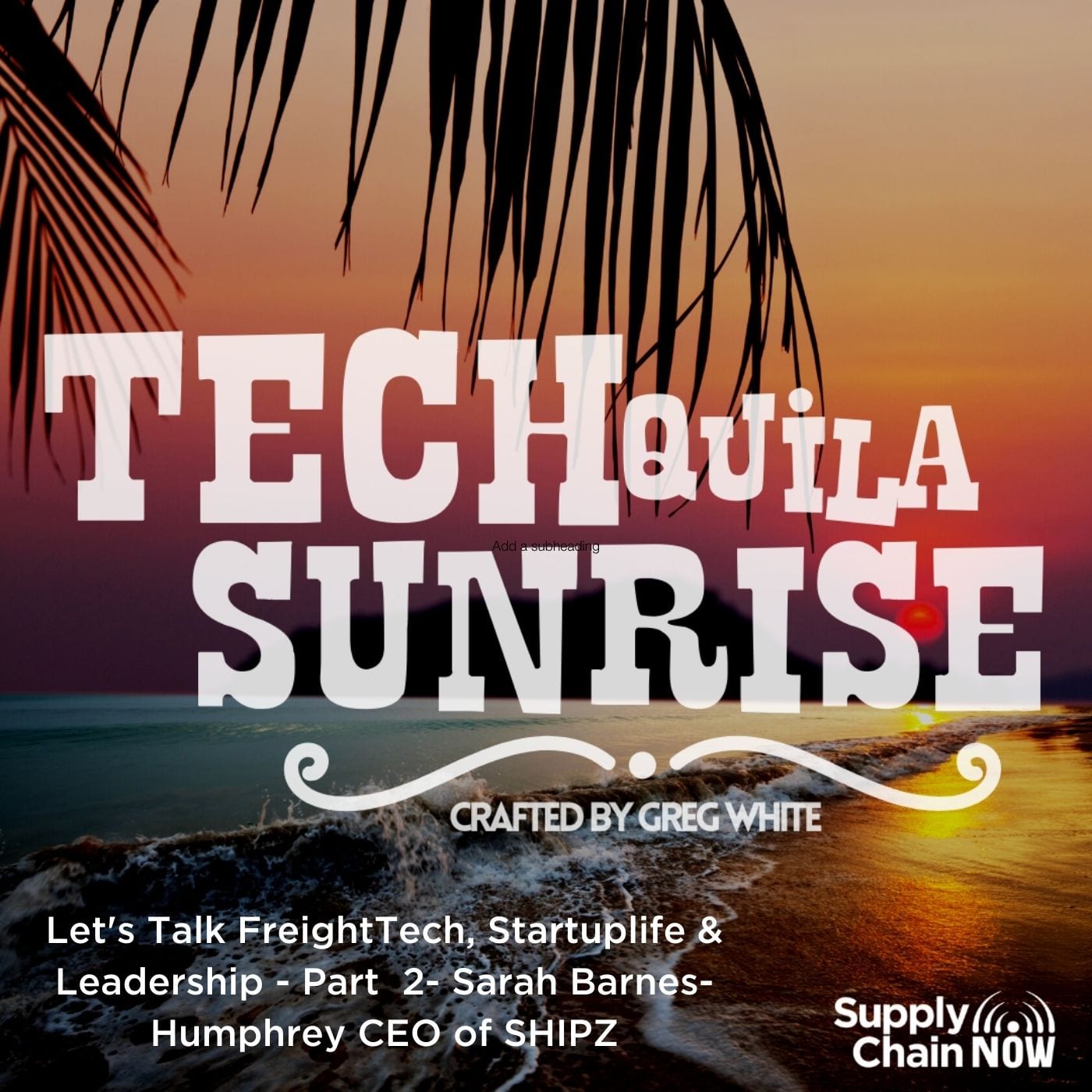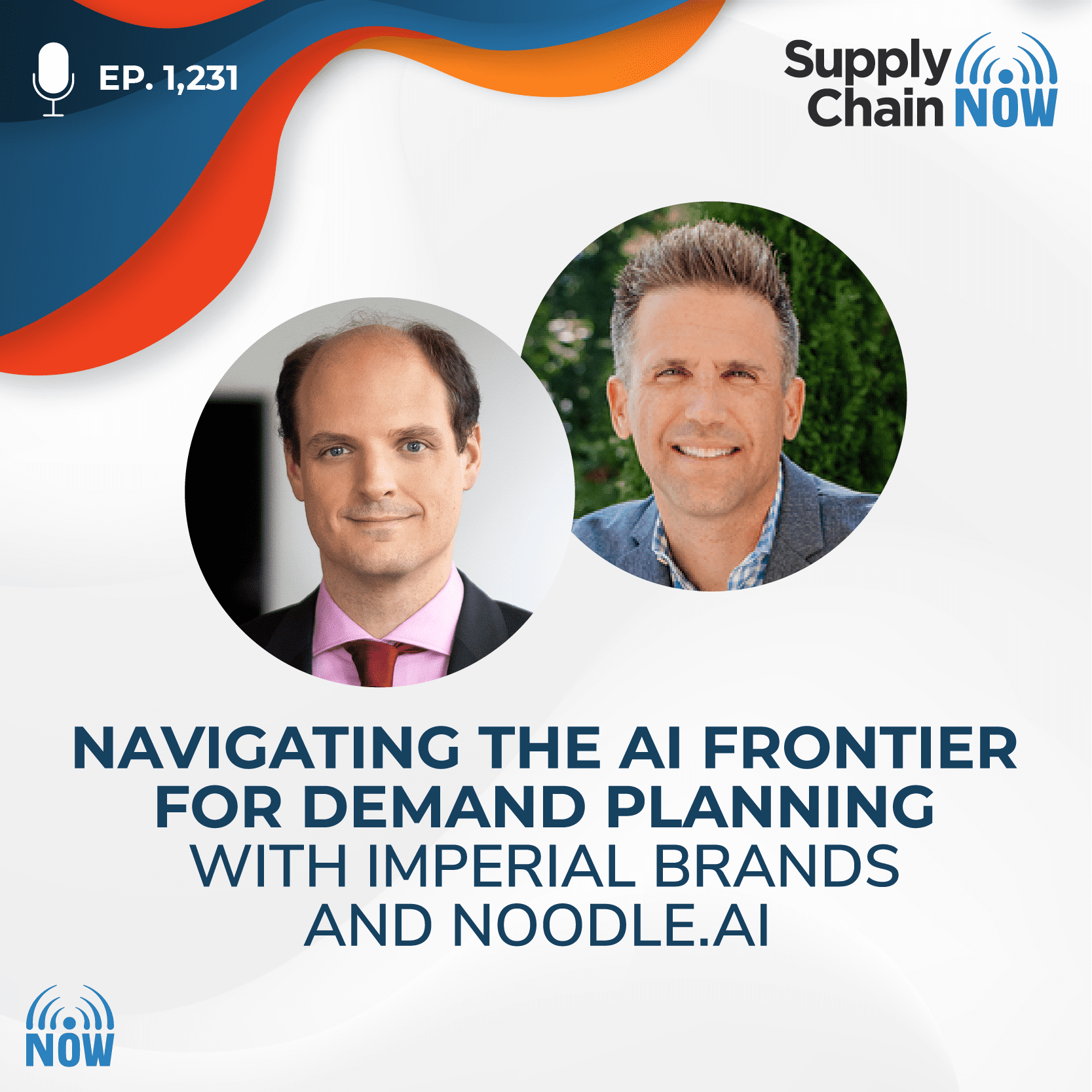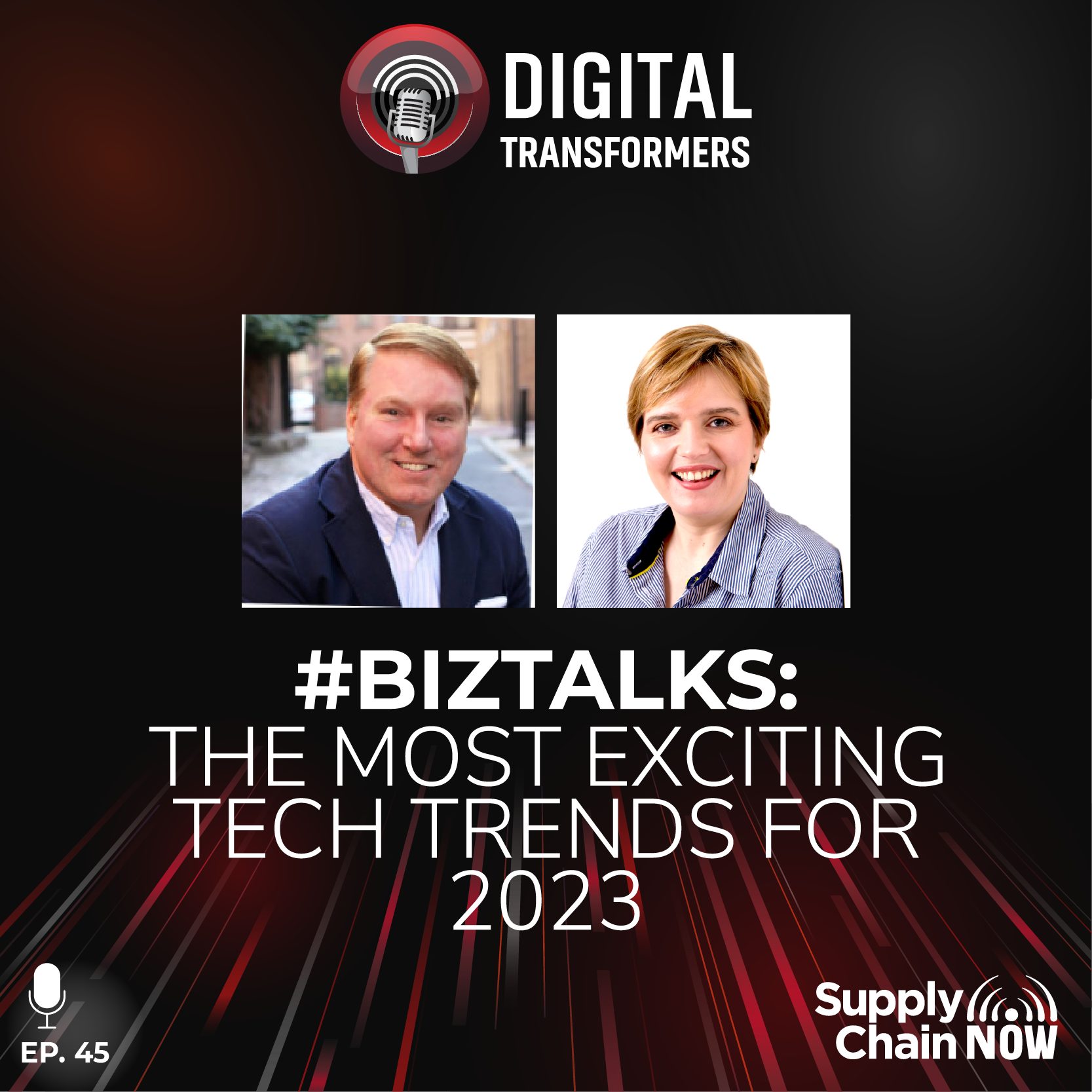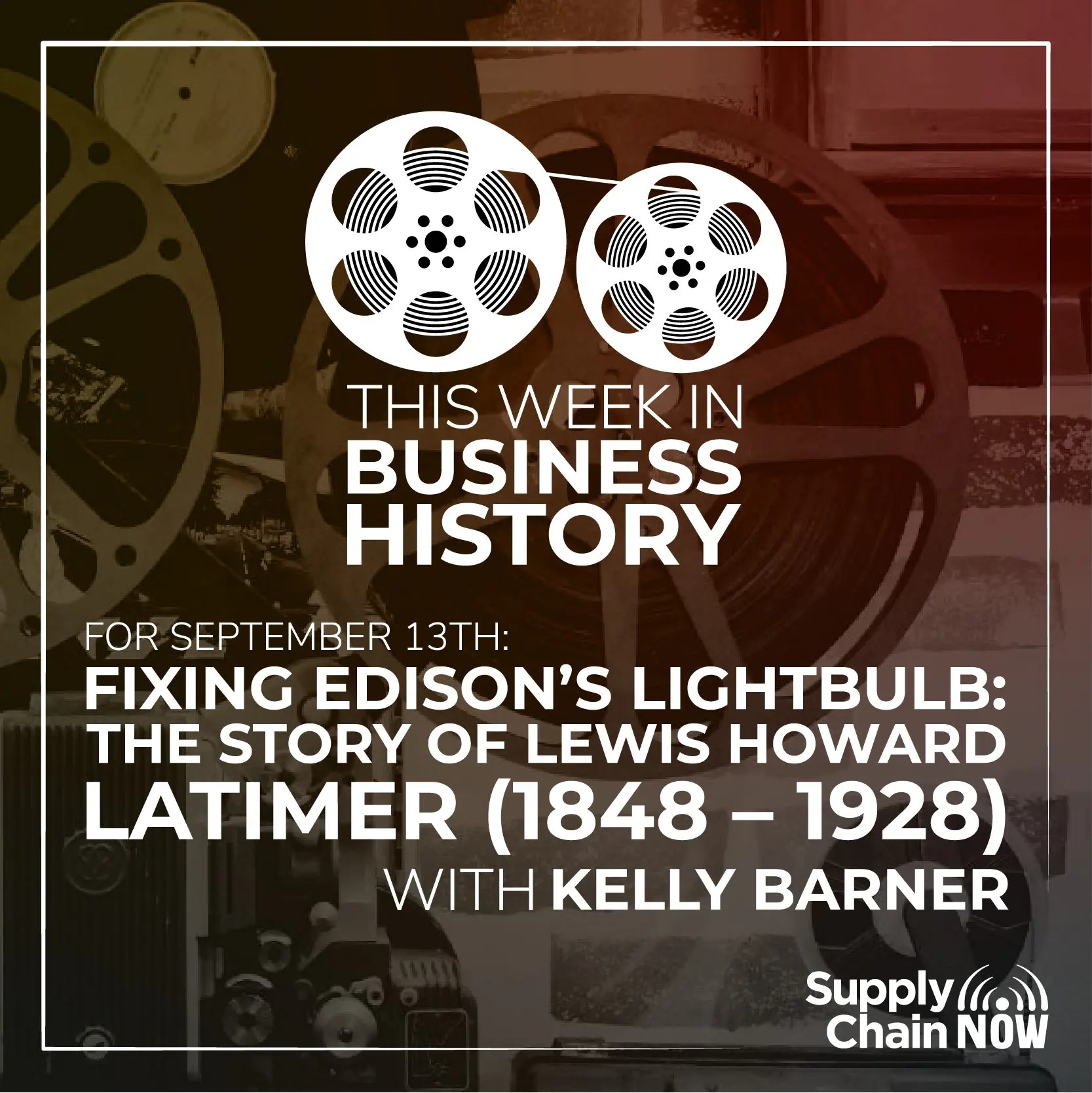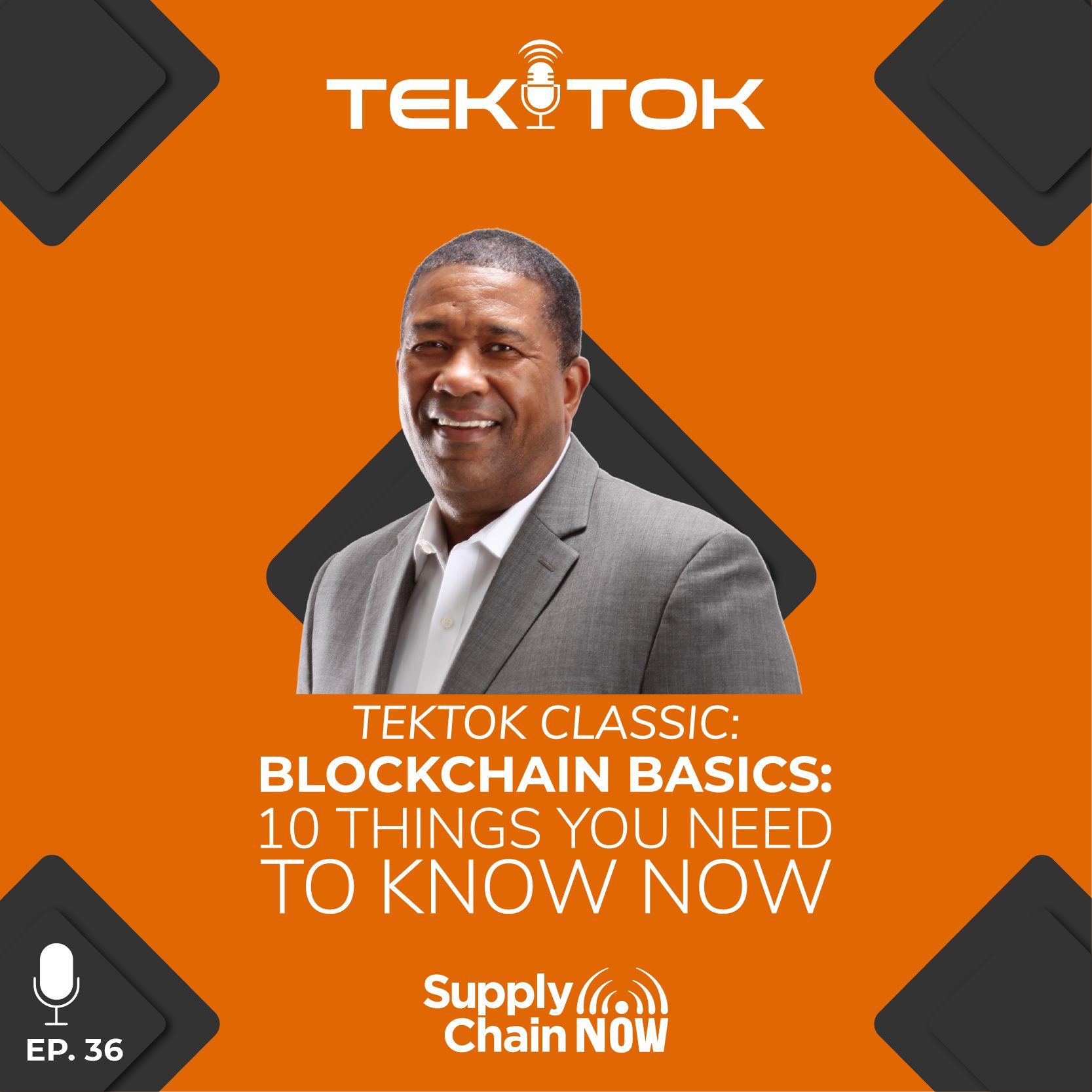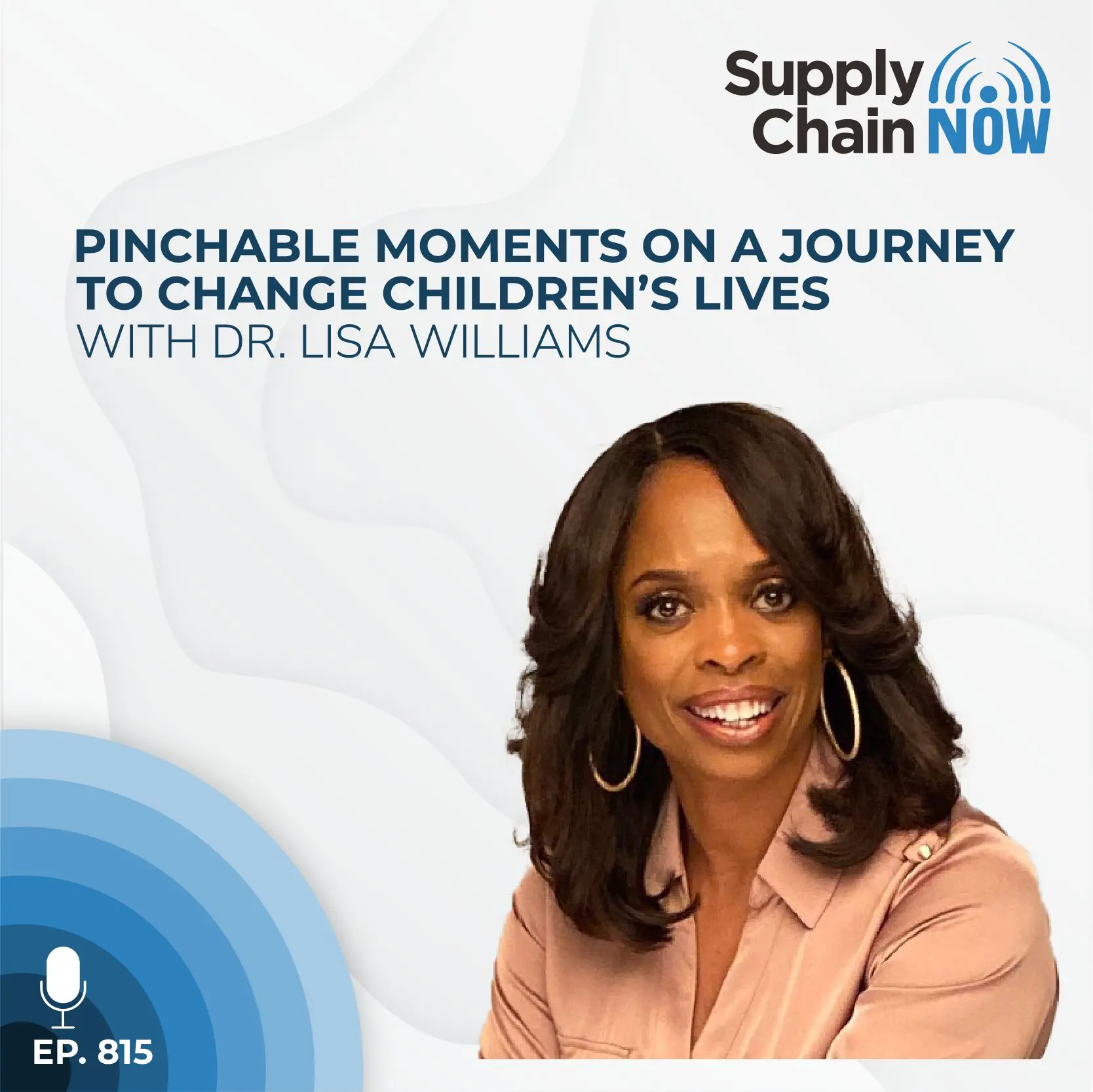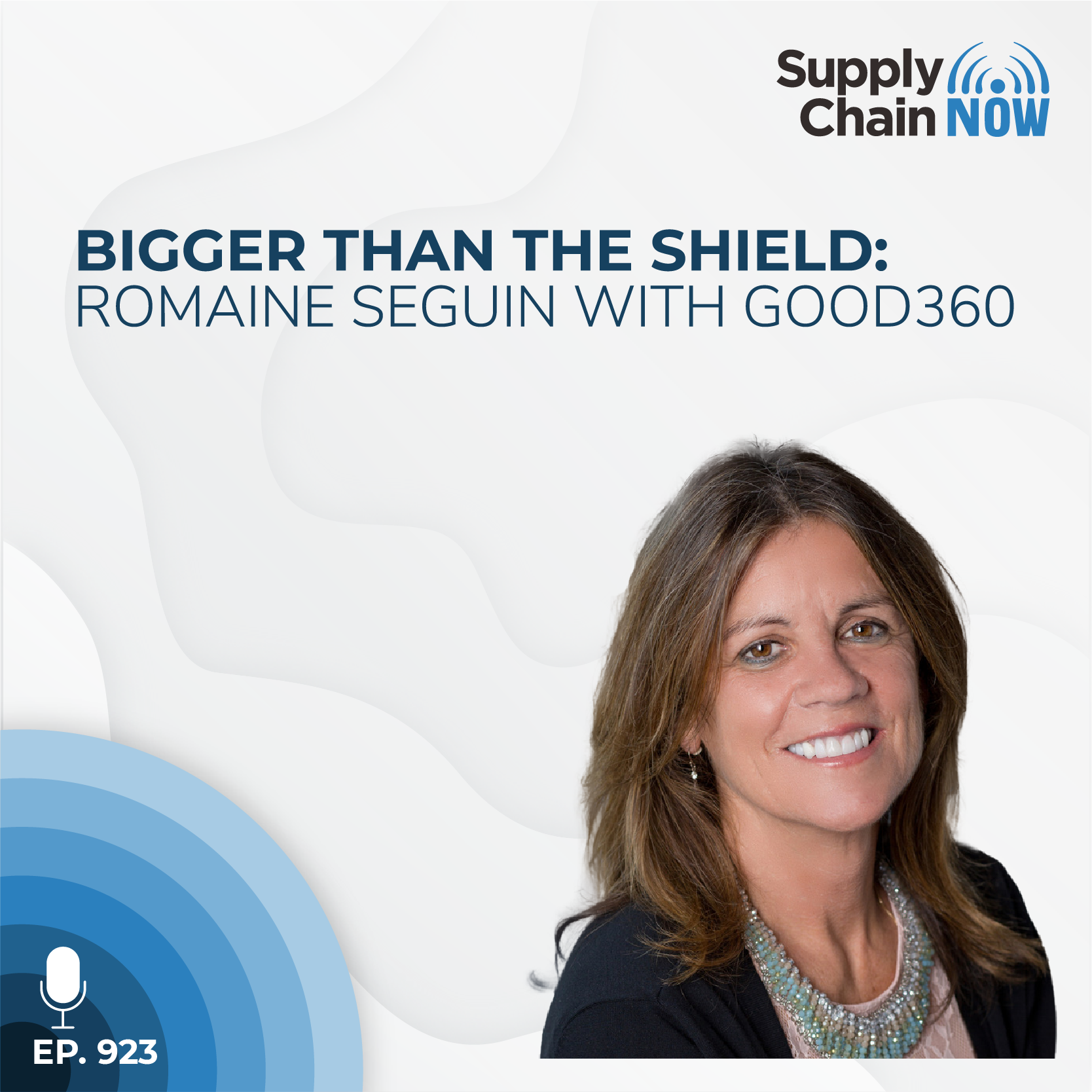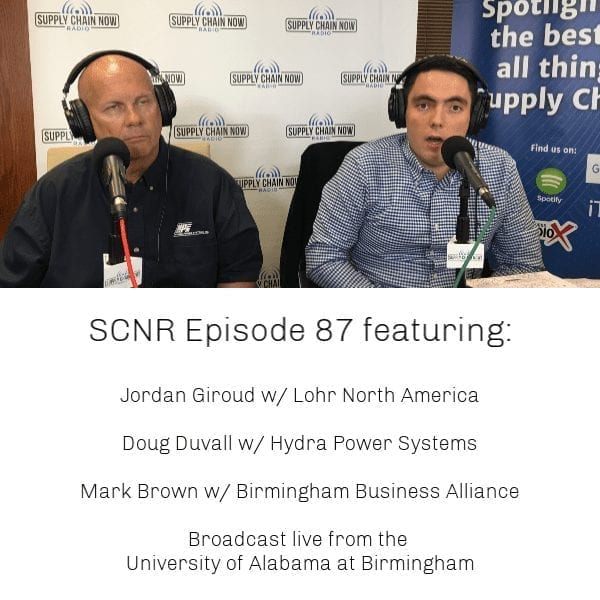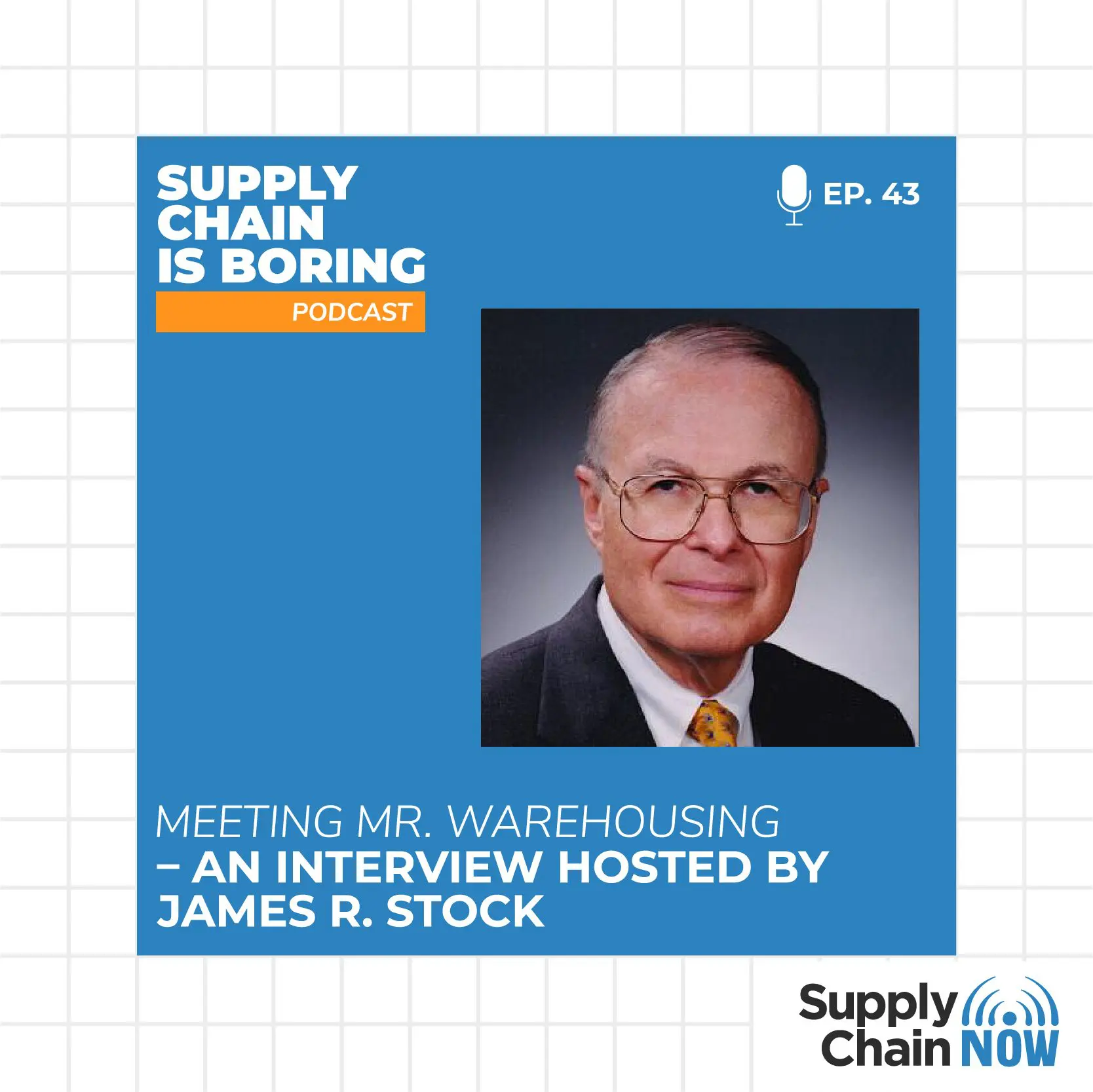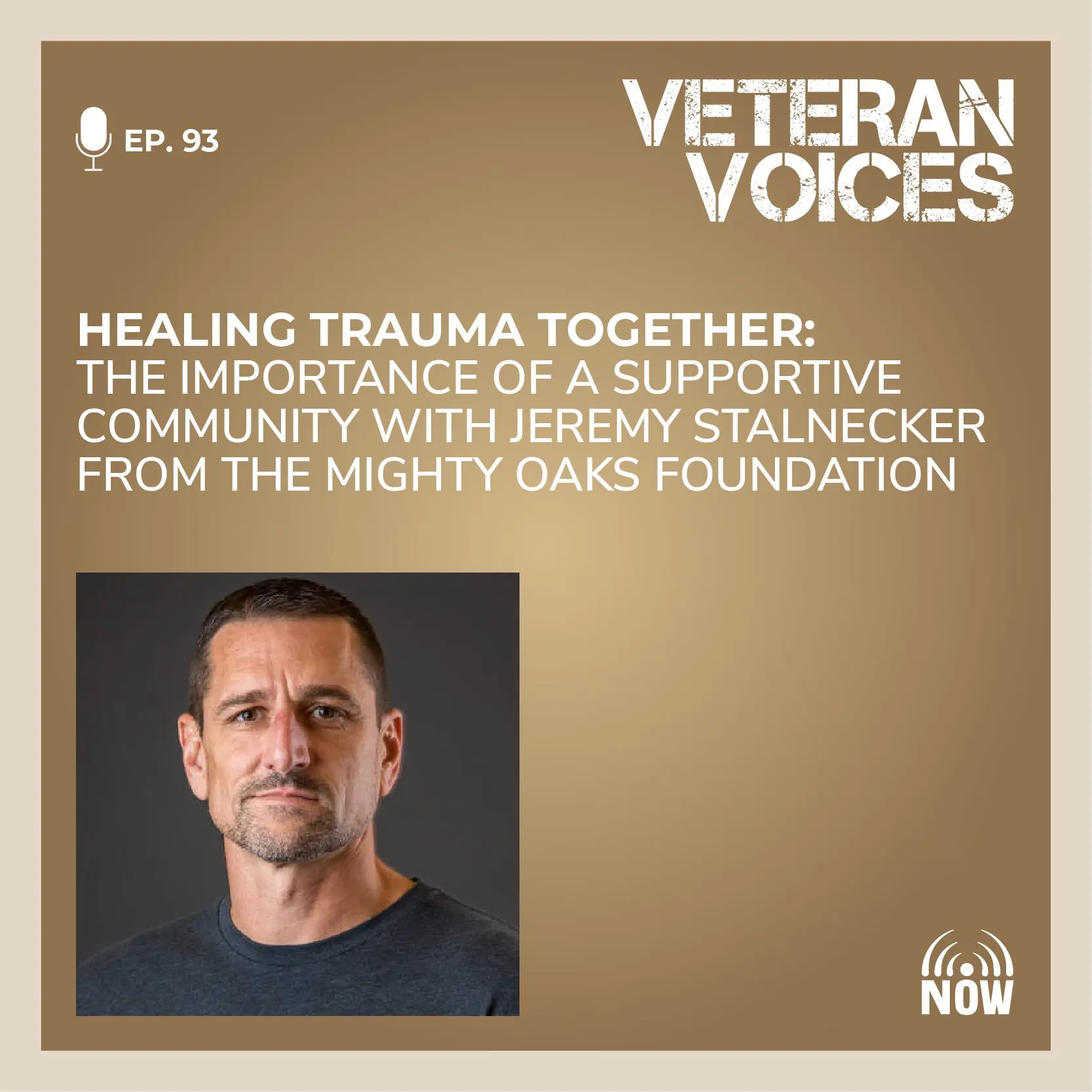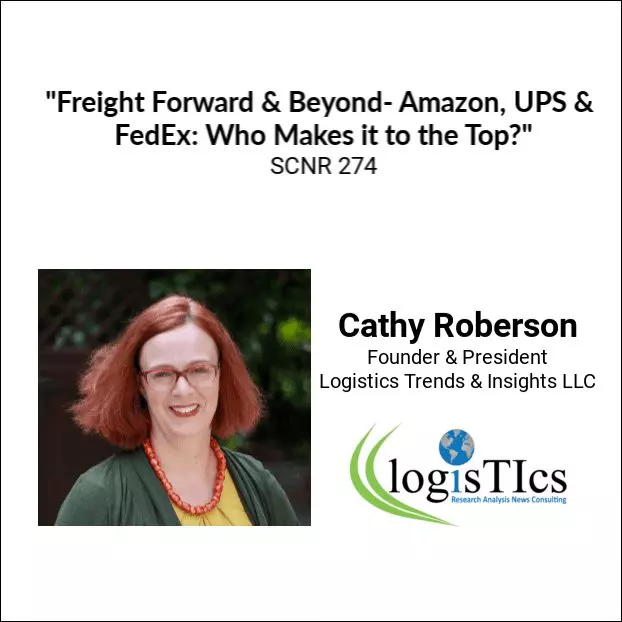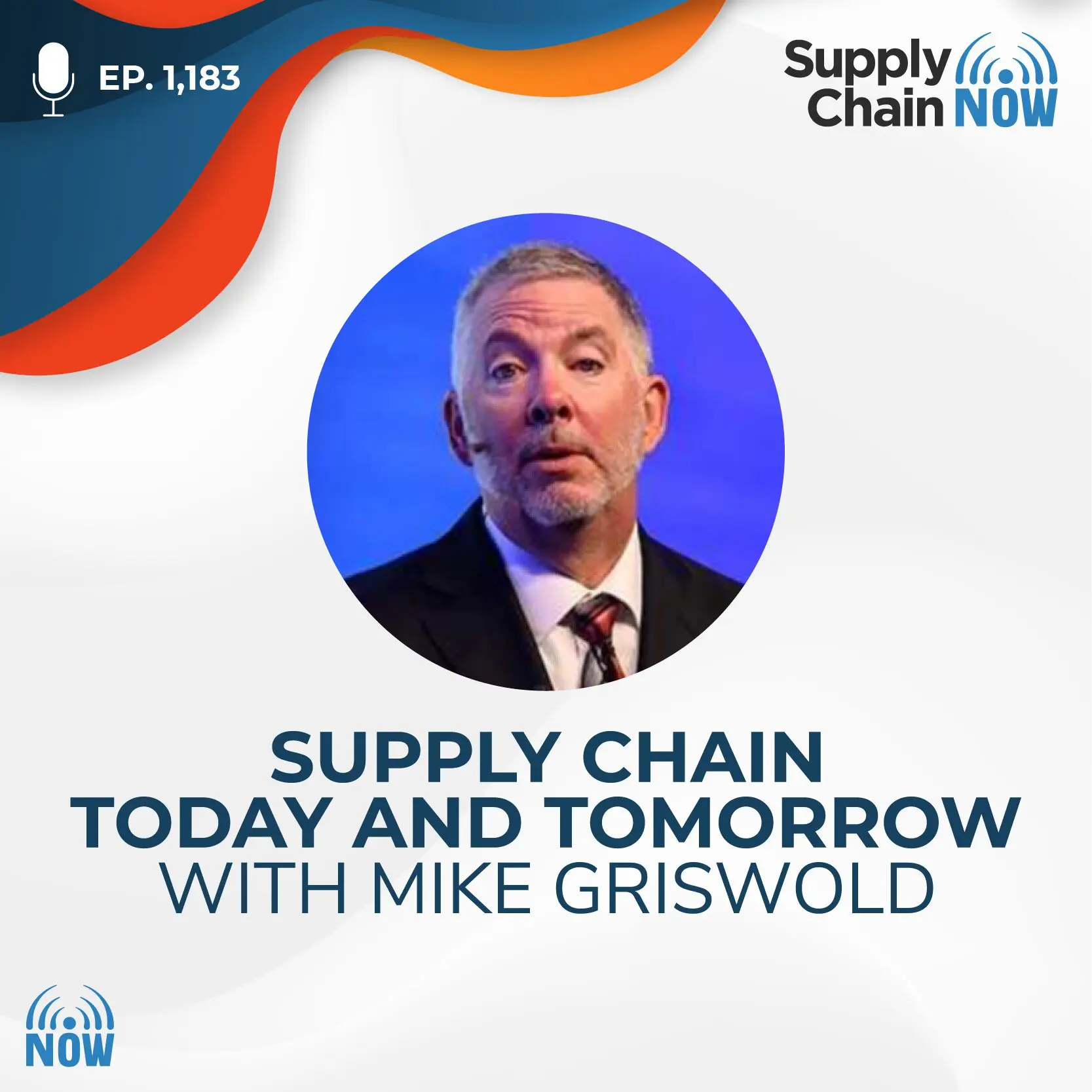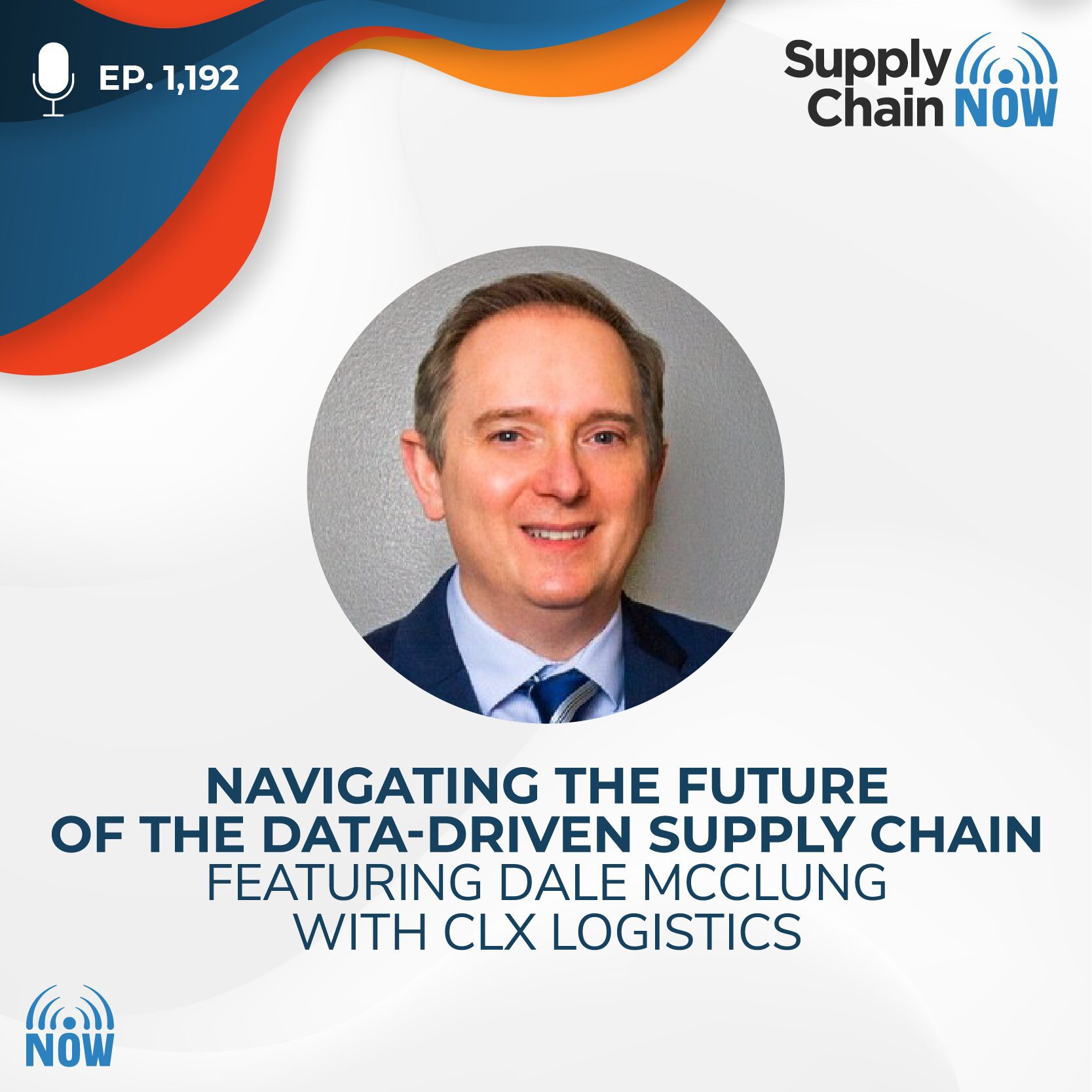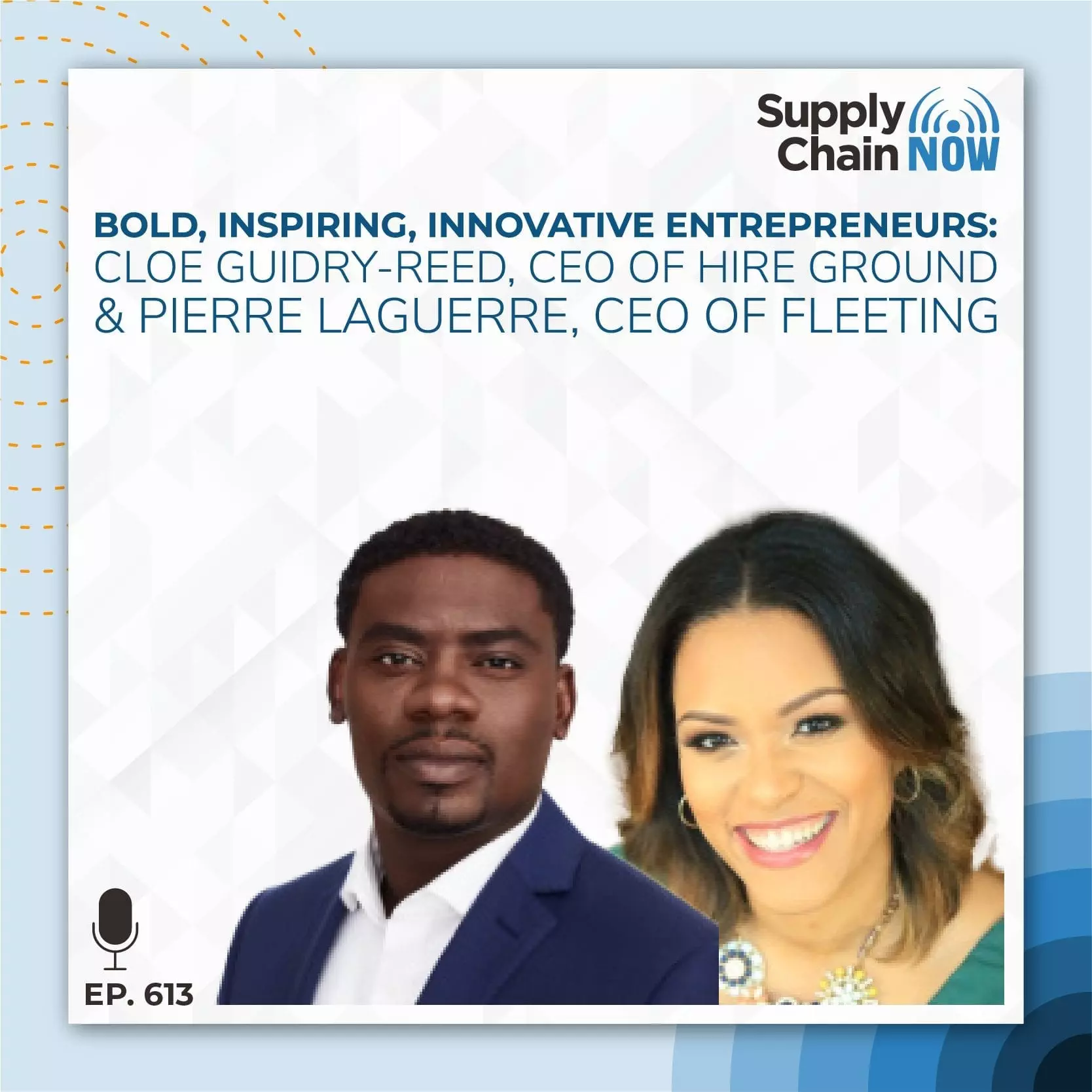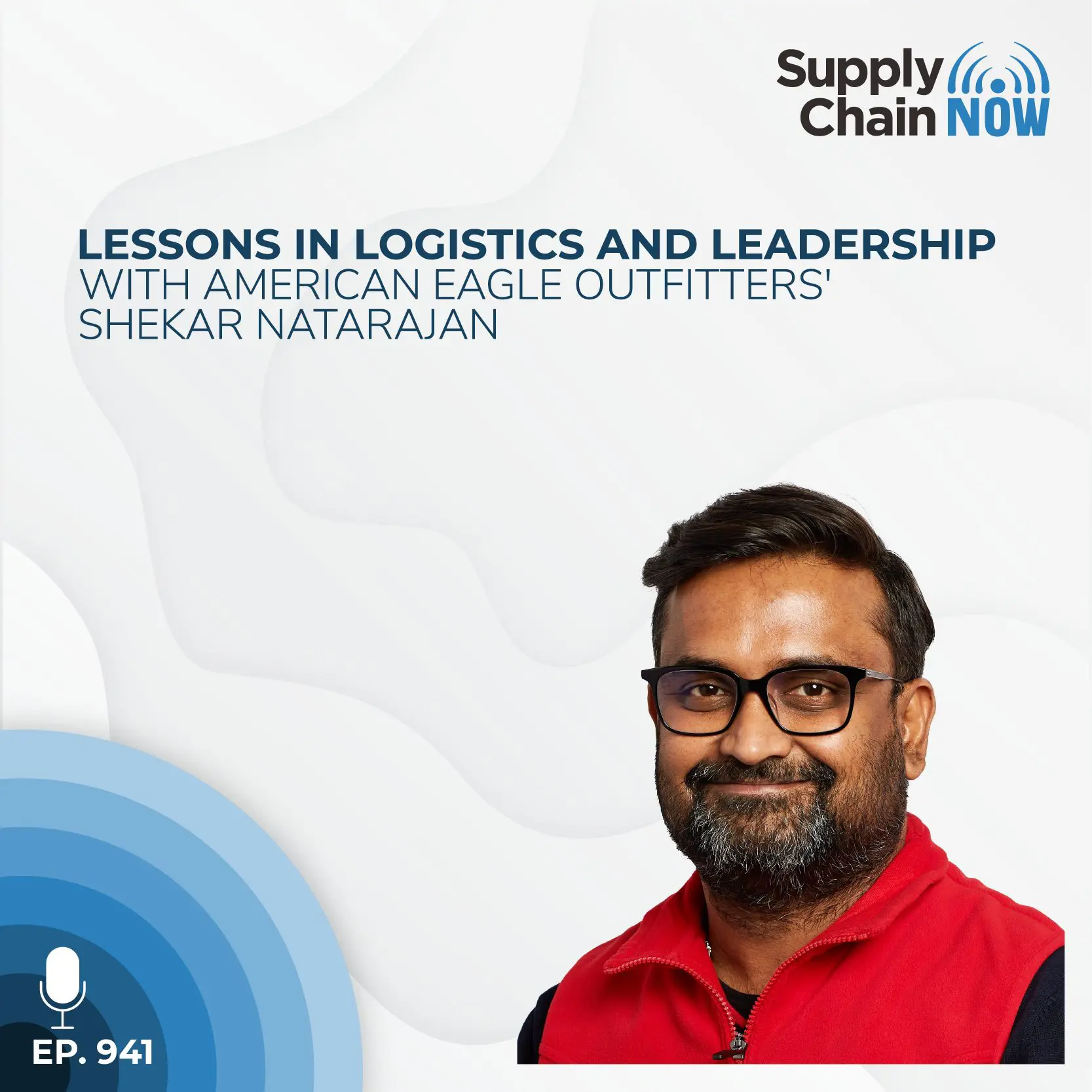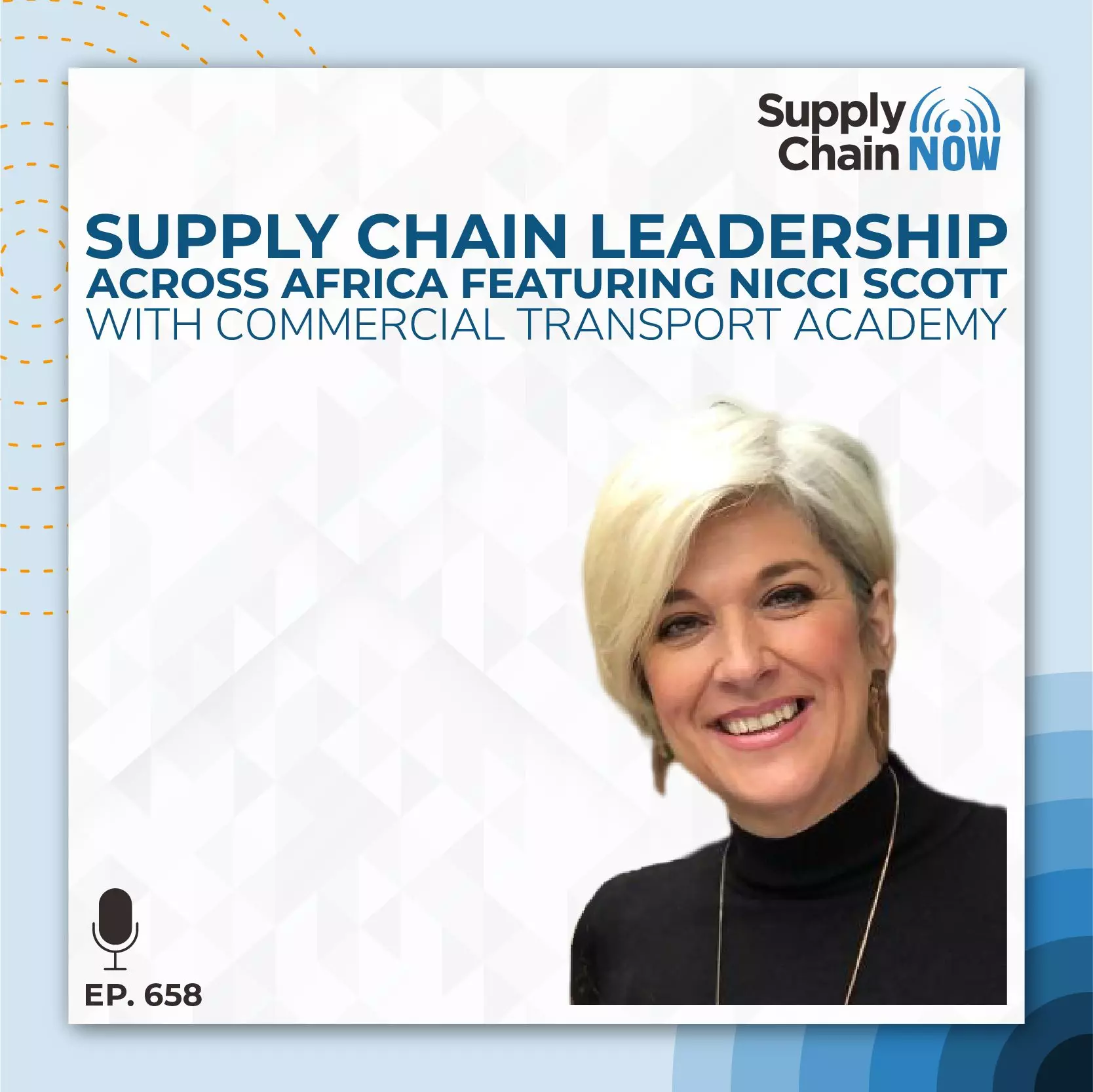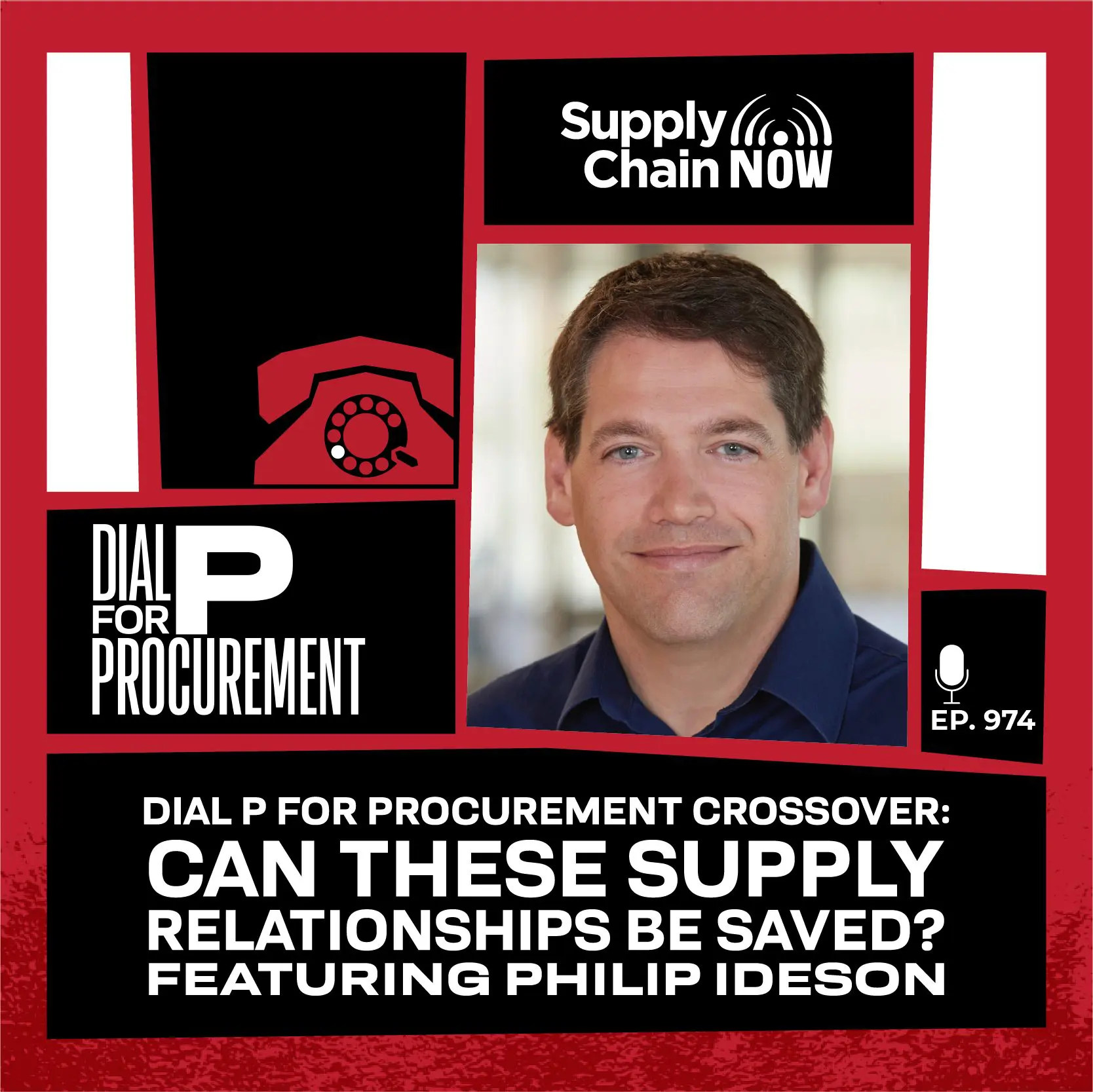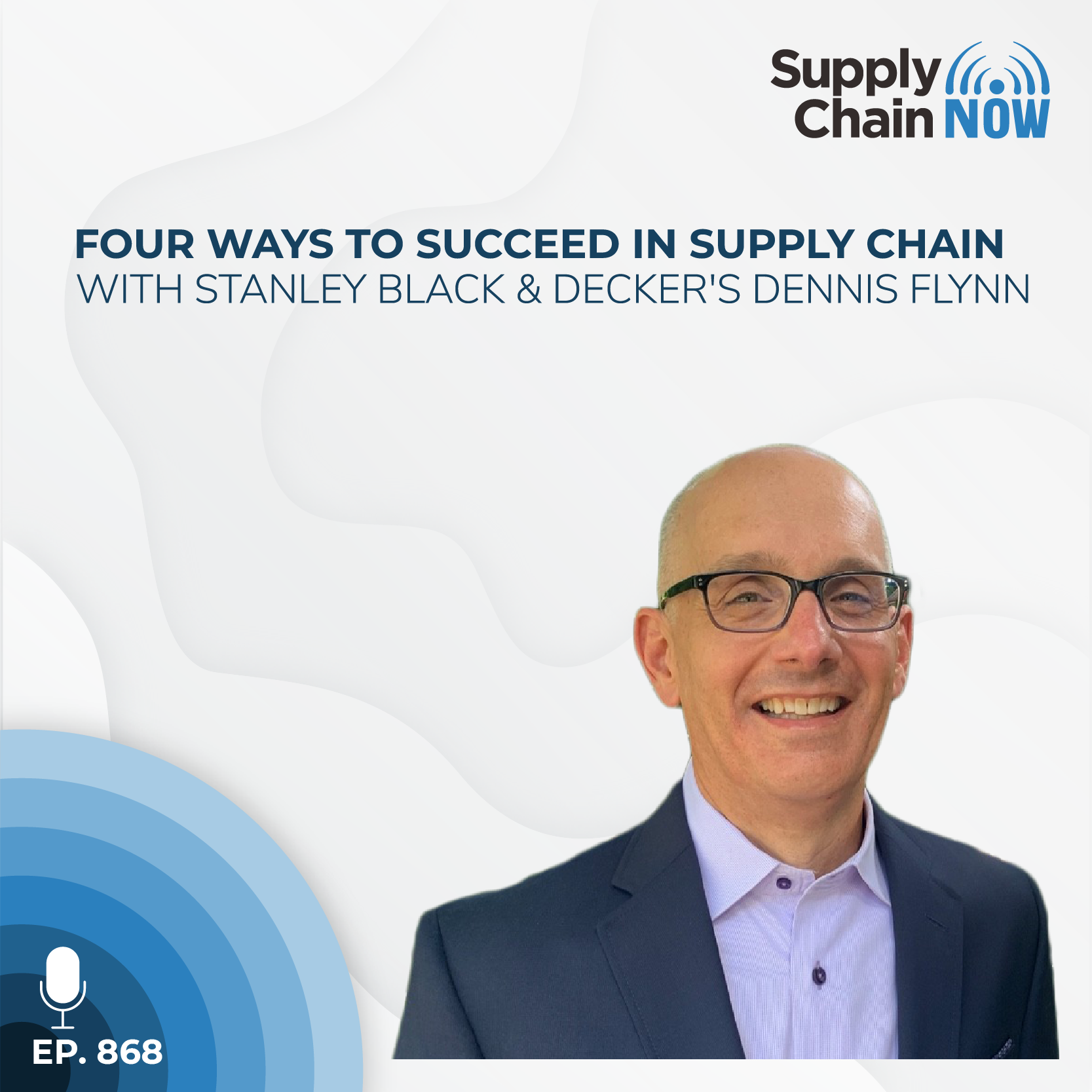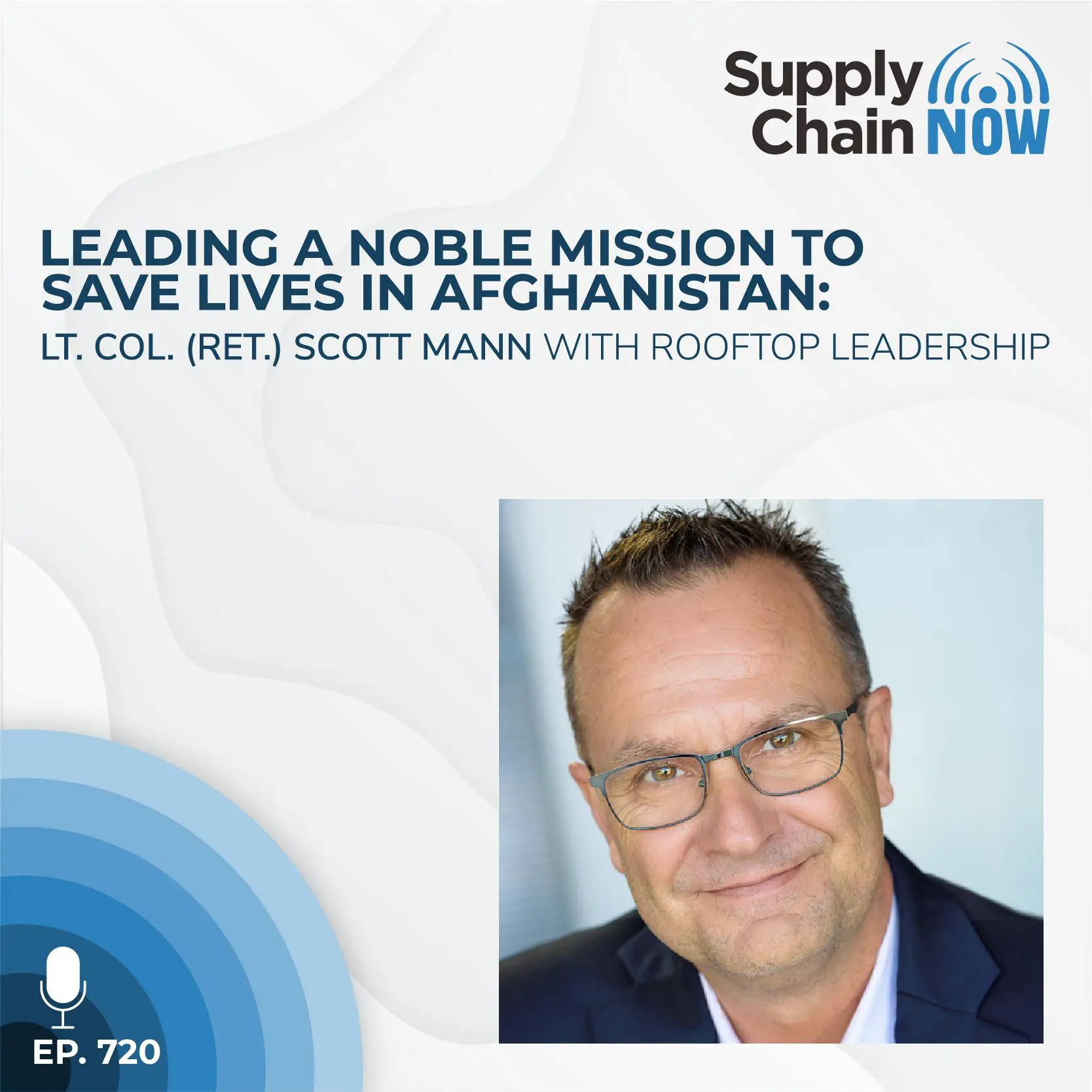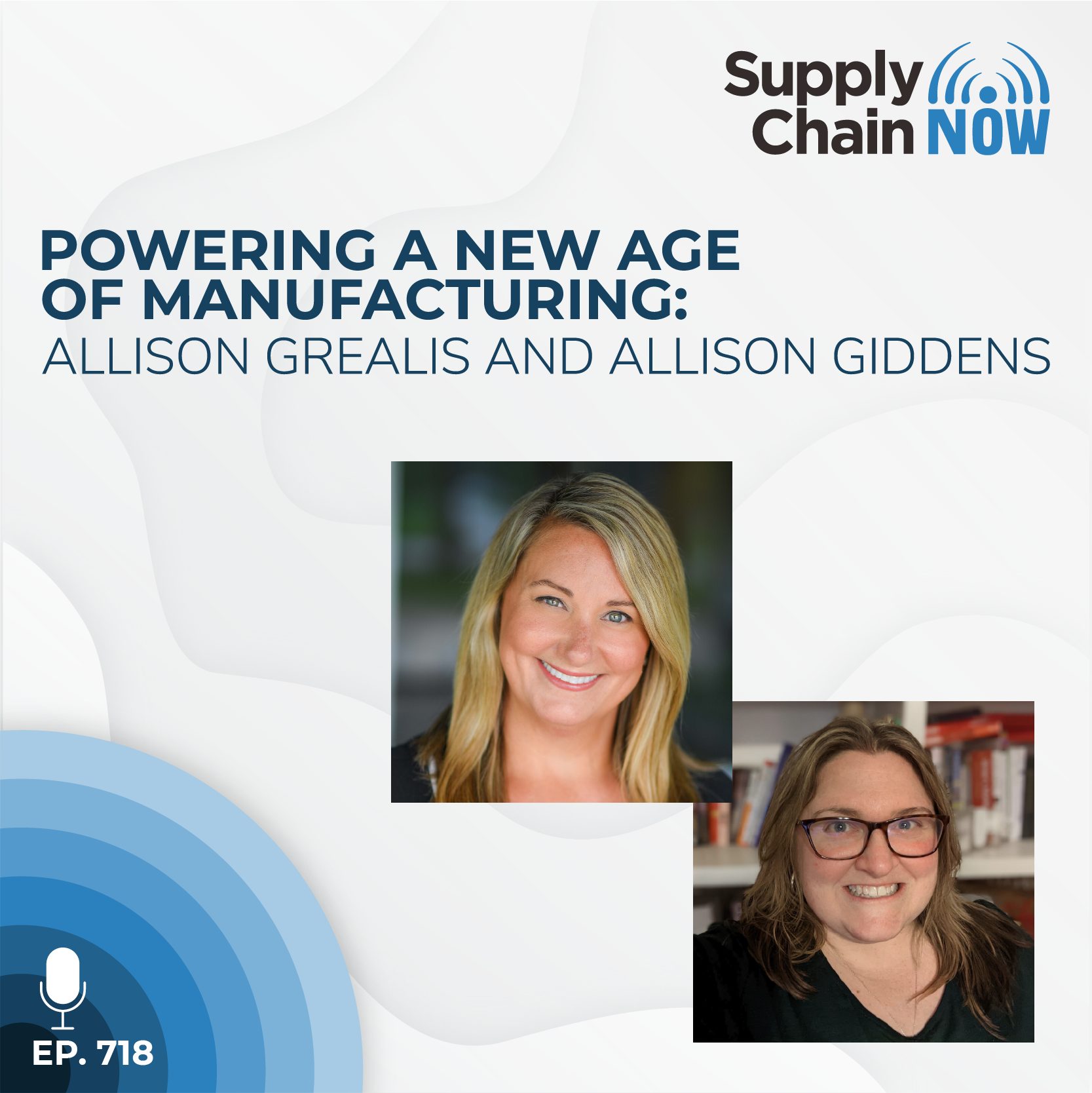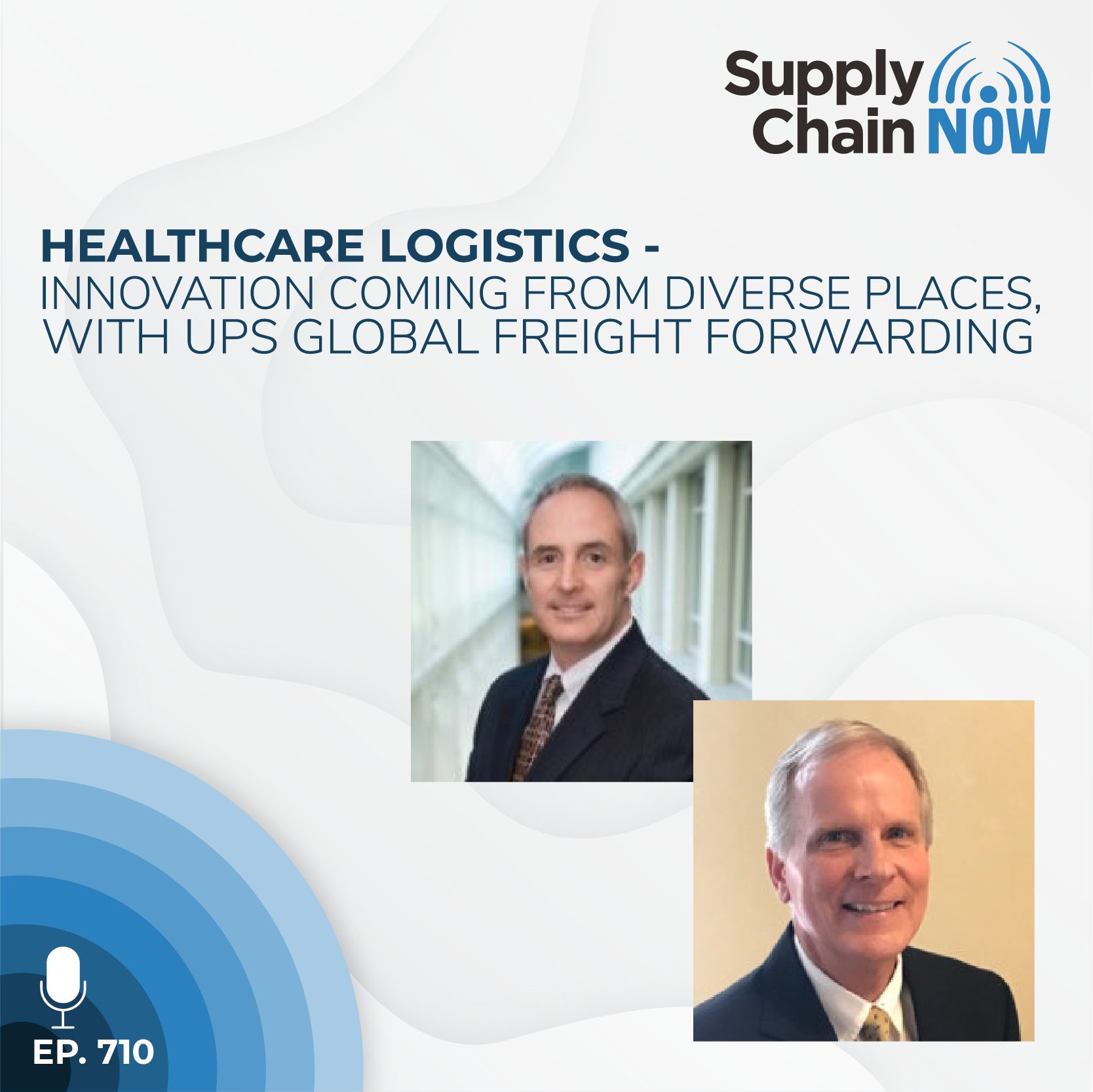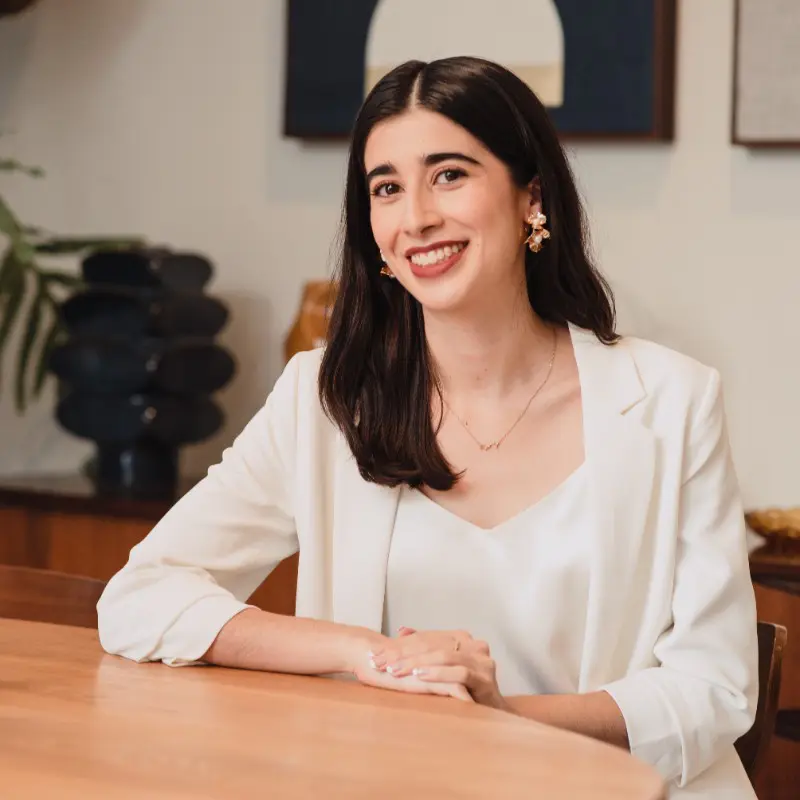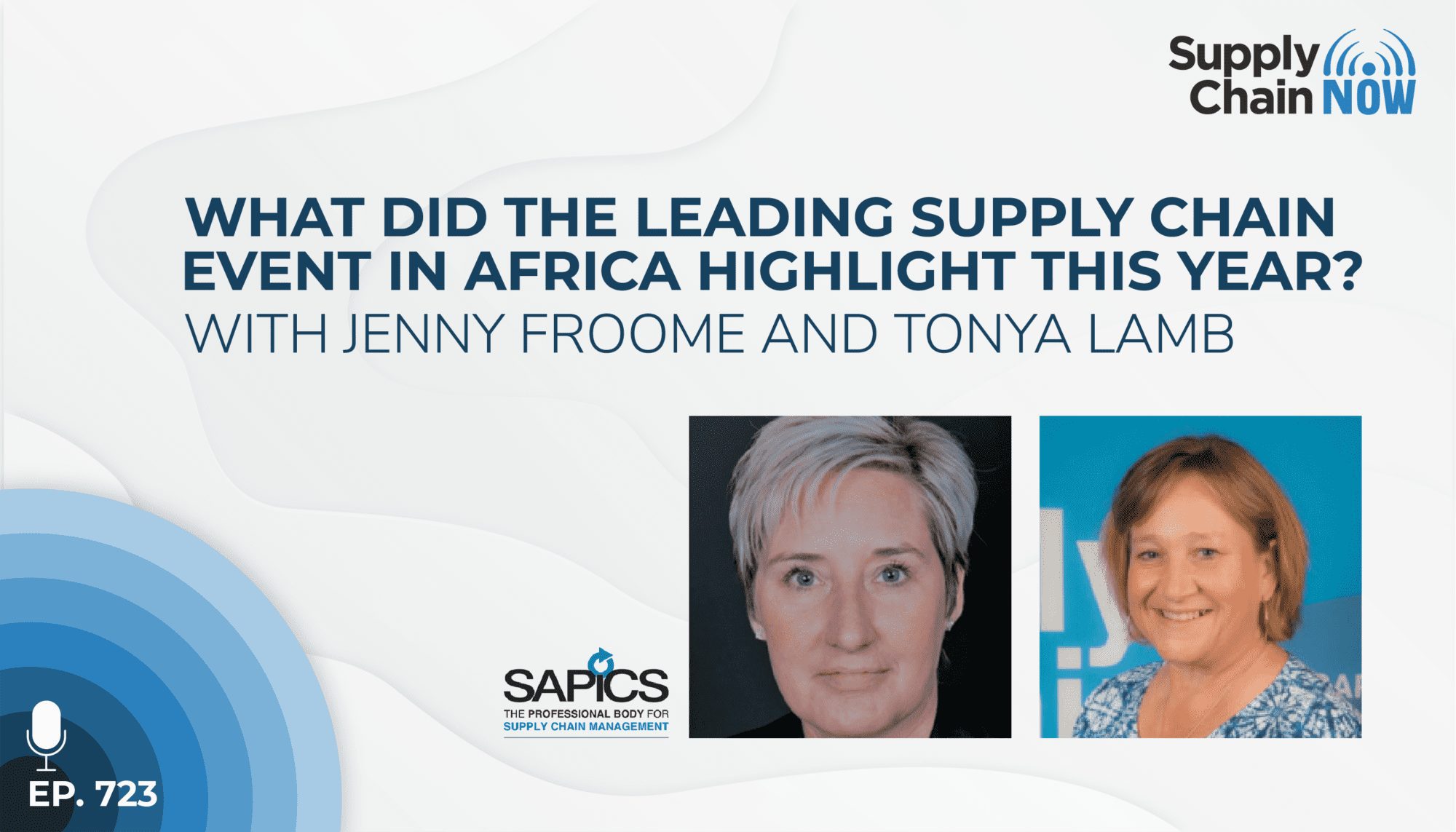
If I look at our situation in South Africa, we had COVID, then rioting, then the cyber-attack. Just as soon as you start to get some sort of stability, if you can call it that, then the next one hits. So, hats off to supply chain professionals.
- Tonya Lamb, Business Development Executive, SAPICS
Episode Summary
Supply chains may be global, but the people that work in them have just as much of a need to learn from and connect with their local community as they do to build longer distance relationships. For years, SAPICS has been the premier educational and networking event in South Africa, with a purposeful focus on production, inventory, materials management, purchasing, distribution and logistics.
Like many other industry events, this year’s SAPICS conference – the 43rd annual – was held virtually. For three days, they broadcast and virtually networked with professionals dedicated to advancing supply chain practices in South Africa. Jenny Froome is the COO at SAPICS and a good friend of Supply Chain Now. She worked side by side with Tonya Lamb, a Business Development Executive for SAPICS, to ensure that this year’s event would be a success.
In this episode, part of the Supply Chain Leadership series, Tonya and Jenny join hosts Scott Luton and Karin Bursa to talk about their key takeaways from this year’s SAPICS event:
• Why it is important for global supply chain professionals to learn about sustainability and the circular economy and to make the principles of both systemic
• The disjointed nature of our modern supply chains, and why that creates an alarming opening for threats to cybersecurity
• How necessity can help (or force) us to evolve in ways we never would have thought possible
Episode Transcript
Intro/Outro (00:03):
Welcome to supply chain. Now the voice of global supply chain supply chain now focuses on the best in the business for our worldwide audience, the people, the technologies, the best practices, and today’s critical issues. The challenges and opportunities stay tuned to hear from those making global business happen right here on supply chain now.
Scott Luton (00:31):
Hey, good afternoon, everybody. Scott Luton and Karin Bursa right here with you on supply chain now. Welcome to today’s live stream Karin. How are we doing?
Karin Bursa (00:40):
We are doing great. Have you been outside today? It is gorgeous. Yes,
Scott Luton (00:44):
I can. We haven’t been outside today. It’s been a long day. My kids are fed the birds, let the dogs out. So those normal excuses of getting out there and drink a bit of coffee. I’ve not. So it’s gorgeous here in the Metro Atlanta areas. All right.
Karin Bursa (00:56):
It is gorgeous. Yeah, I guess we’ve got a cool front coming through. So, um, the highs will be maybe in the high seventies today.
Scott Luton (01:04):
All right. So that’s your weather folks next up on the half hour is local business and news Karin. Great to have you back. It’s awesome to have the leader of the movers and shakers of supply chain right here with this Karin Bursa. So on that note, current, we’re also going to be welcoming some other movers and shakers or talking, continuing our supply chain leadership series, kind of across Africa with our friends at St. Picks. We’re getting an update on the event to attend an Africa, especially if you love supply chain, which is the St. Pics annual conference. So stay tuned for that. Karin is going to be great conversation on it.
Karin Bursa (01:42):
Yeah, it really will be. I’m looking forward to hearing what Jenny and Tanya have to say and share about the event and the attendees and just, um, you know, what the focus is in that region, because I’m sure we can, uh, we can get some new insights as well. Um, with so many upcoming events here in, um, in north America,
Scott Luton (02:00):
Undoubtedly tons of, of thought leadership and innovation and new ideas and new things that are just popping up across Africa have been for years. And it’s always neat to kind of put our finger back on the pulse here with Jenny and our new friend, Tanya lamb. So more on that in just a minute, but Hey Karin, before we say hello to everybody, let’s share a couple of program notes. Are you game? Sure, sure. All right. So before, well, before I share these events, so Karin TekTok, digital supply chain podcast, just blowing up here lately. What is, tell us about the latest episode.
Karin Bursa (02:35):
So the latest episode that just published on Tuesday was an interview with, um, Ben cubit and Matt Harding, uh, two senior vice presidents from Transplace and Scott. This is one that, that you were involved in as well, but we took a look at the third quarter logistics and transportation market outlook, lots of really good information that I know our audience will want to download that report, but listen into the podcast as well, because we get to take a little trip behind the scenes and, uh, and get some new insights from both Ben and Matt
Scott Luton (03:10):
Agreed. And it was a fun conversation. You’re going to leave there. Not only hopefully with a couple of chuckles, but some new ways of looking at things, especially when it comes to in particular data, in all things supply chain, but certainly transportation and freight. So excellent episode Karin. Yeah. Yep. So moving right along. So y’all check out tech talk wherever you get your podcast from be sure to subscribe. So you don’t miss a single thing. Let’s talk about a kind of hybrid events, hybrid events and virtual events. So of course the next one on our docket here, supply chain. Now we’re serving as the virtual host of the supply chain insights global summit, at least the digital feed and is jam packed of, of talking about movers and shakers, of course, hosted emceed. The mayor of the event is Laura sincerely the one and only, and Korean. I know you’re going to be spending some time with Greg and I at the event, along with Kevin L. Jackson and Kelly Barner, what are you most excited about?
Karin Bursa (04:03):
Yeah, I’m really looking forward to it. Um, I’ve I love this format. I like the fact that, um, the supply chain now has been involved in putting really the virtual experience together. And, um, I’ve got to tell you, I’ve been to the supply chain insights conference, maybe eight out of eight times that it’s been held and you will learn something you are guaranteed to pick up on some new trends, some new research and get a little creative insight as well.
Scott Luton (04:31):
Yep. Agreed. So check that out. That’s going to be starting the day after labor day, September 7th, running through the night, there’s still time to register supply chain insights, global summit.com. The link is also in the show notes. Y’all come on out. It’s going to be a rock and roll time as per, as, as how Lora Cecere has.
Karin Bursa (04:47):
It has. It has, it should be interesting. Um, and she’s, she’s put a lot of thought into making it as interactive as possible for the folks that are in person, as well as those that are able to participate in the virtual format.
Scott Luton (05:00):
That is right. Interactive is, uh, certainly going to be one of the watch words of the event, right? Just like our live streams. And as we see the comments pouring in, we look forward to chatting with each of y’all. Let’s talk about, uh, an event taking place on September 14th, uh, with our friends at OpenText, their annual connections summit go beyond disruption. They say it’s produced by CEOs monster by OpenText. And of course, we look forward to being involved in one of the sessions and folks is free to attend. So y’all check it out. We’ve got the link in the show notes, Karin that is priced ready to sell, right? That
Karin Bursa (05:33):
Is price. Ready to sound? No excuses just carve out some time.
Scott Luton (05:38):
That’s right. Also October 5th, we’ve got a really neat webinar. We’re doing focus on the state of the supply chain and a lot of data, uh, research that, uh, bear our friends over at verus and have been doing here lately, pulling together the data. And then they’re going to be reporting out some key aspects, focused on priorities for building real resiliency, not the cliche stuff, but real resiliency in your supply network. So Karin looking forward to that on the fifth, the link to join up is in the show notes. And then finally, folks, if this isn’t on your calendar is gotta be our 2021 supply chain procurement awards, it’s free to attend. There’s a small short charge on for nominations, but all the nominations fees are going to a nonprofit called hope for justice, which is focused on eradicating global slavery. So check it out. And of course, sponsorship options are open, but check it out. Supply chain, procurement awards.com Karin. There’s always Tom, always Thomas celebrate good news, right?
Karin Bursa (06:38):
It’s always time to celebrate good news. And, and, uh, I love, um, how these awards have come together. I want to encourage everybody to register for it, but Hey, look at nominating a supply chain that you admire in the marketplace, um, or have learned in this past year to two years, um, or somebody that you think just shows real leadership. There’s lots of categories to, uh, to nominate some of the innovators, some of the movers and shakers
Scott Luton (07:06):
Excellent point. And, you know, we worked really hard to make it, to come up with some creative categories. So y’all check it out. We’ve already, we’re nominations have already started to pour in and we’ve got one heck of an esteemed guest judge panel to rubber stamp and ensure we’re choosing the best of the best
Karin Bursa (07:22):
Stamp, not rubber stamp, but to actually evaluate and select. Let me just,
Scott Luton (07:30):
Let me spit that out. I didn’t say rubber stamp. Uh, there’s going to be some hard hardcore scrutiny of all the nominations. So thank you, Karin. Okay. Always, always an adventure. Let’s say hello to a few folks before we bring on Jenny and Tonya for a great conversation here, David is back with us. It works up north of the border in Canada when he’s not off-roading, he’s doing a lot of supply chain and procurement and manufacturing work. So David, great to see here. Obara tuned in via LinkedIn from Ontario as well. So of our great to have you here, [inaudible] tuned in from Bangladesh via LinkedIn, looking forward to your takes on some things we’re talking about here today. Karin. So she’ll is back with us via LinkedIn. Have you, uh, have you ever chatted with Sushil?
Karin Bursa (08:17):
Yes. I think I’ve had the opportunity on a couple of live streams where, where he’s joined in and contributed to some of the conversation.
Scott Luton (08:24):
All right. So Sushil, you’ve set the standard. We’re expecting a lot of hot takes here today. Of course, we can’t have the last room in these days where that our dear friend Mohib in the air capital of the world, uh, Wichita, he says, uh, I’m bringing my party chips and dips. Karin is here. How about that current?
Karin Bursa (08:42):
Oh, right. I’ve been keeping up with you on, uh, on LinkedIn lately. You have been a busy, busy, busy man. So, um, congratulations on all your recent accomplishments. Very impressive.
Scott Luton (08:54):
Absolutely. And you know, we’re going to be featuring some students from Wichita state university where he is a professor at and doing some big things in the months ahead. So we’ll have to re circle back on that. Let’s see Hannah Tran is here with us via LinkedIn. Great to see, uh, Hannah, uh, Cindy Lee from Johannesburg, maybe one of our newest friends and I bet friends with Jenny and Tonya, so great to see you, Cindy Lee. Okay. And welcome everybody. No, we couldn’t hit everybody. But welcome. Welcome. Great to have you here today. So with no further ado, Karin, are we ready
Karin Bursa (09:24):
To bring it back? We’re ready. Let’s bring them in. They’ve got a lot to share. I think
Scott Luton (09:29):
Let’s do it. Jenny. We’re going to be welcoming in our dear friends. Jenny Froome COO at St. Pics and her colleague Tonya Lamb business development executive. Also with St. Pick’s great to have our dear friends from safe picks with us. So Jenny and Tanya. Welcome. Thank you. Thank you. All right. So Karin, Jenny and Tanya, we’re going to get into the heavy hitting topics of the day first. Now everyone is listening to one of our shows. No, that we might like to eat just a little bit, right? So September is believe it or not national chicken month here in the states, at least a little factoid, Georgia, I believe is still the number one, the state of Georgia, the number one, uh, poultry exporter in the U S we got chicken all over the place. And even when chicken goes high prices because of the proximity can stay fairly stable here in Georgia.
Scott Luton (10:20):
So with all that said, of course, anytime we’re talking chicken Karin, my mind goes to chicken wings, right? So I think that way, but you know what? I don’t want y’all to view chicken and poultry through my lens. I want to take those blinders off. I want to ask each of y’all all three of you, your favorite chicken dish to start. And folks, if you’re in the comments won’t hear from you, tell us about your favorite chicken dishes. So Tonya, you’re new to our family here, but now you’re a deer, a second cousin now. So you’re in the family, whether you like it or not. Connie, what is your favorite chicken dish? Well, you know, I thought I would offend her by not asking about lamb, anyone, anyone that I’m sure she’s only heard that comment only about a thousand times, Tonya talking poultry. What’s your favorite dish? I
Tonya Lamb (11:19):
Am remembered for my, um, chicken schnitzel and cheese sauce. Oh, one year at the safe X annual conference at sun city. We had finished up and I was tired of eating all the fancy meals and I was just eventually pleased. Can I just get a chicken schnitzel and cheese sauce please? And Jenny will always remember me for that. So I love my chicken, cheese, but cheese.
Scott Luton (11:45):
I love it. You’ve already made us hungry. All right. So Jenny, I’m gonna come to you next. Your favorite chicken dish,
Jenny Frome (11:51):
Thai green chicken.
Karin Bursa (11:55):
That sounds good. Tell me, I’ve never had a chicken schnitzel before, so I’ll have to, I’ll have to test that out, but just about anything with cheese on it works for me. So I’m good.
Scott Luton (12:09):
Yes. You definitely have us a cheese sauce for sure. So Karin, uh, so we, we’ve got a couple of dishes, your favorite chicken dish.
Karin Bursa (12:17):
Well, you know, I have a long list of chicken dishes, but I’m telling you what I’m thinking about for this weekend. Cause there’s a little college football going to happen is there’s going to be some chicken, Buffalo dip to be used, you know, just to keep things moving along while we watch shot UGA and Clemson the field,
Scott Luton (12:39):
Uh, I’m hoping that we might replicate this right here, but we’ll see, we’ll see. And you know, Buffalo chicken at any all, all forms is always delicious. I got to say Hattie B’s if you hadn’t had it. Of course. It’s one of the, you got, you got Prince’s hot chicken. I think it’s called in Nashville. And you got Hattie. B’s had it. Bees started to branch out. I got a gift card for my birthday and that’s going to have to be in our weekend. We’ll see. It’s hot, it’s hot chicken. And it is scrumptious. Um, by the way, David says chicken breasts stuffed with pheta and sun dried tomato on the barbecue, kind of on the healthier side. Mohib good evening, Jenny and Tonya, my new best friends from the supply chain, rich continent of South Africa. Love that. And Boise’s, uh, Moises from Angola is here as well.
Scott Luton (13:22):
Welcome tuned in via LinkedIn. Great to see you. Okay. Let’s see here. So one more fun question. Before we get into some of the key takeaways from the home one, um, event that was the safe extended conference. We had a blast. September is also better breakfast month. Now that is not one of my favorite celebrations as it looks to really push it towards healthy choices. We love our bacon, eggs and grits around here, perhaps, but let’s let’s whether it’s healthy or whether it’s not so healthy, let’s get your favorite thing to have for breakfast. And I’m going to keep the same order. Tonya, you go first. Okay.
Tonya Lamb (13:56):
It would have to be flat jacks with syrup and heaps and heaps of fresh cream. Absolutely. Without a doubt,
Scott Luton (14:05):
Tanya man, you’re fitting right in kindred spirit, Jenny
Jenny Frome (14:10):
Eggs Benedict. Mm.
Scott Luton (14:14):
I love that too. Lots of hot sauce. Are you hot sauce? Hot sauce. Okay. Um, and then Karin,
Karin Bursa (14:21):
So you hadn’t had eggs, bacon and grits, but I would probably add a little fresh fruit with that just to kind of balance out.
Scott Luton (14:27):
Okay, good, good, good deal. All right. Let’s see. Uh, Mohib going back to chicken. Thai green chicken curries got two thumbs up there. Uh, I love that. Um, Don, this says, oh my gosh, all the foods again again, uh, Hey Rhonda. It is, uh, sometimes some days it feels better just to focus on food dogs and maybe a few adult beverages, right. Taking a step step away from everything else going on. But Hey, I appreciate y’all, um, playing along with us here in a lightning round on today’s live stream. So Karin, I guess we’ve got to put our adult britches on and move forward. We were talking about next.
Karin Bursa (15:04):
Yeah. Let’s, let’s talk about the topic at hand here. And I am really interested to hear from Tonya and Jenny on the topic of the south African or the Africa based say fix of that, that just happened. The annual event, um, would love to get your insights and understand just how it performed. What kind of insights you got from the event. So Jenny, let’s start with you give us an overview of what took place.
Jenny Frome (15:32):
Thank you. And thanks very much for this opportunity. You know, we, we Tonya and I love to talk. We love to talk supply chain. We love to talk, say pics and say, this is ticking all our boxes. And to be able to do it together is also really cool. This is actually very scarily, the 25th anniversary event for me. So, and for Tonya actually, because we both started working on the sacred X conference at the same time, many years ago, we are both actually only 21 started doing it when we were, when we were very young. Um, and so 25 years of, of, of doing this event and to end up with it for the second year, virtually nobody in, in my wildest dreams could ever have told me that that was going to happen. That was the 43rd year that the conference has has taken place.
Jenny Frome (16:28):
And again, you know, we’ve been all over South Africa with it, but to be virtual, there are pros and there are cons and the pros are that people like a movie from Wichita can actually join us and that Scott and Greg could join us and not have to fly for hundreds and thousands of miles and hours and dollars and all the rest of it. So that was a, that was a big, a big advantage to, to the day to the event, which is three days, which was in retrospect, just saying, just saying three days was too much
Karin Bursa (17:09):
Work to accomplish three days, two months when you
Jenny Frome (17:12):
Spend three days looking at yourself, it’s,
Scott Luton (17:18):
It’s not good. Well, Hey, before Tonya weighs in, let, let me just say, as you know, we’re all content creators here and I was able to catch a lot of the conference and, you know, the sense of community and a sense of relationships, even though it was on a digital side because of, you know, the, the constraints we have, the content, um, the, uh, the production itself. I mean, Jenny, you and Tonya and the rest of the team should put on a clinic of how to do that. Especially, you know, given just everything it took to pull it off, very done. And we mean it, we are really pleased to play a small role in it. Um, just, I love to see Mohib enthusiasm after each day. He shared his key takeaways when folks are doing stuff like that, that means you you’ve hit a note. So excellent job. And, and, uh, we’re big genuine fans. Okay. All right. So Karin, I didn’t mean to hijack inject too much. We’re still talking key takeaways, right?
Karin Bursa (18:10):
Yeah. Well, just actually getting the overview. So, um, aside from having to stare at yourself for three days telling you that, what, um, what, what was a home run for you for the event?
Tonya Lamb (18:21):
I think when the three days were over, that was definitely a home run for me. I think we’ve, we said at the end of each day going, we’ve got another two days or we’ve got another day. Um, and, and our hands just tell you that it’s far more tiring than, than a physical event. In fact, I was actually sitting here thinking, I wish my feet hurt because you know, this virtual world is you you’re right. You’re sitting there staring at yourself on a screen. Toilet breaks are few and far between. And if you want to coffee, if you’ve got someone that can bring it for you, you’re in luck because otherwise you’re not getting it frequently. So, so it is hard work. It’s really, really hard work. And I think because it’s virtual, um, there’s no, you can’t really cover up when a book’s happens when it happens, it pops up on the screen.
Tonya Lamb (19:06):
Um, whereas when you’re in, you know, when you’re in the physical environment, you can kind of cover it up a little bit better, but I’m not blowing our own horn here, but because we so good at it. So well, so, um, it was great. Um, we’ve had really good feedback and I think, you know, despite the fact that it’s online, it was some really good networking connecting that was going on amongst people, you know, even in that, even in that home. So we had some fun things as well, like a cartoon artist. So people could have a lovely picture of themselves, have a few wrinkles taken out and they look fabulous. So, you know, there were some, some really good upsides to it as well.
Scott Luton (19:46):
Love it. We’ve got a really quick, so, oh, Peter bullae all night and all day has arrived. Uh, so that this is acknowledged him. He sent us a picture, he played some golf the other day and they all wore the brightest Easter colors. It looked like they were, there were for Easter eggs out there, but they were playing really well. And Peter looked forward to your, your perspective here today. Okay. Karin, um, full of interjections there. I’m sorry, it’s been one of those weeks, but, uh, where we move it moving to next? Yeah. Well,
Karin Bursa (20:15):
I’d love to know Jenny, some of the topics that were just hot topics, where people were gathering to see those presentations or engage in those conversations, give us a sense of what, what some of those hot topics were that were covered at the safe exhibit. And immediately
Jenny Frome (20:33):
The first one that comes to mind is sustainability and combined with the, the whole circular economy. Um, the days were very well attended event, um, sessions and quite very varied, well, you know, the same topic, but approaching things and assessed slightly differently, different people with different opinions. We had international people talking about it. We had south Africans talking about it, consultants and practitioners. So, um, a lot, a lot to take away on that topic. And it just shows how important in front of mind it is to so many people. And there’s, there’s somebody who keeps saying on social media. I can’t remember who it is, but keeps saying about how supply chain practitioners don’t start taking sustainability seriously. Then we do because everything revolves around the supply chain.
Karin Bursa (21:29):
Absolutely. And there’s so much that happens from a sustainability perspective that gets designed into a product. So it’s not just about the production of it and the movement and storage, and then, you know, recycling it, but to actually design with that in mind, I think there’s just a lot of opportunity for us on a global basis to, to drive overall sustainability from the very beginning. Um,
Tonya Lamb (21:55):
And th th the other thing would be transparency in the supply chain. So, and the use of block chain to be able to enable that both in, in, in manufacturing, but also in agriculture. Um, there were a couple of really great presentations focusing on the use of technology in agriculture, um, which, which is, I think an area that doesn’t get enough attention, and yet we all need farmers and agriculture. So it’s something that I think is my new hot, favorite topic.
Karin Bursa (22:28):
Absolutely. And obviously Jenny food is something that we all identify with here on some here now. So bringing it home
Jenny Frome (22:36):
For us, what’s in our food, you know, where does our food come from?
Karin Bursa (22:44):
Absolutely. Tonya. When, when, um, when you think about the conference, right, what was going on for the three days? Um, what a couple of highlights for you?
Tonya Lamb (22:53):
So one of the things that, that I really enjoyed was, um, the estimate E panel discussion, which I was fortunate to be part of. It’s one of the things that say because of identified as an area that we really need to, to provide support, because at the end of the day, the SMEs have the opportunity to create jobs and contributions to the GDP. So what do we need to do to help them and to grow them and to keep them sustainable? Um, so it was a really good discussion, um, with the panel and some ideas and thoughts about how we can add value, what changes we can make, what do we need to do differently to help them. So I think that was an important discussion because we really need to be pushing more localization and onshoring, um, and on the back of that, I just read today, one of our panelists, can I say the name of the company, or was it the fishy group here in South Africa, or the biggest reset of the opportunity, all their own apparel. So that’s hugely exciting in terms of, of South Africa where we’re going and creating jobs as well.
Karin Bursa (23:59):
Yeah. Yeah. I’m very familiar with the [inaudible] group and their various brands, right. That, uh, that they run and manufacturer and do design on. So that’s exciting.
Scott Luton (24:10):
It is, but, and that’s just scratching the tip of the proverbial iceberg of all the exciting and, and truly innovative things and thought leadership and leaders, uh, whether it’s South Africa or certainly across the African continent. And I love how Jenny, you know, just about every month, uh, you bring, uh, some new ideas and conversations to that end. Let’s uh, let’s, let’s pause for a second here. There’s um, folks are still talking food. I’ll tell you, we bring it up. Um, as Elias says, great to have you here as a new resident of Nashville, I should add coffee. Breakfast is great. I’ll take a yogurt or toast with mine. A great point. There we can all probably all relate Gregory’s with this via LinkedIn, uh, from the Caribbean Gregory, we call him the Shakespeare of supply chain. He very well-spoken, uh, almost melodical in terms of how he talks about supply chain.
Scott Luton (25:04):
Precious is tuned in again and precious. I know you’ve shared, you’ve joined before. Remind us where you’re from and she’s tuned in via LinkedIn. And David’s given a shout, I guess he’s having to start eating a little bit more healthy. So it’s usually it’s fruit bars called that’s it. And that just sounds that does not sound very appealing, but I bet it’s healthy, David, so thanks for sharing. Okay. So, so I know that we can’t, we can’t do it justice, you know, even if we talked for an hour about all the key takeaways from the conference, but before we kind of talk about what else is going on across the business landscape, Jenny, anything else you want to add from a key learnings? And by the way, we appreciate you keeping it real, you know, just like there’s, there’s hard and folks keeping some supply chains running, you know, what you are sharing about, you know, big virtual events, multi-day events that is a ton of work. And, and I think we’ve got to recognize all those folks that are behind the scenes that help make it happen. But anyway, topical topically though, anything else you want to add about, uh, the conversations, the presentations, like the community, you name it from
Jenny Frome (26:09):
The event, great presentation with these two guys from America. And that was on amplifying of the supply chain, which I really
Scott Luton (26:20):
Enjoying. Well, we enjoyed that too. Karin, Karin. I was almost able to talk two minutes out of the 60 minutes. Uh, I’m picking on you, Greg, if you’re tuning quite well, then yes. Yes. I’m just messing. We love Greg white around here. He, his own assignment doing some hardworking research on the coast. We’ll see if we can’t get a, um, a local update soon, continuing that local news theme here, Karin after you covered the weather on the top of the hour. Um, okay, so let’s move right along. I’m going to ask, all right,
Karin Bursa (26:59):
Before we go there. So Jenny Antonio, how many different sessions were there? I know you had hundreds and hundreds of participants. How many presentation sessions made up the conference over this three-day period of time?
Jenny Frome (27:14):
That’s a really good question. I’ll come back to you on that one. That is about, I’m saying it was about three times 8 24. So 24 times, I dunno, three.
Karin Bursa (27:26):
It was a lot. Wow. Is a lot. That’s a lot of content. Absolutely.
Tonya Lamb (27:30):
It was crazy much, but it was, it was good because we did in a way, we have the traditional cool for call for speakers, but then we’ve also invited people. And I think that people went a little bit crazy, inviting people and forgot about the people who had submitted for the course of speakers. So we ended up trying to include as many as we could, because there was just so much good stuff. And the, the, the diversity of the topics was such that the, you know, you know what it’s like supply chain management is an enormous subject. And to condense it down, even in three days, it’s very hard to do
Karin Bursa (28:10):
Well. I have a new appreciation more than 70 sessions over three days is a lot of preparation. And now I understand why Tonya, you were really happy when it was over, because you probably are holding your breath the whole time, just to make sure every one of those virtual sessions, you know, kicks off as planned. Something like that. Indeed.
Scott Luton (28:35):
Well, yeah. I saw the other day kind of belaboring the point here a bit. I couldn’t grab it, but it said, all I want to do is drink wine and pet my dog. And I bet y’all felt a lot of that after the end of that there’s three days. So, all right. So I’m going to share a couple of comments and then we’re going to keep driving. Cause I want to pull really all three of y’all on some, the other things going on across the industry right now as Leah, thank you for this comment, but I’ll tell you, look, it’s your little secret. When we get dry cleaned and we have a service that picks it up and then they bring it back two days later. Well, unfortunately the truck broke down and we’re about two weeks behind. So I have very limited selection. So this, this may, I appreciate your comments.
Scott Luton (29:15):
I’m surprised no one else gave me a ugly shirt award just yet, but you got to keep it real around here. I’ve got to follow Jenny and Tonya’s and Koreans, uh, approach. Peter says, Hey, that’s why I’m a big fan of pizza. All the food groups in one meal, we make our own at home using non-brand. I like that as the base and the best, easy way to make them speak in a non bread. There was a, there was a business opened up here in Atlanta called the cafe cuisine. I thought that was kind of creative, but Peter I’m with you. Pizza is pizza, always rules here. Mohib says I got to meet another supply chain guru of the likes of kin Titmus at, uh, say pics deep, deep, deep. My social capital account has been heavily debit it. How about that? So, Jenny, you’re shaking your head. Tell us about Ken
Jenny Frome (30:06):
Real quick wizard. So having copied your idea of the quiz, we ended the conference with the quiz. We’ve now done this about five or six times, I think. And Ken has become the wizard, all of the quizzes. Um, and he’s also, he’s incredible. He’s one of those people who is over a certain age. Um, but he never stops learning. He says, you know, he’s been to 33 of the same fix conferences. This was his 33rd conference. He’s the guy who always sits at the front. Uh, he’s the guy who always contributes. He’s just an amazing, amazing man and a fantastic supply chain educator, um, and really just continually keeping everybody on their toes. So I’m glad you met him.
Scott Luton (30:54):
Oh, he’s great. He is great. Uh, let’s see, uh, Peter kind of talks about the paraphrasing this, you know, he’s, he’s big on discussions and presentations and there was a lot of healthy discussions as part of the apex event. Peter also says, God’s going deep into the closet. That’s right out of necessity. That’s how it goes. Okay. So let’s get let’s, we’ve got to put these adult britches back on, uh, the prettier ones perhaps. Um, I want to pulse each of the three of y’all around other, you know, what are y’all tracking right now? There’s so to Jenny’s point, you’re so much going on across, not just supply chain at global business. What’s one thing and Tonya must start with you. That’s okay. What’s one thing that, whether it’s a news story or it’s a development or just a topic or innovation in general, what’s one thing you’re tracking more than others right now.
Tonya Lamb (31:40):
So one of the things that we’ve we’ve had challenges with in South Africa is a, um, we had a cyber attack on the continent, which would go off to the rail and the ports and things like that. So it’s been a big focus on creating more of a dashboard approach to managing what’s coming in and other ports on the roads, hotspots and things like that, which has been very, very interesting because it’s, it’s surprising how not disorganized, but how little visibility there is across those types of supply chains. If you’re looking at the ports coming in the rail, the road, you know, it’s very disjointed. So we’re creating the dashboard. Um, you’re able to have visibility of what stuff, where, how many containers need to be bought in. And I mean, with all the riots and new thing, they had to find the warehouses to store goods because they’ve been burnt down. So it was a really, really interesting look and on, on that side of the supply chain, especially for us. So for me, that was a bit of an eye opener and as much work that needs to be done in that sector, specifically in South Africa, lots of work that needs to be done to, you know, create more efficiencies.
Scott Luton (32:48):
Mm well said there, uh, and of course we’re all, uh, visibility is all the rage for, for many of the right reasons. Jenny spoke to transparency and the not always the same thing, you know, visibility for, for better decision making the transparency, uh, to put it simply for consumers and trust and that kind of stuff. But Jenny, what else? Uh, what else are you tracking right now when you go broader?
Jenny Frome (33:09):
So, so from my personal, what I’m tracking is the viability of face-to-face conferences. That’s a really, really, really big discussion because, you know, we do a lot of events, not just in South Africa, but on the rest of the continent, are they viable? Should we be doing them? Is it the responsible thing to do and watching in the states, some events that are going back to back to online, having them promoted, to seeing face to face it’s, um, it’s a challenge. It’s a very big challenge. And somebody in a meeting today said, oh, they’ll have to go ahead because the hospitality industry is on its knees. Now, you know, we, we all know that the, the hospitality industry is one of the biggest uses of supply chain management, but the hospitality industry is on its knees, but what can you do? You know, this is, this is the big dichotomy that we’re we’re faced with. So that’s my personal on my radar, what I’m reading about every where I go, and it’s not really supply chain related, but it links into everything that we do.
Scott Luton (34:13):
Agreed, agreed really quick for a company Karin. I want to say hello to deep tea, who’s tuned in via LinkedIn Deepti. We’d love to know where you’re tuned in from, and thanks for joining us. All right. So Karin lot of good stuff already thought provoking topics that we’re tracking from Tonya and Jenny. What, what’s one of the things you’re tracking.
Karin Bursa (34:32):
Yeah. Certainly Tonya and Jenny are representing things that are top of mind here in the U S as well. Um, I think, you know, Scott just continued disruption. So, uh, this week we, um, had a hurricane that came on shore through Louisiana, the Gulf and several plants were shut down and preparation for that. And then again, it takes a number of days to bring them back online, once power is restored. Um, and it just so happens that a lot of those chemicals and petroleum products that are produced in the region go into things like pet for plastic bottles, et cetera. So where we have been operating on a global basis with a shortage of plastic Scott, I’m sorry to say a shortage of chickens as well. Um, but also, you know, chips and, and a variety of other things. Um, this is just, you know, another disruption that needs to be planned around or will cause, um, our supply chain professionals to replan, um, their businesses, whether it’s from the port closures or the port congestions that Tony mentioned or changing venues, like Jenny mentioned, right. If I go virtual, I don’t need as much food at that hotel. And it’s a different set of demand that is, um, is going to be represented in a region.
Scott Luton (35:48):
You know, um, one of the things you kind of alluded to, there was also something that came up in an earlier conversation. I had this morning about better inventory positioning, right? As we get more and more closer to anticipatory, right? Manage, uh, inventory management and kind of, uh, closer and closer to predicting where, where the, the pockets of the man will be instantly what came to my mind and this group of people just stared at me, maybe they didn’t play board games as a kid, but risk, you know, the board game, right. World con world domination, right. And a big part of that game is positioning your military units. Well, instantly I went to using risk, but instead of military units is placing inventory globally because we’re, you know, these global providers, we’re going to have to get better at that. And many other things to, to tackle all the, the non-stop no pun intended disruption that continues to foam it and, and, um, you know, make us all were deep in the rotation of garments. I know one of the things I want to mention, sorry. Well, I’m good at beating a dead horse. One of the things I want to mention, he’ll be on chicken snakes.
Scott Luton (37:01):
Uh, kidding aside, hurricane Adam, you no, to your point, Karin, I think just like consumers are learning so much more about how supply chains work and while the thing’s kind of below surface level, just to, it kind of depends on what hits the news cycle. There’s so much hurt that continues to go on. Uh, for folks, both that were, um, you know, on the coast of where the storm initially came in and of course winds and all that terrible destruction, but I’m looking over to my right here, looking at a real snapshot on New York city subways just had to be from the last hour or so. And the record rain that eStore. Oh yeah, yeah. In New York city, you know, three or 4,000 miles away and, and, and lives lost. And, um, you know, as we’re still trying to get tackle so much of the supply chain challenges and then, you know, big, important topics like Afghanistan and, and on top of it, hurricanes, and by the way, we’re still trying to get through a pandemic.
Scott Luton (38:00):
I mean, we are really, you know, supply chain leaders just, uh, they’ve got full plates wherever they turn. So, you know, no rest for the weary. So anyway, all of the folks that are dealing with the storms and dealing with all of the things we’ve mentioned, certainly the Afghanistan evacuation, Afghan allies that are still there trying to get out, you know, meaningful thoughts and prayers are with them all. Okay. Let’s talk about in a much lighter note, unless any, anything else before I ask about, say picks in TekTok, any other comments on, you know, kind of,
Tonya Lamb (38:32):
I just want to say that Tonya, if Chuck Norris was a little bit tougher, he could be a supply chain professional, you know, to be enough in this game now, you know, you’re, you’re calling you. I mean, if you, if you just talked about these disruptions, it’s just, it’s almost like one wave after the other, after the other, you just caught even catch a break. I mean, if I look at our situation in South Africa, it’s just, it’s the, it’s the COVID, it was the rioting, then it was the cyber attack. Um, and just as soon as you start to get some sort of stability, if you can call it that, then the next one hits. So, you know, hats off to supply chain professionals, they’re doing an incredible job to, you know, keep food on the shelves. The toilet rolls on the shelves. Most importantly,
Scott Luton (39:19):
Tonya, man, I wish I could give you a hug. I love that perspective. And even more importantly, I love how we got to, we call it all the time. We got to maintain a healthy sense of humor because you know, laughing is medicine in and of itself. And I’m a S I’m a blatantly still that Chuck Norris one-liner you just shared Tonya. So I’m just gonna let you know,
Karin Bursa (39:41):
Um,
Scott Luton (39:41):
I’m also gonna share this here. Um, Peter, great point, going back to hurricane New York city’s below sea level. So it doesn’t take much for it to get swamped out. I had no idea, um, on a, on a lighter note, Mohib says, well, I’ve been even immunized towards Fuca volatility, uncertainty, complexity, and ambiguity source P-TECH, which is one of the speakers at St. Pics. I believe I cannot remember her first name, right? This second attack. Yeah. Carol Patek. And she is, yeah, she is a hall of Famer in chic. Okay.
Jenny Frome (40:16):
I was just going to say one thing about that, cause it just reminded me and, and, and this is something that, that blew me away at the conference was that Carol did a joint presentation with Dick Ling, who those of you who don’t know him, he’s considered to be the father or of SMAP and he’s older than us, but they, he was on his own doing a PowerPoint presentation in a virtual conference over the internet. And, you know, the internet wouldn’t even have been in everyday life when he was working. And I just found that I had a real, a real moment or it’s just incredible how Livongo’s, you know, and how quickly we evolve and how needs must. So that was, that was one of my moments.
Scott Luton (41:06):
Hey, I love that Eureka moment. That’s a powerful Eureka moment. And on that note, I’m going to put Karin and Tonya on the spot, um, whether it’s related to the St picks conference or this week, or any of these things, we’re talking about big picture or more regionalized, uh, challenges, any Eureka moments that y’all can share, uh, here recently, Tonya, and feel free to insert jokes.
Tonya Lamb (41:30):
No, no, never another one of those, I, I think, and this is, and this has been going for a while now. I think that with all the, all the instances of disruption that we’re seeing, you know, consumers and the general men on the street are starting to appreciate what a supply chain is. You know, if you’d ask people and I remember reading a comments on one of the social media threads about, I mean the toilet roll story and someone, some woman put, they will just get some from the warehouse. I mean, it’s kind of like, okay, so this way I’ll just pops up for 20 paper. So they suddenly me this appreciation for what goes into getting the products and services to where you need it to be. I mean, people would never imagine that cash, there’s a cash supply chain. So for me, that’s great and it elevates a profession and it gives the supply chain professional some acknowledgement, or is that they do every day for the hot slot that they do. So for me, that, that is a big aha moment. And it’s continuing to go on.
Scott Luton (42:27):
Yeah, just we’ll just go get it, you know, pick our money off the trees, the money trees in the backyard, right. Kerryn you’re, you’re a Eureka moment.
Karin Bursa (42:36):
I think that’s a really great perspective, but I also think that this, you know, even recent weeks has, is just a reinforcement of how connected we all are on a global basis. Um, and the supply chain is a great proxy for that. When we look at the suppliers, the customers, the production, the distribution, I mean, shipping that has to happen. It, it has just really elevated that these aren’t just customers and suppliers. These are trading partners, right? These are partners that are, should be working together to bring goods to the marketplace. And, uh, and that’s a lot of work it’s important work, and there’s a lot of value and opportunity. And back to your point risk at different intervals as well. So I would just counter that risk with looking at some of the rewards as well.
Scott Luton (43:29):
Well said, well said, okay. So who’s with me, we’ve got to create a risk supply chain board game. Maybe we get the Parker brothers. I think that’s the big [inaudible],
Karin Bursa (43:41):
Hey,
Scott Luton (43:42):
If that’s in demand, we’ll make that happen. We’ll make that happen. Uh, and Rhonda points out. So we’re on to, if y’all, if y’all may be may or may not be new to Rhonda, Rhonda does great work, uh, especially on, uh, mental health and, uh, staying fit and that kind of stuff. Um, on social Ron, uh, Dr. Rhonda bin Pensa Zimmerman. Yes. Scott important to keep our sense of humor during life’s challenges in the supply chain space helps us keep an open perspective for seeing new opportunities during the challenges Gregory says, think Clint Eastwood would be the one Chuck Norris goes to Ford about that.
Scott Luton (44:20):
I just watched a space Cowboys that movie, uh, from the late nineties with Clint Eastwood and a few other, uh, tough guys, uh, really neat. And I would agree with you at Gregory. Um, Clint Eastwood can scare you tough, dude. All right. So let’s do this. Um, as we start to move kind of into, in the concluding our livestream here today, I want to ask each of, y’all kind of what’s next, uh, Jenny and Tonya, what’s next with St. Picks Korean. What’s next with tech talk digital supply chain podcast, but let’s make it a combo question. Not only what’s next, but how folks can connect with you in what you’re doing. So, uh, Jen, we’ll start with you. I’m gonna put you on the spot versus this go round. Okay.
Jenny Frome (44:59):
So our next big project is our students and young professional conference, which is happening at the beginning of October. Um, and it’s something that we love, love, love, love doing, and we get fantastic people wanting to speak assets, and we get students from all over the country just coming and learning and learning about stuff like CV writing, as well as what you can do with your supply chain skills, you know, where you can take them and what industries you can work in that maybe they haven’t looked back. So that’s our big one. And you can get in touch with me anytime on LinkedIn or Twitter, I’m very active on base.
Scott Luton (45:39):
Wonderful. And, you know, speaking of that, I caught [inaudible] and I can’t remember the gentleman that co-presented with her Eddie man. The future is extremely bright, even brighter as we move into these next, as we pass the Baton of leadership to these incredibly bright people. So that’s exciting. And I appreciate groups that invest in that and invest in that awareness, invest in that, you know, building the networks, which is important. Um, and, uh, we’ll throw out the 12th of chat after today’s show about how we might, could help support it. Uh, Tonya coming to you next, uh, what’s next for you? What are, how would you like to build a complimentary message and what Jenny shared, what as it relates to say pics, or how can folks connect
Tonya Lamb (46:22):
So they can connect with me on LinkedIn. I do have a Twitter account, but it’s not very well used. And I get reminded of that Twitter I’m hopeless on Twitter. So, so LinkedIn would probably be the best option right now. Um, I think in terms of the activities, um, but I’ll be looking at it from a safety point of view and what we have we’re working on is the estimate me initiative. We’ll be pushing that as well as, um, more on our professional Asia professionalization of supply chain management professionals. So that’s something also really exciting that we’ve got going in the future. So we’re busy.
Scott Luton (47:01):
That sounds like it. Uh, well hopefully you get a chance at least over the weekend, unplug a bit except Jenny you on Twitter. I want to see more pictures of the dog and the garden and, uh, and you have a little bit of fun. So we’ll see. Jenny is a great follow on Twitter. All right. So Karin, same question for you. I’ll tell you, you’ve been lightening it up with tech talk, digital supply chain podcast. I’ve enjoyed some of those I’ve sat in on, and I’ve really enjoyed. I liked just some of your one-offs where you’re giving folks, you know, been there, done that leadership advice and insights. And of course your one-on-ones have been great too. What’s next for TekTok? Yeah,
Karin Bursa (47:35):
Actually, uh, the next tech talk, we’ll be interviewing the one and only Greg whites. So a lot of you may not know what else he does in addition to his role with supply chain now, but, uh, he’s been a tech founder and we’re going to talk about really kind of turning up the volume on the supply chain technology space. Um, so as Jenny and Tonya mentioned, you know, it is really important that our talent pool and the supply chain continues to evolve and come forward and have those skills. And, and there are certainly going to be talent constraints in the future as well, but also around technology. And how do we really harness technology to give those individuals, you know, more interesting careers, right? So that there can get out of spreadsheets and start, um, really looking at how to innovate their business practices and, uh, and, uh, apply some of their human creativity to problem solving as well.
Scott Luton (48:38):
I love it. I love it. And I’ll make sure you ask them the tough questions such as asking him about his cat named shenanigans. If you would get to answer it, that’d be a great, one-on-one look forward to that. Um, okay. On a more serious note, uh, Jenny and Tonya, I love what y’all do, you know, Jenny, of course, we’ve known you for quite some time. Just, just how much work, you know, I think oftentimes just like in supply chain, all the work that goes in to making things happen and being connectors and, and, you know, giving folks a platform and a voice for chatting through, um, you know, the issues of the day or, and covering, you know, new paths. And it’s so important that that leaders and organizations invest in that. And I really appreciate that. It’s, it’s how we’re going to move forward for sure. So Jenny, uh, I appreciate our friendship. I love what you do. And of course now that, uh, Tonya’s part of the fold we’re related, Tonya, whether you like it or not, we’re at least cousins. Now you’ll have to be a part of, of more,
Tonya Lamb (49:42):
You have another shirt behind where that was in your closet, or you’re going to be bearing
Scott Luton (49:50):
Well, Tonya, if you know me, you know, that I love the torture, my three kids and be that complete uncool dad. So I’m definitely wearing this shirt to pick them up this afternoon, if I’m lucky, uh, cause that, that, that wonderful hall of fame I roll, you just gave me, my oldest daughter can top that E in her sleep. So, and there’s nothing more fun than, than messing with your kids, but Tonya, a pleasure. And again, if Chuck Norris was a little bit tougher, he could be in supply chain. I love that Jenny and Tonya, always a pleasure. Hopefully you get a chance for some downtime this weekend and, uh, we’ll be back in touch, uh, Jenny really soon as we, we plan our next, uh, uh, leadership across Africa. Yeah.
Jenny Frome (50:33):
And thank you again so much. Thanks for your support and, and community is everything really?
Scott Luton (50:39):
Yeah. Amen. Amen. Uh, teen too. I can’t believe he did mention that your that’s like your moniker together.
Jenny Frome (50:48):
Achieves war.
Scott Luton (50:50):
Thank you so much. Awesome. Thanks Jenny. Thanks Tonya. We’ll see you soon. Thanks man. That was a fun conversation. I love what they do and just kind of how they do it. Uh, Karin. Yeah, yeah,
Karin Bursa (51:03):
Absolutely. The supply chain is in, in, uh, this fledging sectors in good hands with those two, uh, helping to educate and connect folks, um, in the African marketplace and in the region as a whole.
Scott Luton (51:15):
Well, agreed, completely agreed. And, and you know, I’ll tell ya, um, as we’ve learned, you know, as I’ve learned, it’s tough to really kind of have your, a couple of fingers on the pulse of everything that’s going on across industry from a real innovation standpoint, thought leadership that you name it. But man, what we’ve learned through the series of meeting some of these business leaders that are based in Africa or either across Africa or even in South Africa, know the industry is going to benefit a ton as, as we’re able to facilitate more of that, uh, market Intel and, and best practice exchange. So look forward to that. That’s the great thing about this digital air we’re in is despite the work that goes into it, it is easier to communicate with people that aren’t just around them.
Karin Bursa (51:58):
That has definitely been, um, one of the benefits I think of this virtual world is, is to build those relationships and to understand the challenges and opportunities. Um, you know, they’re not so different, um, in whatever continent or state or country you may be located in, but the creativity that comes to play to solve problems, I think we can all learn.
Scott Luton (52:22):
Agreed, great point. Your comments, your seeding demand a little bit for your upcoming interview with Greg. Rhonda says, can’t wait to hear your conversation with Greg white. Uh, let’s see here. Mike says, and Michael, I know you’ve been busy. Great to have you here today. Appreciate our exchange on social earlier numbers. He says only points you in a direction it’s up to you to find out the why that drives them. Getting involved in ops is crucial. Excellent point Damon. Oh my gosh. Tonya is amazing. I agree with you. I absolutely agree with you. And I think that we need to, we need to have like a supply chain comedy hour and some of our funnier hosts. We just got to give him a microphone and just let them go. And I Tonya strikes me as someone that maybe could keep us in stitches. I don’t know.
Karin Bursa (53:09):
I, I think anybody who invokes Chuck Norris in the middle of a, um, of a supply chain conversation has, has definitely got some material to work with.
Scott Luton (53:19):
All right. Agreed. Agreed. Okay. Well as much fun as we’ve had and uh, appreciate everybody’s patience as we’ve worked through some of our, uh, our sense of humor, uh, outlets here on this live stream on supply chain now big thanks, Karin Bursa. As busy as you are. Appreciate you joining me. It’s been a pleasure folks. Make sure you connect with Karin and of course TekTok and Karin. I’ll give you the last thought before I sign off.
Karin Bursa (53:42):
Oh, please, please check out TekTok would love to get your feedback also. So if you have listened in, on some of the contents from the podcast, why don’t you reach out to me on LinkedIn and give me your thoughts and let me know what you’d like to hear more of as we, uh, as we tackle the digital supply chain and the impact that it can have on operations
Scott Luton (54:00):
Well said, and, and Mohib, you’re going to get the final comment, note to self double up on the chips and dips on the next tech talk. Yeah, you’ll get a, it it’ll be a double dose for sure. Mohini. Great to have you with us here today. I look forward to that. Also look forward to a variety of other programs we’ve got here a big thanks of course, to Amanda and Jayda and whole team behind the scenes that that helps make these productions happen. Big. Thanks to our friends at St. Picks is doing so much good stuff, Jenny Froome and Tonya Lamb folks find a way to get involved in what’s going on there. Most importantly, if your one message today, a challenge that we challenge you to go above and beyond do good gift forward. Be the change that’s needed. A lot of folks are hurting right now. Go reach out, be a connector, be a resource. And on that note, we’ll see you next time. Right back here on supply
Scott Luton (54:45):
Chain now. Thanks Rebecca.
Intro/Outro (54:47):
Thanks for being a part of our supply chain. Now community check out all of our programming@supplychainnow.com and make sure you subscribe to supply chain. Now anywhere you listen to podcasts and follow us on Facebook, LinkedIn, Twitter, and Instagram. See you next time on supply chain now.
Featured Guests
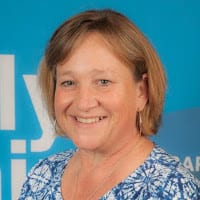
Jenny Froome is passionate about how supply chain management affects our lives on every level. Her original and now current profession is event management – the epitome of a well-honed supply chain. After many years working as COO of SAPICS – the professional body of supply chain management in South Africa she realized the importance of shining the light on the supply chains of Africa. Managing events such as the SAPICS annual conference, the People that Deliver Global Indaba, and the Africa Supply Chain Excellence Awards have truly allowed Jenny to combine her skills, knowledge, and community. Jenny’s lived all over the world and has settled in South Africa with her husband and many 4 legged friends while her sons are scattered around the world. Connect with Jenny on LinkedIn.
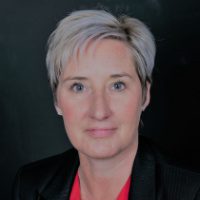
Tonya Lamb is currently the Business Development Executive for SAPICS. Tonya’s current portfolio manages the development and maintenance of strategic relationships and partnerships in the Supply Chain profession that provide crucial affiliations and collaborations that enable SAPICS to expand its scope in terms of creating a broader understanding about Supply chain management as well as developing and driving new initiatives to further develop the Supply Chain profession. Tonya’s passion lies in the building of capacity for the supply chain management profession through education, training, skills development and professionalization. Tonya’s career in supply chain management started in 1996 and her commitment to the profession has continued to grow with a determination to not only raise the profile of the profession but make it an option as a career of choice for future generations. Connect with Tonya on LinkedIn.
Hosts
Additional Links & Resources
WEBINAR- State of the Supply Chain Report – Priorities for Building Resiliency in Your Supply Network
